Live It To Know It
Summer 2023





Summer 2023




“At Mason & Morse Ranch Company, we live it to know it,” said Managing Broker Bart Miller. “Everyone on our team has deep roots in the land and the lifestyle with experiences as diverse as the landscape.”
Open Range Land
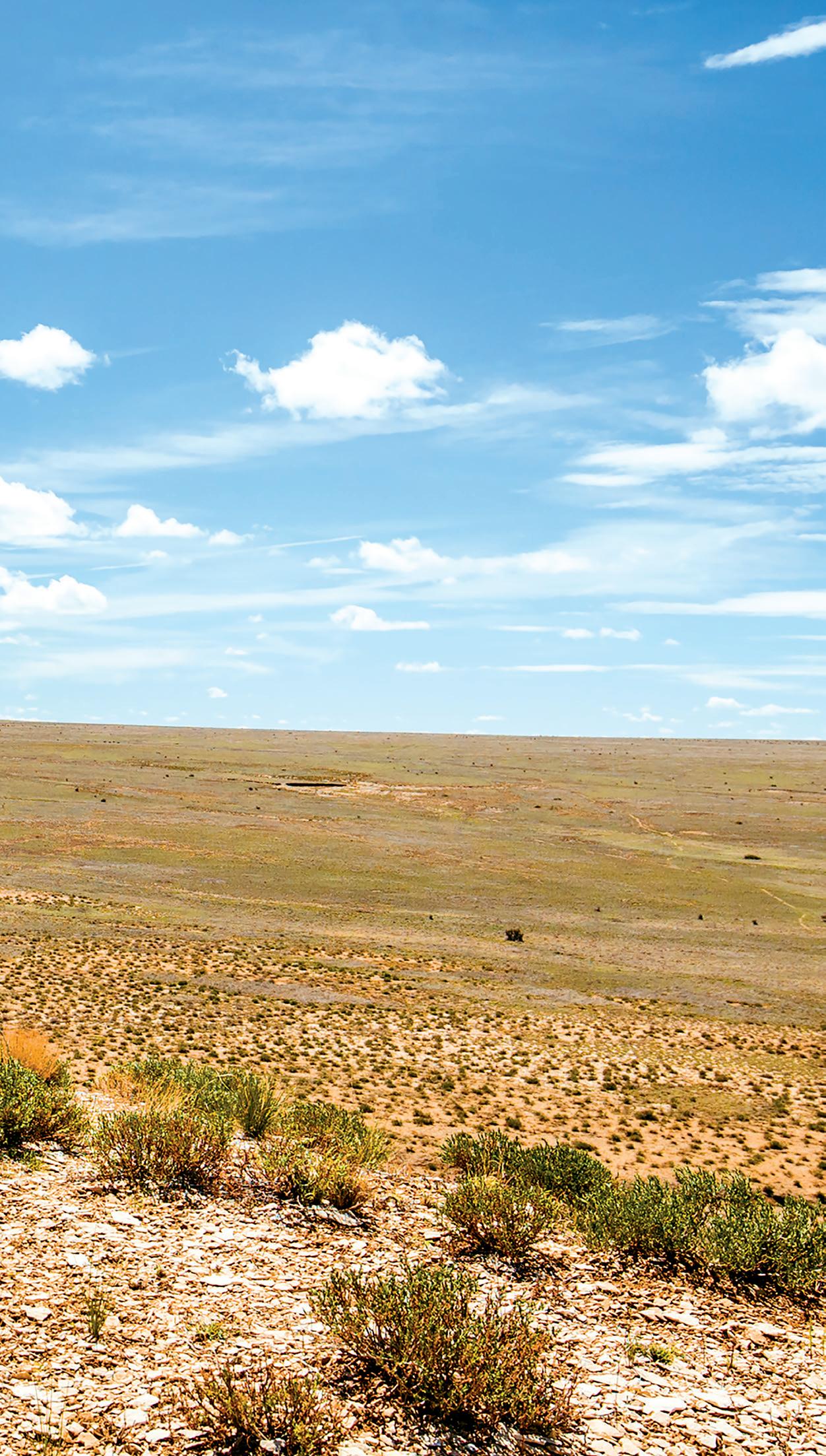
High Mountain Hunting
Luxury Estates & Equestrian
Learn More on Page 16
“At Mason & Morse Ranch Company, we live it to know it,” said Managing Broker Bart Miller. “Everyone on our team has deep roots in the land and the lifestyle with experiences as diverse as the landscape.”
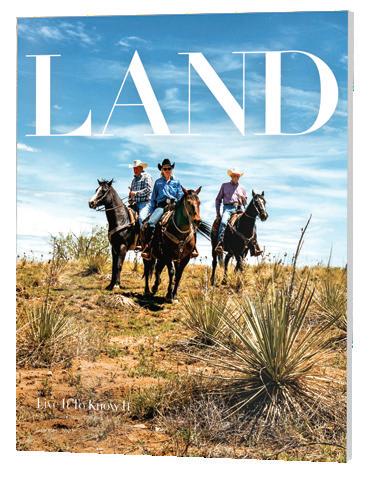
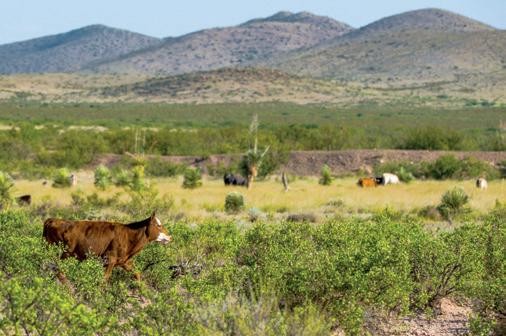
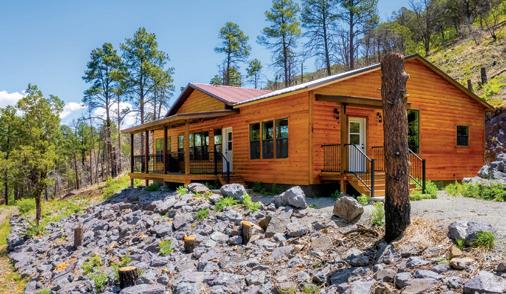
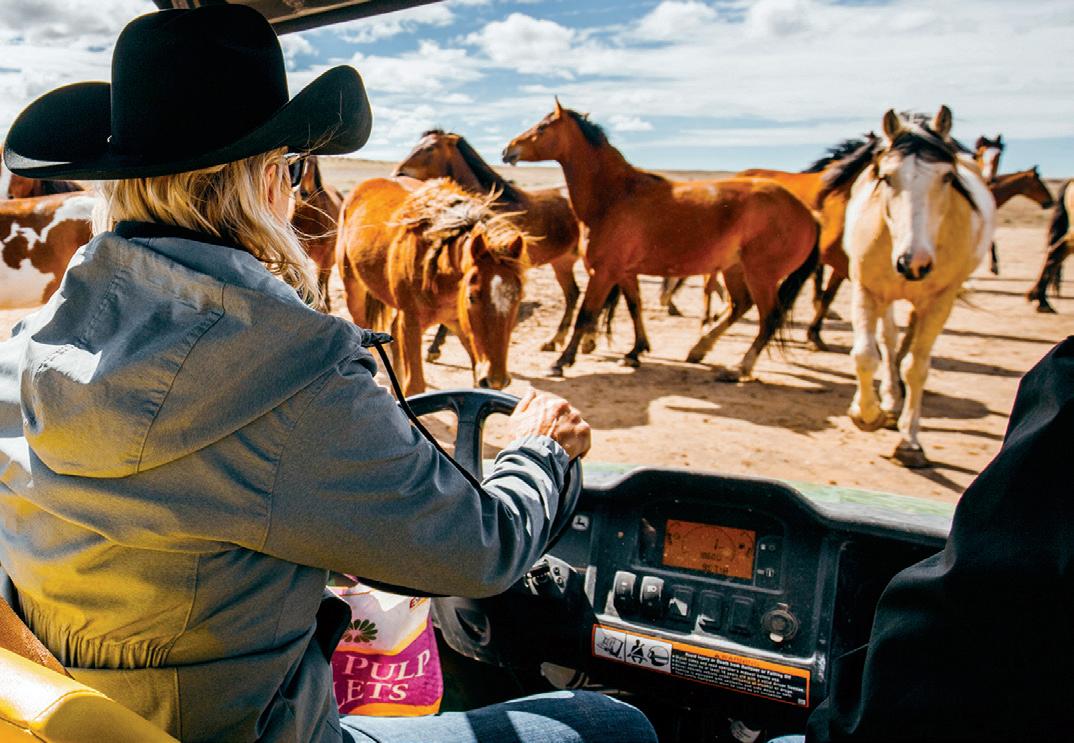
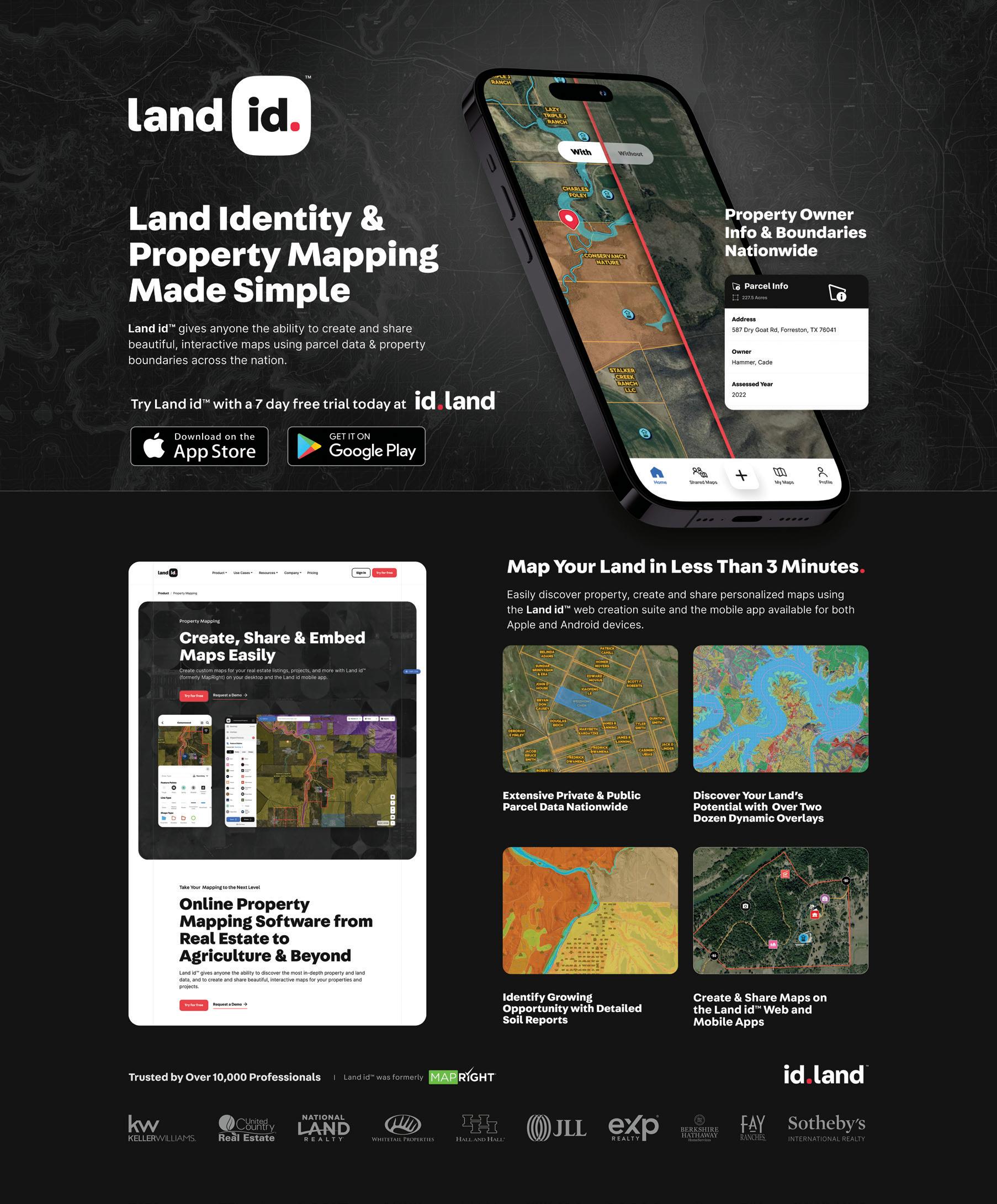
We Sell Beautiful Land and Create Custom Ranches
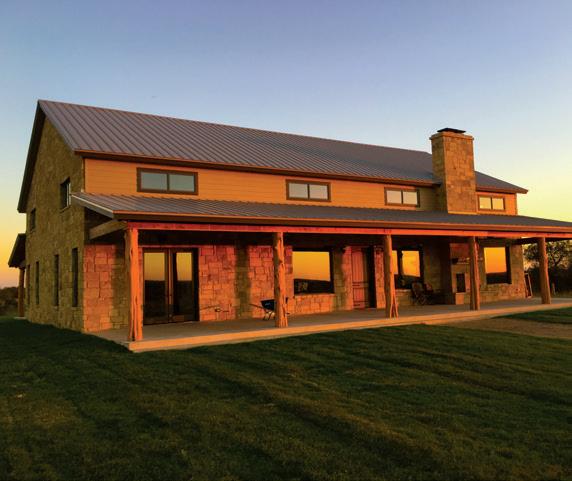
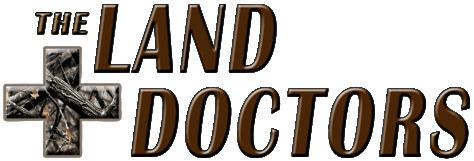
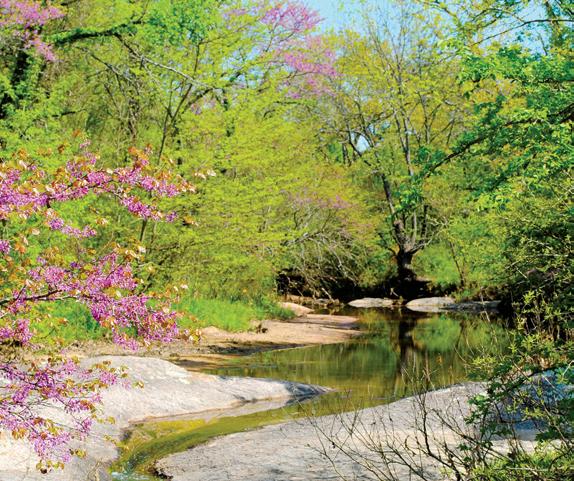
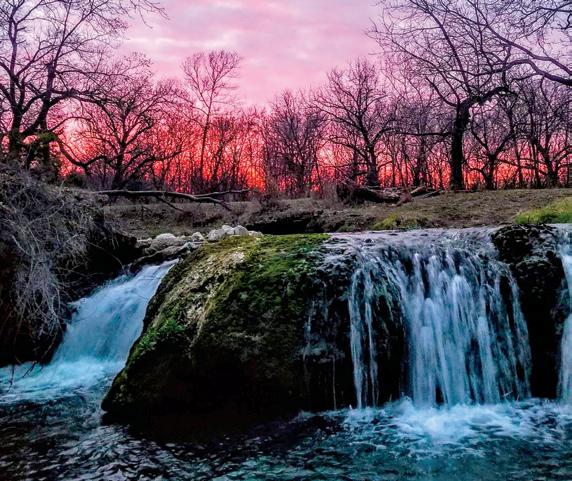
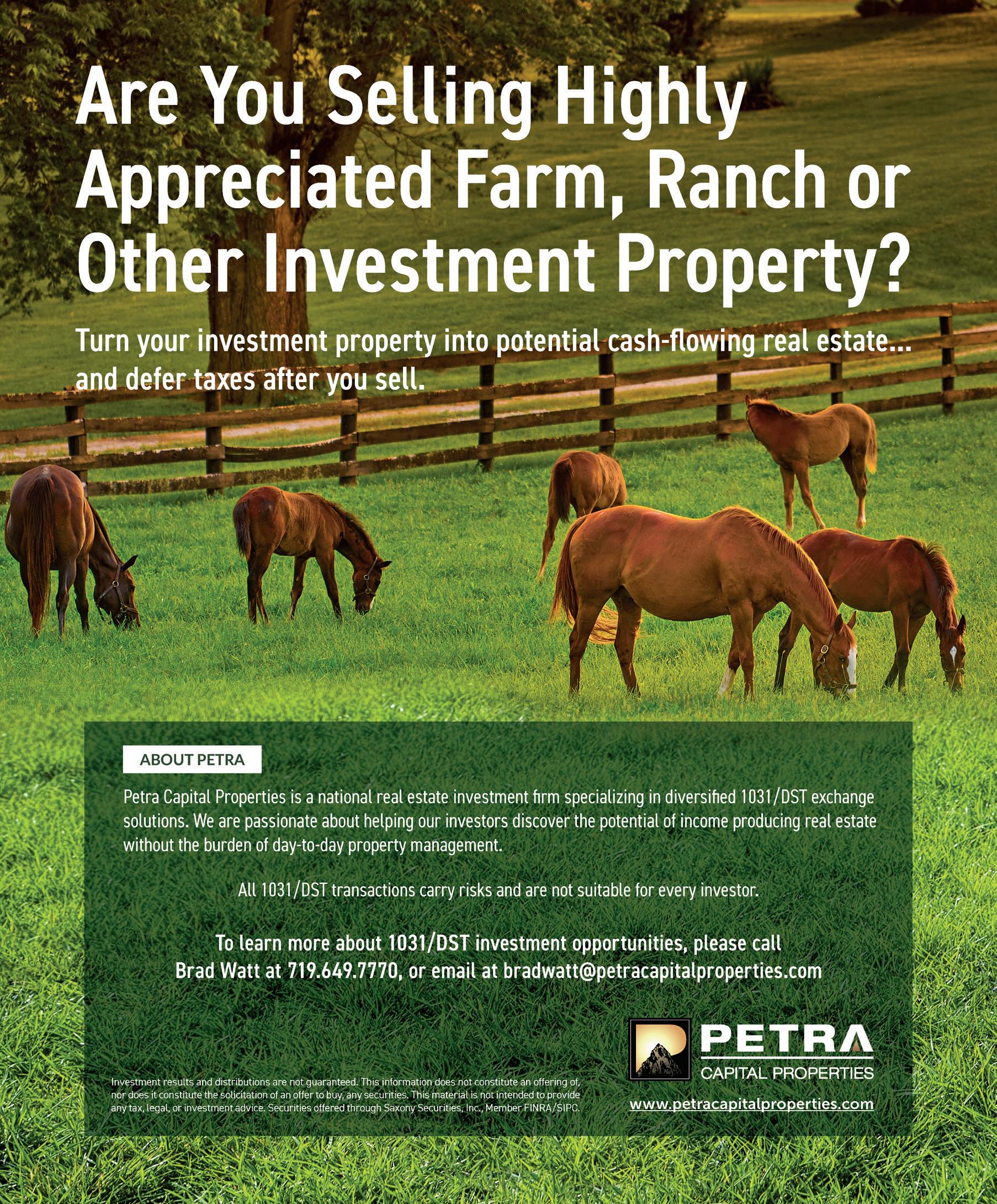
It’s hard to imagine that I’ve been in ranch real estate publishing for 32 years. My first foray, which was a literal Momand-Pop business because my wife was the other staff member, was prompted by my love of land.
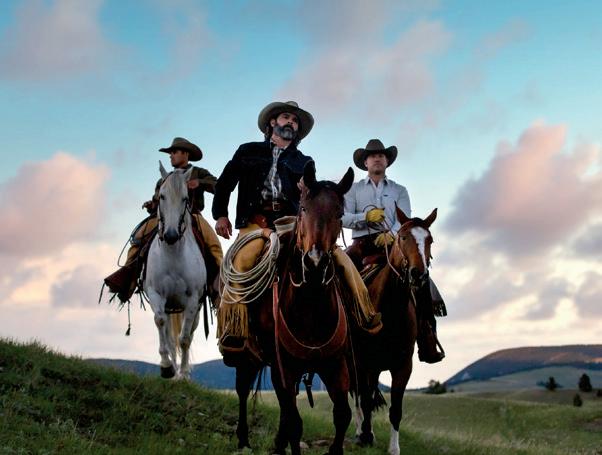
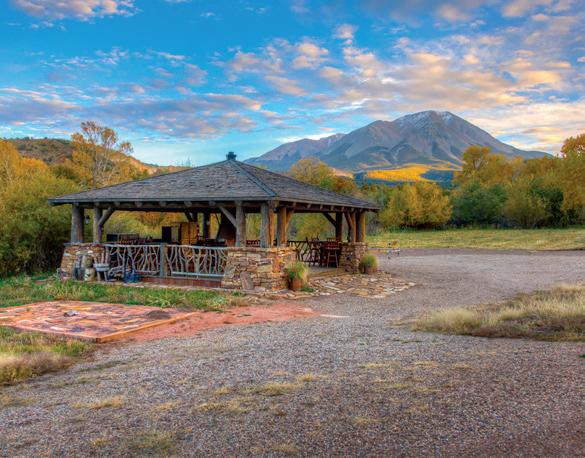
For as long as I can remember, I’ve been drawn to the outdoors and its inherent natural beauty. The sun breaking over the desert, illuminating the eastern sky and wind carved rocks with warm golds and rosy pinks. The blazing palette of red, orange and yellow bedecking the trees in northern climes as summer changes to fall and fall gives way to winter. The moon dancing on crystalline streams and stars twinkling on a black velvet sky. A massive bull elk, impressive mule deer buck or a honking flock of geese silhouetted against the sun’s last gleaming rays of the day. And so, so much more. . .
When I’m out on the land, regardless of where it is or what I’m doing, that’s where I feel closest to our Creator. For me, nature is mankind’s most inspiring cathedral. The beauty and intricacy of every component evokes a spiritual connection that can’t be replicated—even in a pew.
And neither can beauty nor connection be captured in blackand-white classified ads, which were the only way to advertise land back when we got started. It’s what led me to start the first farm and ranch real estate magazine with color photos. There’s a reason people say, “A picture is worth a thousand words.”
At the time, I had the sense that people bought land because it spoke to them. It was where they wanted to be, and caring for it was what they wanted to do. Today, I still think that’s true for some people, but not-so true for others. Over time, I’ve realized that is a very narrow view of what motivates people to purchase land.
It’s no secret that land is an incredibly flexible asset that withstands inflation and uncertainty in a way that other investments don’t. Today, people are buying land for security, carbon credits and a host of other reasons that are as varied as the buyers themselves.
Just as the reasons for buying land have expanded, so has the mission of our publications. While we will always showcase premium properties to connect buyers and sellers, we also want to bring you news (well, information may be more accurate) you can use.

To that end, I’d like to know what is on your mind. What would you like to learn more about? What issues would it be helpful for us to cover? Do you enjoy reading about people and places or would you prefer “meatier” topics? Or is there a mix of content that serves your needs?
Give it some thought. Then send your ideas and any other feedback to me at talexander@land.com or to Lorie Woodward, our writer/communications specialist, at lwoodward@land.com.
Our readers are as diverse as America, so we’re uniquely positioned to be a melting pot of ideas and experiences. We’re looking forward to cooking up some good stuff.
TOM ALEXANDER Publisher talexander@land.com
Nature is mankind’s most inspiring cathedral.

Chris Douglas’ interest in photography began at age 10, when he began by snapping photos of wildlife and family hunting trips. His love of the outdoors and wildlife continues to energize his current work. After almost two years as the Creative Director at C.C. Filson in Seattle (2018–2019), Douglas now works as an independent contractor Creative Director/Consultant and Photographer. He divides his time between work locations and Montana where he lives with his wife, two children and their horses. Find out more at ChrisDouglas.Photography
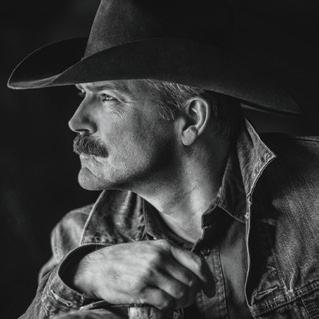
Ducks Unlimited Inc. is the world's largest nonprofit organization dedicated to conserving North America's continually disappearing waterfowl habitats. Established in 1937, Ducks Unlimited has conserved 16 million acres thanks to contributions from more than a million supporters across the continent. Guided by science and dedicated to program efficiency, DU works toward the vision of wetlands sufficient to fill the skies with waterfowl today, tomorrow and forever. Find out more at Ducks.org
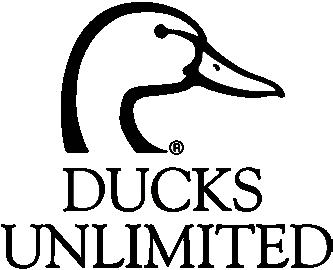
SALES
Publisher TOM ALEXANDER talexander@land.com
PRODUCTION
Writer & Communication Specialist LORIE A. WOODWARD lwoodward@land.com


Senior Account Manager & Editor JENNIFER SCHAEFER jschaefer@land.com


Creative Director & Production Manager KATIE GORDON kgordon@land.com
Designer & Copy Editor JEHAN GLAZE jglaze@land.com
LEAD THE CONVERSATION & BECOME A CONTRIBUTOR
on LAND.com + in LAND Magazines
Share your idea with lwoodward@land.com
Letters + Comments
Tom Alexander, Publisher talexander@land.com

@landdotcom @landdotcom @landdotcom Subscriptions + Information land.com/magazines or email magazines@land.com
©Copyright 2023 CoStar Group. All rights reserved. No part of this publication may be reproduced without written permission from the publisher. LAND Magazines are published by CoStar Group, 100 Congress Ave, Suite 1500, Austin, Texas 78701. Information provided to CoStar Group is deemed reliable but not guaranteed. The publisher will not be responsible for any omissions, errors, typographical mistakes or misinformation within this publication. Measurements and figures are approximate. Properties are subject to errors, omissions, prior change or prior sale. The real estate advertised in this magazine is subject to the Federal Fair Housing Act of 1968 and it’s amendments. This magazine will not knowingly accept any advertising for real estate which is in violation of the law. Dwellings advertised in this magazine are available on an equal opportunity basis. Printed in the USA.
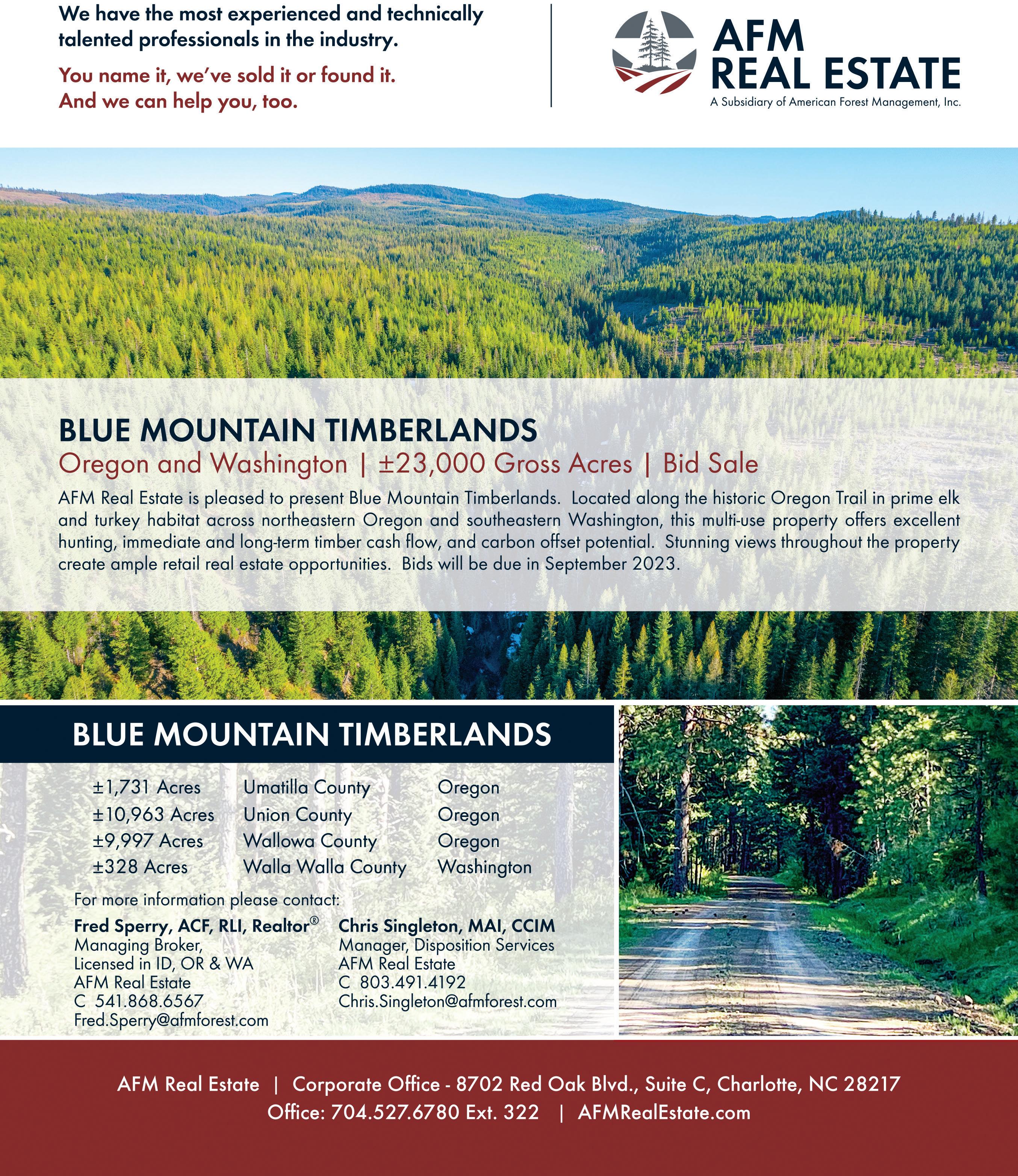
A coffee table book that examines the history of America’s birth through the eyes of six men recognized as the fundamental founders of our nation.


Why We Love It → Bound in genuine leather with 22 karat gold deeply inlaid on its “hubbed” spine, the book is a luxurious addition to any bibliophile’s collection.
EASTONPRESS.COM

A single volume that explains all the necessary skills to eat off the land including brewing beer and raising and butchering livestock.
Why We Love It → It inspires sustainable living achieved through the work of your own hands.
AMAZON.COM

A reference book that prepares outdoors enthusiasts to become knowledgeable stewards of the wild.
Why We Love It → The volume is an invitation to see the intricacy and intense beauty of the natural world.
CHRONICLEBOOKS.COM
An inside look at the often-overlooked surf culture of the South told with surprising stories and beautiful pictures.

Why We Love It → It stretches the mystique and magic of surfing beyond the waves of California, Hawaii and New Jersey.
UNCPRESS.ORG

A history book focused on 16 train robberies that occurred along the Southern Corridor between 1883 and 1922.
Why We Love It → Without dodging bullets or leaving your chair, you can travel back to a time and place where outlaws such as Black Jack Ketchum and his gang rode roughshod over the law.
TWODOTBOOKS.COM

A camping cookbook that also teaches some bushcraft ranging from lighting a fire to making a campfire spit or cooling rack from found wood.

Why We Love It → Cooking over an open fire is the perfect way to celebrate summer and the great outdoors year-round.
QUARTOKNOWS.COM
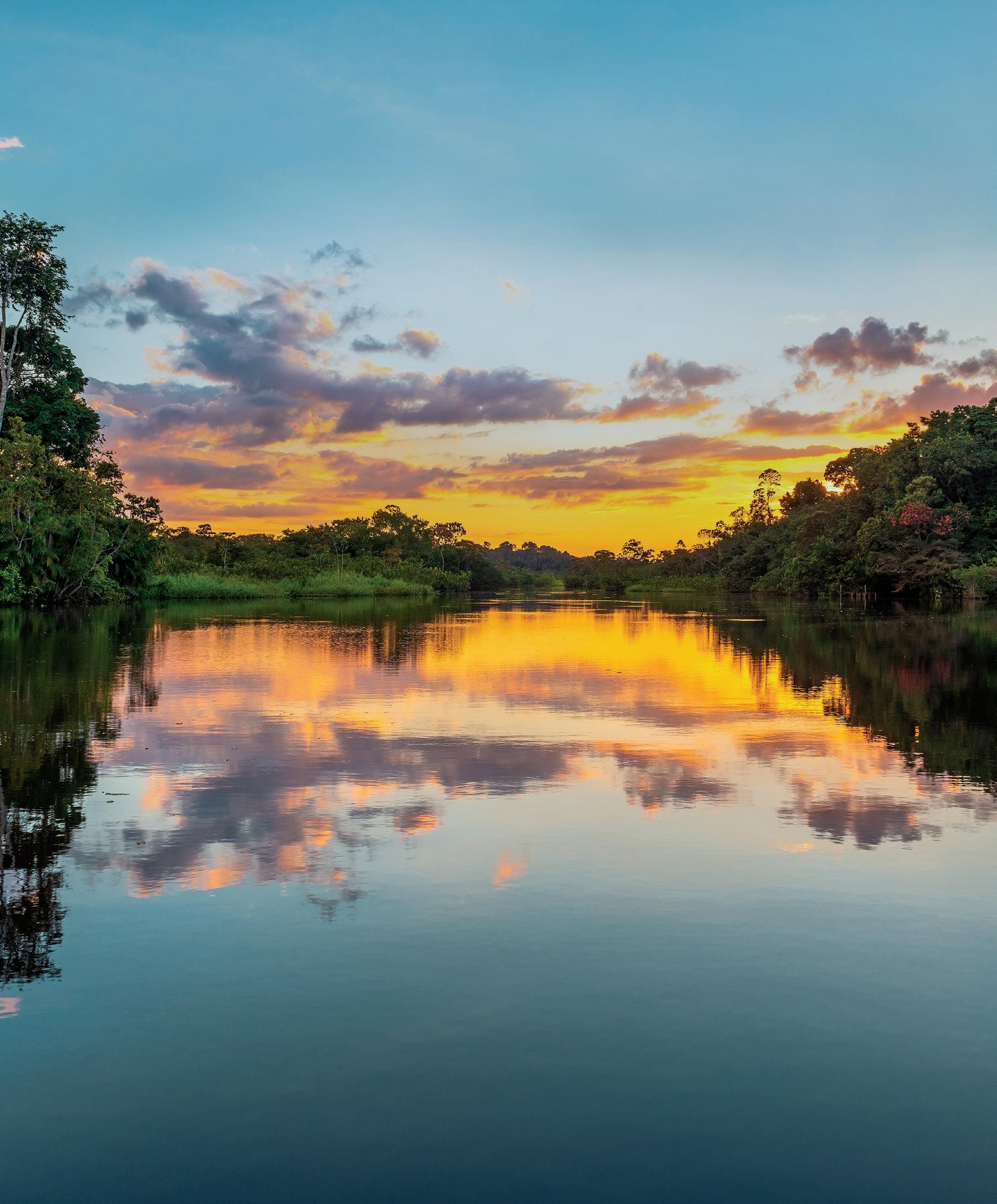

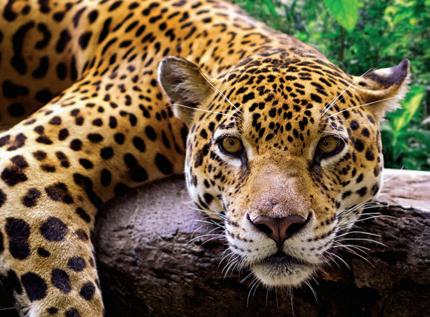

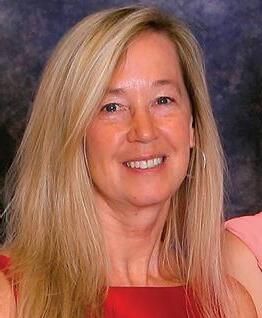
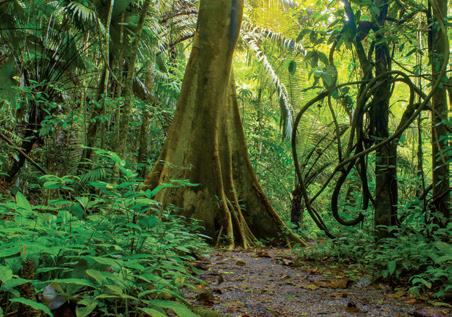
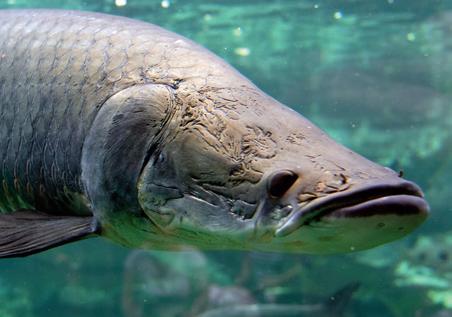

FEATURED
WILL
Discover More Insider



Luxury edition holographic playing cards with breathtaking banknote artwork.
Why We Love It → Legal Tender brilliantly amplifies the beautiful artwork that has adorned our U.S. currency for many years in a new form.
KINGSWILDPROJECT.COM
A tough, versatile, remarkably light knife that measures 7.75 inches and weighs only 1.7 ounces.

Why We Love It → This tiny workhorse can do anything from caping, gutting, skinning and deboning big game to cleaning fish and cutting line.
MONTANAKNIFECOMPANY.COM
High-performance, all-in-one training shoes.

Why We Love It → The Savage 1 is designed to handle a wide-range of training modalities, including strength, HIIT and running, so you only need one pair of shoes to get—and stay—fit.
BORNPRIMITIVE.COM


A hefty happy hour bucket built for “wild” get togethers. (Ice scoop not included.)
Why We Love It → This durable beverage bucket, which can hold a six pack, is overengineered to keep beverages cold.
YETI.COM
A waterproof bag for essentials that can be tightened around the waist or worn cross body.
Why We Love It → Park Project teamed up with Teva to donate proceeds to the Grand Canyon Conservancy to help protect the rivers we love.
PARKSPROJECT.US
An ultra-sturdy inflatable rooftop tent, ideal for compact cars, hatchbacks and trucks.

Why We Love It → With a 12-volt pump, this rooftop tent with an integrated foam mattress quickly inflates to create a comfortable twoperson shelter.
DOMETIC.COM

A ring-spun cotton, jersey muscle tank featuring a patriotic red, white and blue design touting your landowning pride.

Why We Love It → It fits like a well-loved favorite so you can comfortably show your patriotic pride on holidays—or anytime.
AMERICANFARMLANDOWNER.COM

An extra creamy, fresh, organic, sugar-free, preservative-free vegan nut milk packaged in eco-friendly glass bottles.
Why We Love It → Made from a blend that contains extra hazelnuts and dates with a hit of cocoa powder, it’s a guilt-free chocolate treat.
FRESHFRONKS.COM
FEATURED PRODUCTS THAT ARE SOURCED FROM THE LAND
Discover More Insider
Lightweight hybrid shorts featuring a four-way stretch fabric and eye-catching, hand-woven accents.

Why We Love It → The water-resistant, quickdry fabric makes the shorts great for swimming AND sports.
WOWIELIFE.COM
A limited edition signature drawing set with a step-by-step drawing tutorial by renowned American artist David Kassan.

Why We Love It → The set allows you to embrace a new hobby or elevate an existing one—and capture memories through your own personal style.
GENERALPENCIL.COM
Energy bites made from whole food ingredients like protein-packed almonds and antioxidantrich dried cherries.

Why We Love It → They are perfectly sized on-the-go energy bars that taste delicious and are good for the environment.
KATESREALFOOD.COM
A rich sheep and cow mixed-milk, Gouda-style cheese.

Why We Love It → This crave-worthy cheese is redolent with the aromas of melted butter and berries with notes of nuts, olive oil and fresh herbs.
CENTRALCOASTCREAMERY.COM
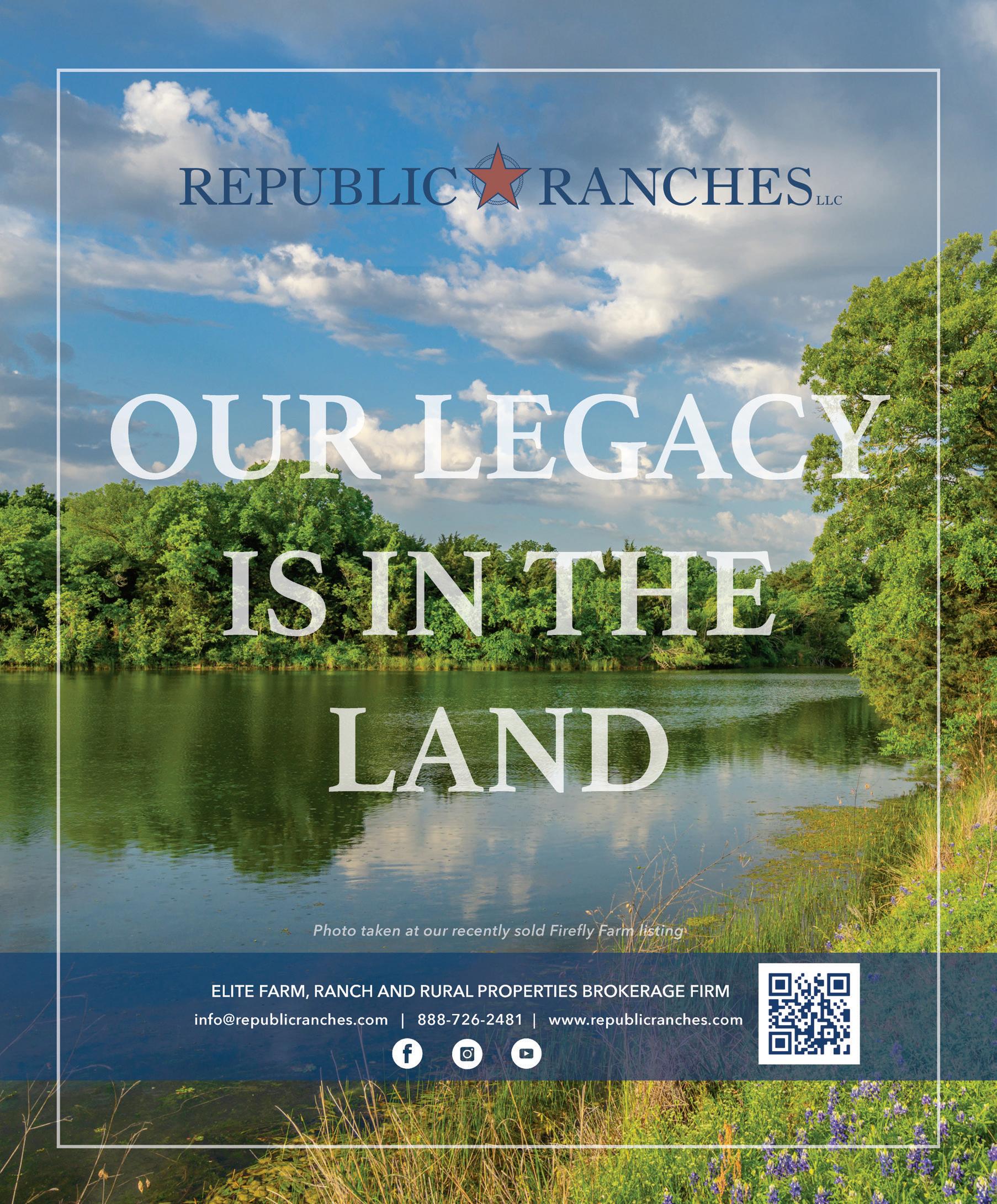
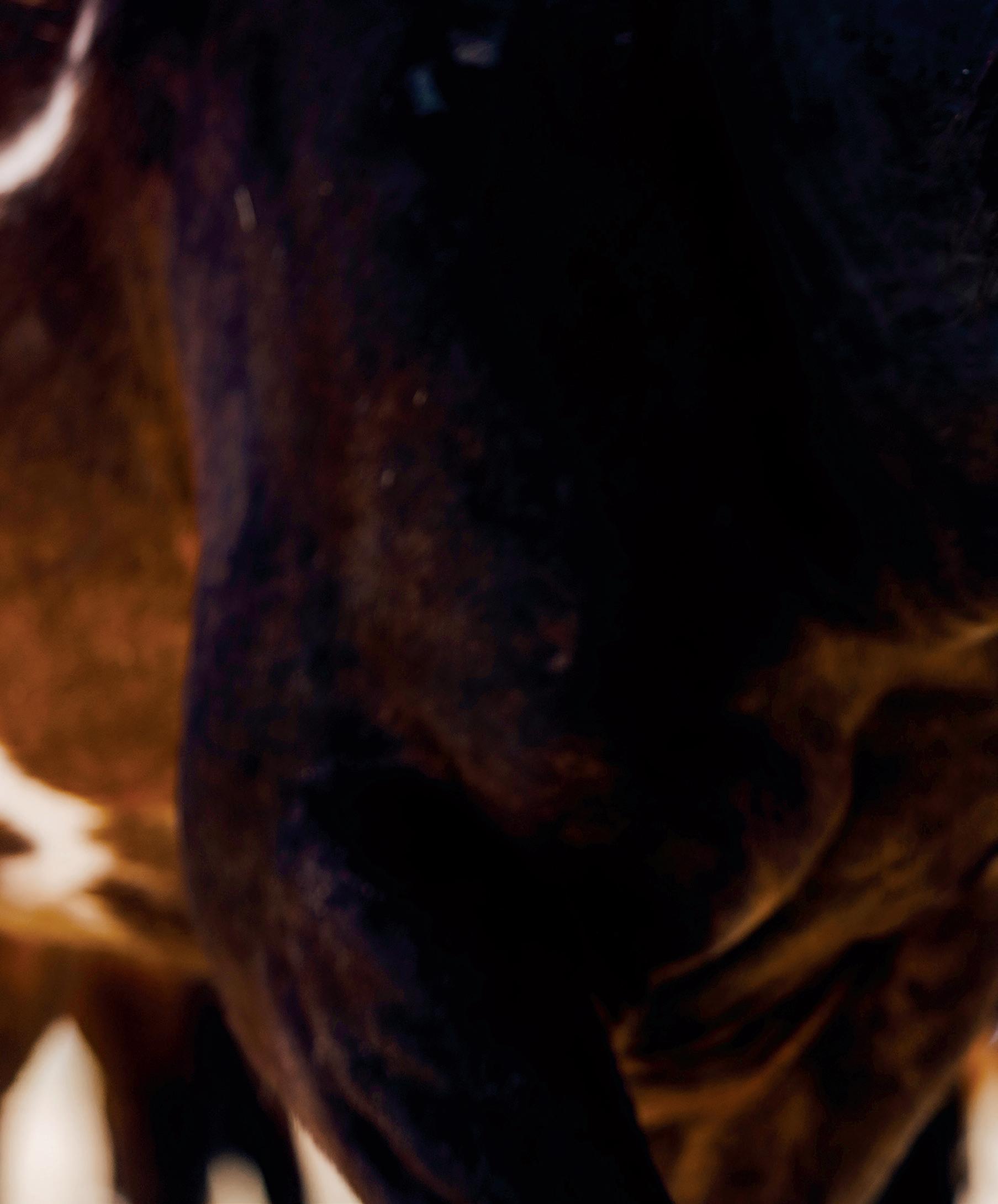

olorado’s beautifully diverse landscape puts the entirety of America’s cherished Western lifestyle within easy reach. Within the borders of the Centennial State, herds of horses still thunder across the vast plains. Elk bugle as they make their way from high mountain ridges through the shimmering aspens into lower elevations. Skis shush through the bone-dry powder. Trout break the surface of crystalline streams as they are fooled by well-tied flies and skillful anglers.
For those looking to stake their claim on a piece of Western heritage, the offerings include productive ranches that have been in families for generations as well as custom retreats that elevate recreation to new heights. The bounty of riches can be overwhelming without experienced guides.
“At Mason & Morse Ranch Company, we live it to know it,” said Managing Broker Bart Miller. “Everyone on our team has deep roots in the land and the lifestyle with experiences as diverse as the landscape.”
Since its beginnings in 1961, integrity has been the company’s foundation which is further strengthened by hands-on experience and genuine relationships with buyers and sellers. With a reputation for straight talking, square shooting and fair dealings, the firm has earned the right to represent properties across the full spectrum of Colorado’s rich lifestyle.
“Whether it’s a productive working ranch along the eastern plains, a trophy-class hunting ranch in the Rocky Mountains or an opulent equestrian property near Colorado’s finest resort communities, our team has the expertise to make deals happen,” Miller said. “The combination of independent, hard-working people and exceptional properties makes Colorado unique.”
The Vold Rodeo Company got its start in 1952 when Canadian native Harry Vold, a horse trader who was crossing bucking horses between the two countries, got stuck at the U.S.-Canada border. He was en route to Montana to deliver a load of horses to the Cremer Rodeo Company when an outbreak of foot-and-mouth disease temporarily stopped livestock transport between the two countries. He took the horses back home and offered to buck them out for free at a rodeo in his hometown of Panoka.
“If the horses didn’t work out, no one was out anything but the time and the experience,” said Kirsten Vold, who after the death of her father in 2017 co-owns the Vold Rodeo Company with her mother, Karen. “It was the start of his rodeo career.”
From that improbable start, Harry, who became known as the “Duke of the Chutes,” built a legendary rodeo company. The Vold Rodeo Company is one of only two stock contracting companies that have provided equine and bovine athletes to every National Finals Rodeo since 1959. Through the years, the family has produced
numerous bulls and broncs of the year, the industry’s top award for bucking stock.
While the company’s success is a combination of unfailing integrity, superior genetics—many of the horses trace their bloodlines back to Vold’s native Canada—and business savvy, Kirsten identifies the ranch with its wide-open spaces and the strong, short grass prairies as the foundation of it all. The Harry Vold Ranch in southeastern Colorado is just 15 miles from Pueblo and 65 miles from Colorado Springs.
“There’s something special in the grass,” said Kirsten, a Cowgirl Hall of Fame inductee who

has lived on the ranch for most of her life. “It’s droughty here, so the grass is short. Dad always said that you didn’t need a lot of it because it was so strong.”
In addition, the landscape is sprawling, which gives horses room to run and build muscle and endurance in the process. The land’s inherent productivity supports operations at a large scale.

“When I was a kid, they made a Marlboro commercial on the ranch,” Kirsten said. “They wanted a herd of 600 horses to run through the shot—and we delivered.”
Plus, the winters, for Colorado at least, are milder than those at higher elevations. When storms do blow in from the north, the land is dotted with arroyos and canyons that provide protection.
Harry purchased the ranch in 1968 at the recommendation of legendary Singing Cowboy Gene Autrey. Autrey, who early on partnered with Harry in a stock contracting company, owned the Flying A Ranch nearby.
“Gene Autrey told Dad that Colorado was the state to be in and this region was the spot to be in to raise strong livestock that needed room to roam,” said Kirsten, noting Harry founded the sole proprietorship that bore his name in 1970. “He obviously knew what he was talking about.”
In fact, Kirsten is retaining a portion of the original ranch and will continue to operate the Vold Rodeo Company from there. Her bucking horses and bulls are still in high demand; she spends about 200 days a year at rodeos across the country. Her new neighbors will have the opportunity to purchase 16,466-± acres of grassland, of which 8,160± acres are deeded and 8,306± acres are in a Colorado State Land Board Lease.
“This is where real cowboys and cowgirls live,” Miller said.
While the land produces strong grass to sustain livestock, the lifestyle forges character and independence. Working alongside her father, mother and her five siblings, Kirsten absorbed the practical knowledge and traits that allow her to succeed at the highest levels of her profession.
As a child, she remembers bouncing around in the truck with her father as they moved the horse herd.
“We always used trucks and now ATVs because you can run a saddle horse into the ground trying to keep up with a herd of horses on the move,” she said.
The youngsters’ jobs were to bail out and open the gates, so Harry could continue in hot pursuit.
“You knew you’d be standing there for a long minute—you just hoped that he remembered to
come back and pick you up,” said Kirsten, laughing.
When it comes to gates, her father taught her that bucking horses on the move react differently than cattle. Unlike cattle, which generally move at a measured pace and will stop at a closed gate, the bucking horses move at a full run and will plow through a gate they don’t expect to be closed. To keep the horses safe, Kirsten stretches a rope across the opening and attaches a bright yellow slicker that flaps in the wind. The herd turns away from the visible obstacle instead of running through it.
“There are just things in this business you learn by doing them,” said Kirsten, noting that each of her siblings are involved in their own stock contracting or rodeo producing enterprises. “We all watched Dad’s efforts and as his legacy, we all now try to walk in his footsteps.”
Respect for those who walk the walk is what brought the Vold children, who inherited the ranch after their father’s passing, to Mason & Morse Ranch Company.
“Our family wanted to go with people who are as established in the ranch real estate business as we are in the rodeo business; people hire us because they want top-notch professionals and we expect the same thing,” Kirsten said. “Scot Oliver and Robb Van Pelt, [principal owners and associate brokers with Mason & Morse Ranch Company] are well-known and well-respected for what they do.”
Both Oliver and Van Pelt are fourth generation ranchers and have more than 40 years of farming and ranching experience. They recognize that a land transaction involves much more than the bottom line. It’s an exercise in mutual respect, trust, and ongoing relationships.
Van Pelt said, “Kirsten embodies our philosophy of ‘live it to know it.’ It’s a privilege to represent this ranch and the hard-working family whose stewardship created a legacy that stretches beyond the gate.”
Oliver added, “Because our own roots are in the land, we understand that family land is much more than a financial asset. Land reflects their history and their lives. It’s a humbling privilege and responsibility to be entrusted with that.”
Of course, lives change, but the land remains.
“In a perfect world, I’d love to see someone utilize the land to raise livestock,” Kirsten said. “This is a great place for ranching for a first-time rancher or a long-time rancher who recognizes the multiple opportunities to use this land as we have to better the lives of livestock.”
The Copper Ridge Ranch is offered for sale at $5,900,000, which includes 360± acres, mountain views, wildlife haven, end-of-the-road privacy, plus direct access to over 1.4 million acres of national forest, located only three miles north of Steamboat Springs, Colorado.

When Rick Wilhelm’s grandparents purchased Copper Ridge Ranch in the early 1940s, the Steamboat Ski Area, which opened in 1963, was not even a dream. Mule deer, elk and a plethora of wildlife lived alongside the cattle that grazed on the then 1,400-acre property set against the backdrop of the Flat Tops Wilderness Area and Emerald Mountain.
“In my grandparents’ day, they made their money on cattle, so they ate elk and venison,” said Wilhelm, who represents the third generation to steward this productive Yampa Valley paradise characterized by superlative wildlife habitat.
Today, the remaining 360± acres, which are protected by a conservation easement, is just three miles from the shopping, dining and worldclass skiing that characterizes the modern Western-flavored Steamboat Springs. But, despite the convenience, the ranch retains its wild feel and still teems with elk, mule deer and grouse. Moose, black bear and mountain lion are regular visitors.
“The resident elk herd calves on the ranch in the spring, congregates in the winter to clean up livestock hay and feed, and seeks sanctuary here from the hunting pressure in the neighboring national forest,” said Craig Townsend, associate broker with the Mason & Morse Ranch Company.
While Wilhelm, who has spent more than 50 years on the property, no longer runs cattle here, he is an avid hunter. As a child, he and his siblings roamed every nook and cranny, experiencing the freedom of a ranch upbringing and learning the skills of woodcraft.
“Although the ranch is 360± acres, it hunts like a couple of thousand because of the lay of the land and the topography,” he said, noting that Copper Ridge borders the Routt National Forest for 1.5 miles. “You can literally walk out the back door of the house and go hunting.”
The Wilhelms’ house sits on the site he selected when he was 12 years old. While the spot is a family favorite, he included a 20-acre building envelope in the conservation easement to give the new owners maximum flexibility to make Copper Ridge their own. According to Townsend, the new owners could use the existing house, raze it and build another house on the site, or construct their dream home on another portion of the ranch.
Townsend said. “This opens the door for the next buyer to create a legacy on a permanently protected private, end-of-the-road property on the doorstep of one of the world’s premier destinations.”
While he knows that the potential for a oneof-a-kind ranch compound is phenomenal, Townsend, who is a fifth generation Kansas farm boy and an avid bowhunter himself, understands that private access to the abundant wildlife is perhaps the most substantial asset. In fact, he and Wilhelm, who are neighbors, have hunted the property together. When it came time to sell the ranch, Wilhelm turned to someone who shared his values and had already earned his trust and respect.
“Craig is a down-to-earth person who tells it like it is,” Wilhelm said. “He’s been around land and hunting his whole life, so he knows what features need to be looked at and highlighted to show this property in the best light.”
He continued, “I know some Realtors, who care about themselves instead of their customers, and I guarantee that Craig is all about what’s best for the client he is working for.”
Townsend, a graduate of the U.S. Naval Academy and a Navy veteran, agrees that a shared passion for hunting opened the door to their friendship, but that a common belief in cowboy ethics sealed it. Townsend relocated to Colorado 13 years ago to surround himself with people like Wilhelm.
“For me, integrity trumps everything else and I moved here to be with good people whose Western heritage includes a good core of morals, ethics and fair dealing,” Townsend said. “Sure, real estate can be a transactional business, but to
me it’s a relationship-based business that’s about sharing life experiences, building friendships and being there for other people.
“Regardless of the deal, you can walk away as trusted friends who share a sense of commitment; that trust and commitment carries forward, enabling business forever with those people—and their family and friends.”
The West was won on horseback, so the 2nd Chance Ranch, a 50± acre premier equestrian estate, is right at home. Located in Conifer, Colorado, just 60 minutes from the Denver International Airport, the park-like ranch is outfitted as a training center for Western performance horses but could be modified to accommodate other disciplines.
“From the exquisite home to the magnificent world-class equestrian facility, no detail has been left to chance,” said Ted Schaal, associate broker with the Mason & Morse Ranch Company. “In my 33 years in the business, I’ve never encountered a property that has maintained this exceptional level of quality throughout.”
Because the design of 2nd Chance Ranch is so harmonious, no one building is the focal point but part of a collective vision. The equestrian facility encompasses 33,000± square feet with a 200’ x 100’ indoor arena and all the stalls, runs and infrastructure necessary to house and care for fine-blooded horses. The facility also includes a thoughtfully designed lounge complete with

a kitchen and bar created to cosset the most discerning buyers.
The four-bedroom main residence is 7,853± square feet of rugged elegance featuring log beams, natural wood, hand-scraped plank floors and antique doors. The effect is original and appropriate to the area.
As it should in an outdoor-oriented state like Colorado, the home includes decks and patios in a beautifully landscaped setting. The sound of bubbling water provides a soundtrack for relaxation.
Schaal, who is a horseman, has made his mark in the ranch real estate industry selling specialty properties such as guest ranches as well as recreational ranches. In fact, he has sold more guest ranches than anyone in the nation and in the process has developed an eye for the exceptional.
“Like everyone else at the Ranch Company, I live it to know it,” Schaal said. “In other words, we all walk the walk that informs our talk—and our clients can rest assured that we’re doing our best for them. They have our word. It’s our bond.” °
Mason & Morse Ranch Company
877-207-9700
Ranchland.com

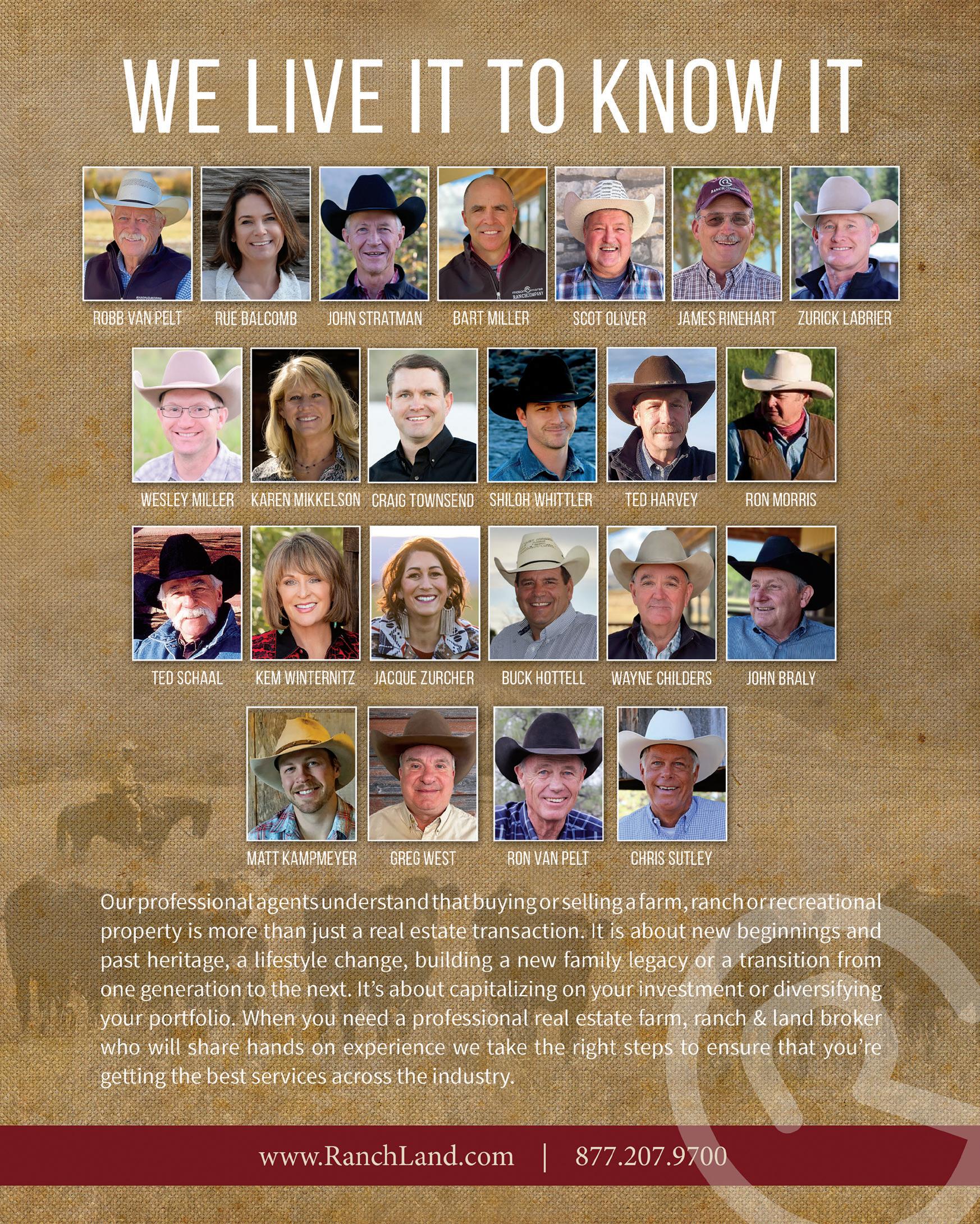

The Double V Ranch encompasses 20,000± acres of unparalleled New Mexico ranchland just 25 minutes north of Ruidoso. The Sierra Blanco Mountains provide the backdrop to this cattle ranch and hunting property that offers excellent improvements, quality hunting land, abundant grazing land and an incredible view of the surrounding wild peaks.
 20,000± Acres in Lincoln County, New Mexico
20,000± Acres in Lincoln County, New Mexico
Renowned for its hunting, the Double V Ranch is in Game Management Unit 36, administered by the New Mexico Fish and Wildlife Service. Bordered by Wilderness Areas, the ranch provides excellent access to highly coveted hunting tags. The ranch currently holds 21 unit-wide transferable bull tags for Unit 36, 15 bull tags, nine either-sex tags, and six cow tags for the Vista de Valle Ranch Unit.
The Diamond Peak Unit is operated at the owners’ discretion to ensure optimal game and forage management. The number and quality of game is excellent. Unit 36 is well known for trophy bulls, mule deer bucks and
pronghorn. Merriam’s turkey, black bear, an occasional white-tailed deer and varmints can also be harvested on the ranch.
The ranch’s borders extend for approximately 10 miles along the White Mountain Wilderness Area and U.S. Forest Service land, providing exceptional summer grazing and hunting opportunities. These vast tracts of high-quality public land are challenging to reach from outside the ranch, making the exceptional almostprivate access a rare asset. Moreover, the Double V Ranch appears to “live” almost double its size.


The entrance, framed by the majestic Church Mountain, ushers you inside and guides you past two elegantly appointed owners’ homes. The owners’ homes reflect the ranch’s exceptional quality, offering both comfort and sophistication with their impeccable finishes and well-designed floorplans.

The ranch also boasts four more beautifully designed homes nestled in various locations on the mountain. These strategically placed residences provide optimal access and privacy, allowing residents and guests to immerse themselves in the tranquility and beauty of the surroundings. Staff and hunting guests are right at home in one of the other six impeccably maintained houses on the ranch.
A world-class equine facility is just a short drive from the owners’ home. This remarkable horse operation has housed some of the world’s finest quarter horses, a testament to the unwavering passion and pride poured into the ranch’s development.


Step inside this extraordinary facility and be captivated by its thoughtfully designed features. With 19 watered indoor stalls, an auction platform surrounded by comfortable bleachers, convenient wash-down areas, and well-equipped vet and tack rooms and offices, every detail has been carefully considered.
Overhead doors and easy access to walkers and outdoor paddocks in the sprawling yard highlight the facility’s functionality. Adjoining buildings provide extra stalls and ample storage space, including a dedicated shop and equipment storage area.
The infrastructure on the ranch, including roadways, fencing, power, and water systems, spans across the vast expanse of its 20,000± acres and is nothing short of awe-inspiring. Miles of power lines have been thoughtfully laid out, reaching almost every corner of the property. This strategic siting allows for potential additions and development opportunities within the ranch.
Eighteen operational wells, connected to an intricate pipeline, ensure an ample water supply throughout the property. Plentiful water safeguards the ranch’s ability to maintain productivity in all weather and supports rotational grazing. From the miles of stunning white board fencing to the sturdy pipe pens, paddocks and barbed wire perimeter and cross fences, the ranch’s fencing is both visually appealing and highly serviceable.
The roads throughout the property are meticulously constructed and maintained, earning a perfect 10 out of 10. In addition, well-graded gravel and rock surfaces ensure convenient and timely access to the hunting grounds and ranch improvements, which allow for smoothly running cattle and horse operations. Furthermore, the ranch borders State Highway 380 and County Road 37, which are both well-maintained paved roads that provide year-round access without compromising the privacy and seclusion of the ranch’s tranquil setting.
The ranch, nestled within the Church Mountains and several other peaks, has a rich history in hunting thanks in part to its unique location. The mountains offer protection and challenging terrain, creating superlative habitat for highquality elk and other wildlife. Elk herds use the ranch yearround but are even more prevalent throughout the landscape in the fall because of the hunting pressure from the south and on public hunting areas. With high success rates and the chance to encounter the “bull of a lifetime,” the hunting experience on the Double V is unparalleled.




Steeped in history, Lincoln County has been significant in the history of the Wild West. The area is home to the Mescalero Apache Homeland and Fort Stanton, which served as bases for notable figures such as Kit Carson, Blackjack Pershing and the Buffalo Soldiers during the 19th century. The county’s rich historical legacy is further accentuated by events such as the Lincoln War in 1878, featuring notable participants such as Billy the Kid, John Chisum and James Dolan.
Visitors can explore these historical sites by traversing the Billy the Kid National Scenic Byway. Additionally, the county hosts three annual events—Fort Stanton Live, Old Lincoln Days, and the All American CowboyFest—dedicated to showcasing the history of the Old West.
When it comes to weather, Nogal, New Mexico is a dry-climate area that averages
about 13 inches of precipitation each year. Summertime temperatures hover in the 90s while winter temperatures drop to the low 20s. and can get in the low 20s during the winter months.
And for entertainment off the ranch, the Double V is 25 minutes north of the resort town of Ruidoso, New Mexico. Midtown Ruidoso, known as the heart and soul of the town, contains excellent restaurants, wineries, pubs, boutiques and local musicians.

Horse enthusiasts know the city as the site of Ruidoso Downs Race Track and the prestigious All-American Futurity. With a staggering purse of $3 million, this race is the richest race for two-year-old horses in North America.
In addition to the racetrack, the area boasts the Inn of the Mountain Gods Casino in
Mescalero, offering a diverse range of attractions. From frequent events and poker tournaments to concerts and more, the casino delivers vibrant entertainment.
The region is also home to Ski Apache, New Mexico’s premier ski resort that possesses several breathtaking mountains standing at more than 12,000 feet. With 11 lifts and smaller crowds, Ski Apache provides an ideal setting for winter sports enthusiasts.
Additionally, the resort offers alternative recreational activities, including the world’s third longest zip line and an extensive network of mountain biking trails spanning more than seven miles. Accessible through Ski Apache, the S ierra Blanca presents opportunities for hiking, climbing, mountaineering, hunting and camping.


 PRESENTED BY HAYDEN OUTDOORS REAL ESTATE
PRESENTED BY HAYDEN OUTDOORS REAL ESTATE
Old Sundance Road Ranch is 15,534 deeded acres located just a few miles west of historic Sundance, Wyoming. The ranch has historical improvements and offers excellent haying and grazing opportunities. Inyan Kara Creek runs through the property, offering excellent habitat and livestock water. This area of Wyoming is known for its beauty and recreation.
Old Sundance Road Ranch has three farmhouses and multiple outbuildings, shops, and barns, providing a turn-key opportunity to the new owner. The property is well fenced, cross-fenced and has the facilities for working cattle on site.



The ranch is excellent for hunting elk, mule deer, white-tailed deer, Merriam turkeys, and varmints. This property is gently rolling topography excellent for spot and stalk hunting for all species. The property provides fantastic waterfowl hunting early in the season on the multiple ponds around the property.
Located in Wyoming, Game Unit 2 for deer and antelope, Unit 116 for elk, and Unit 1 for turkey. See Wyoming Fish and Game regulations for details on tags.
Old Sundance Road Ranch is located about five miles from Keyhole State Park, which has an excellent public access reservoir for boating and fishing. This property is situated in an exceptional area in Wyoming and offers outstanding recreational amenities.
Previously the ranch has been utilized for cattle grazing. Mature ponderosa pines, wet valleys, deep grasses, and multiple creek bottoms create lush meadows that have historically provided hay and grazing opportunities.
All water rights appurtenant to the land will pass to the buyer. There are no mineral rights transferring with the land.
This area is known for short summers, with the occasional rain shower in the afternoon. The
hottest month is July, with an average high of 81 degrees. The growing season is from mid-May to Mid-September. Annual precipitation accumulates 19 inches of rainfall and 79 inches of snowfall. Winters are wet and cold, making them perfect for snow-filled activities.
Sundance, Wyoming, is rich in Native American Heritage. The town was established in 1875 as a trading post made for teams of horses pulling wagons. It is situated along the eastern slope of the Rocky Mountain range in the heart of the Wyoming Black Hills. It is a short distance from Devils Tower, Keyhole Recreational Park, Spearfish Canyon, Crazy Horse and Mount Rushmore.
This ranch is about 10 miles west of Sundance, Wyoming, just off the interstate. The small towns of Sundance, Hewlett, Pinehaven, and Moorcroft make this area rich in services and outstanding communities.
Gillette and Rapid City Regional Airports provide flight service to this northeast corner of Wyoming. °
CROOK COUNTY, WYOMING

Property ID: 15315875
$41,000,000
Dax Hayden , Broker
303-619-6774 | Dax@HaydenOutdoors.com
Co-listing agent: Bill Vacek, Broker 307-699-1378 | BillVacek@HaydenOutdoors.com HaydenOutdoors.com




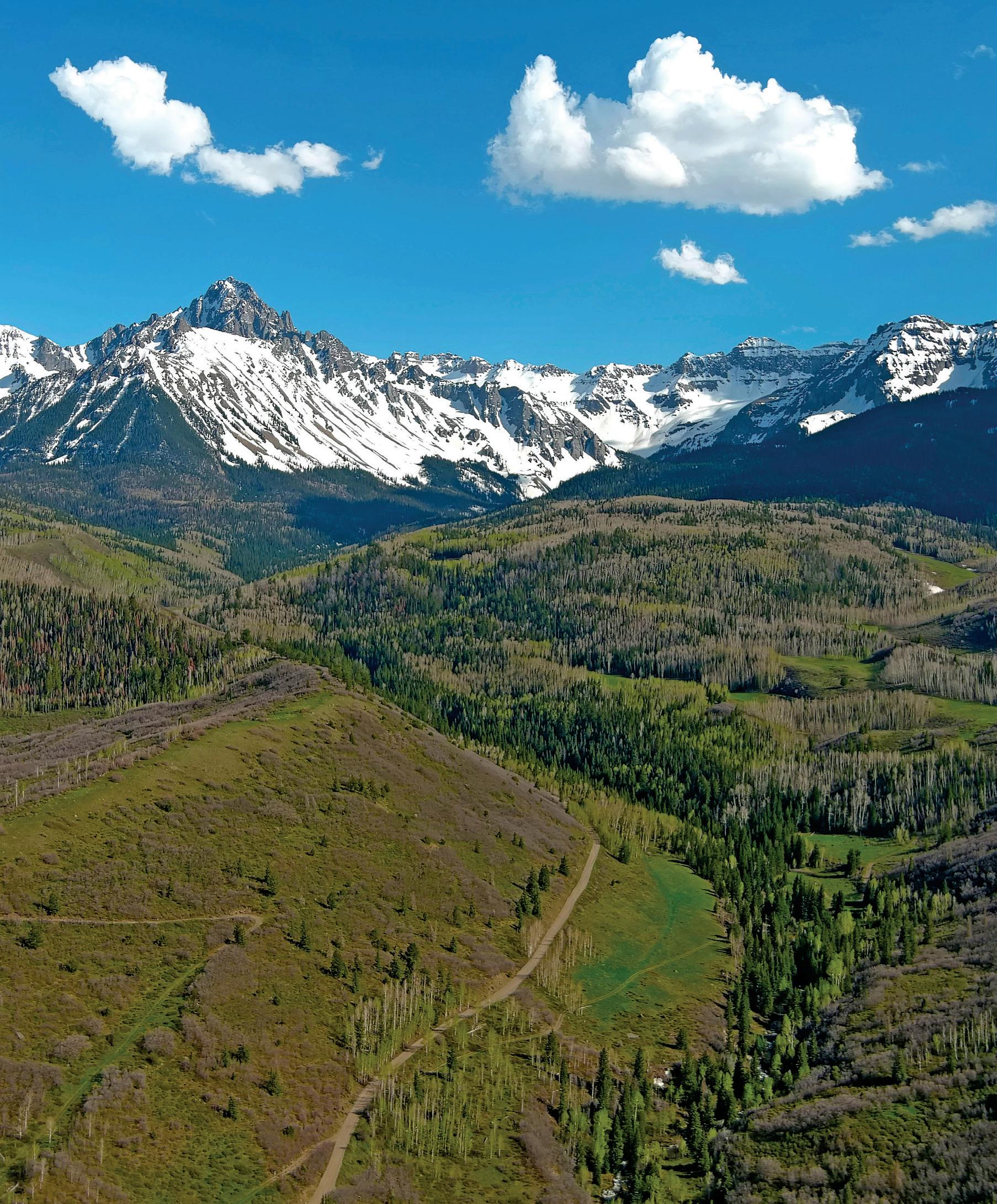
Eagle Land Brokerage was founded in 1994 with a commitment to be hyper-focused in our clients’ buying and selling needs with the utmost technical excellence and professionalism and going beyond the transactions to represent each client by providing ranch service with an owner’s perspective. Today, we continue to uphold that tradition with relative, current, cutting-edge marketing to connect buyers with premier ranches across the state. With our unrivaled knowledge, experience, and portfolio of some of the most significant land transactions in the region, our team can navigate even the most complex deals smoothly and efficiently with our intense focus and in-house tools.
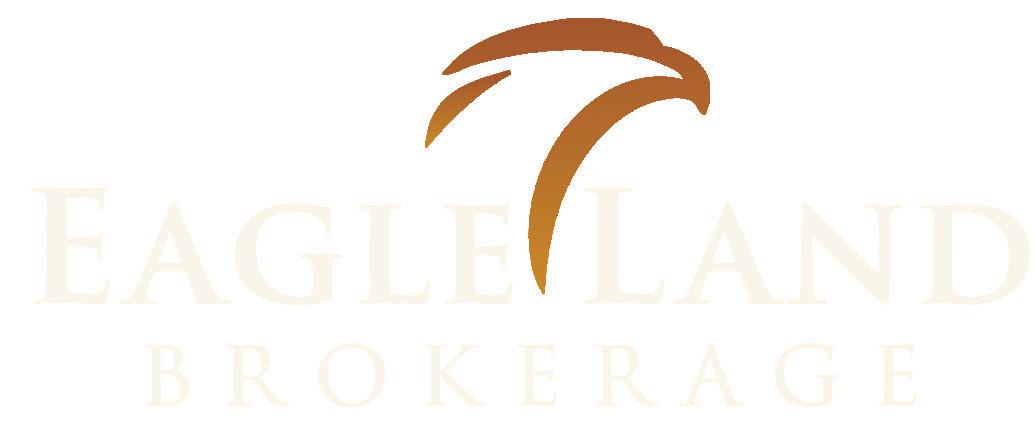
 PRESENTED BY EAGLE LAND BROKERAGE
PRESENTED BY EAGLE LAND BROKERAGE
The Government Springs area’s undeniable beauty and unreplaceable qualities have captivated Western Slope residents for generations. Following the 1879 Ute Indian uprising, Colonel Mackenzie, alongside six companies of soldiers, marched into the Uncompagre Valley to enforce an agreed-upon peace. Temporary encampments became permanent and The Cantonment of the Uncompagre, later Fort Crawford, was formed. Indelibly, the natural springs, breathtaking views, and towering pines south and west of the fort captured the affection of the garrison. A frequent watering ground for federal livestock, the springs and the surrounding area became known as Government Springs.
One hundred and forty three years later, The Government Springs Ranch still captures the imagination— ponderosa pines, quaking aspen, and



spruce trees cast long shadows over 60-70 percent of the ranch. Herds of elk, deer, turkey, bear, and mountain lion roam the understory while the snowcapped peaks of the San Juan mountains tower above the horizon. The ranch is a superb hunting property with six miles of national forest frontage, an abundance of trophy-quality game, and readily available tags.
Unlike almost any other hunting/cattle ranch, Government Springs has year-round, paved road access, borders a Greg Norman Golf Course, has full buried utilities, and is within minutes of a regional airport. Fly into Montrose, have dinner at Elk Mountain Resort (the neighbor to the north), hunt elk in the morning, and maintain a three-o’clock tee time. This is a legacy ranch in a rapidly growing community. As an investment or a getaway, the Government Springs Ranch is one of the finest Colorado has to offer. °
$15,950,000


Office@EagleLand.com EagleLand.com
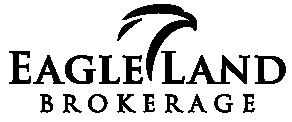

 120± Acres in Cuchara Valley, Colorado
120± Acres in Cuchara Valley, Colorado
Nestled in the Cuchara Valley of Southern Colorado, Rio de la Vida is nothing short of a recreational paradise combined with luxury lifestyle living. The Southwest-inspired main home includes the highest quality construction, design, furnishing, and a pristine three-hole golf course. The lake lodge is ideal for entertaining, with screened porches, ample room for guests, fire pits, and retractable glass doors to let in the cool mountain air. The gem of the property is the 3.43-acre private lake with five species of trout, the largest fish exceeding 30 inches. Exceptional views and approximately one mile of enhanced Cucharas River create an unparalleled setting.
La Veta, Spanish for “The Vein,” rests within the Cuchara Valley and has a small-town population of roughly 850 full-time residents. La Veta became a commercial center with the Denver and Rio Grande Railroad development, which brought more settlers and opportunities to the area. La Veta Pass was once the highest U.S. railroad pass throughout the United States and allowed trade to the San Luis Valley to flourish.
Located on the eastern slopes of the Sangre de Cristo Mountains, Cuchara, Spanish for “spoon,” is a quaint mountain town. Booming during the summer months, this area is surrounded by San Isabel National Forest, which draws many visitors and locals alike to enjoy ATV trails, hiking, and camping in the cooler mountain climates. Many gather at the local restaurants for live music, craft brews, and wine pairings. As the snowy winter months arrive, many travelers retreat to warmer weather making for a peaceful season of rest. Rio de la Vida lies in the heart of the Valley with
paved access and close proximity to local towns.

Featured in Mountain Living Magazine, the main home is a collaboration of Log and Adobe, creating a unique Southwest masterpiece. The current owners worked with the premier contractor of the Cuchara Valley to develop their plans alongside Bob Nestor and Robin Gray of Nestor and Gray Architects out of Santa Fe, New Mexico. The home was built around hand-selected logs and antique doors to create an authentic custom design. Viers Furniture Co sourced wood around the Yellowstone River to create custom pieces throughout that are true works of art. There is a threehole golf course that is groomed to mint condition; enjoy the warm summer days playing a round. Sip your finest wine on the covered patio and enjoy the spectacular views of the Spanish Peaks in this three-bedroom, fivebathroom Southwest retreat.

Overlooking the 3.43-acre Lake Dalton, the Lake Lodge is perfect for a family of outdoor enthusiasts. Live comfortably with five spacious bedrooms, four being en suites. The kitchen is crafted with entertainment in mind, including custom cabinets and live edge countertops. The lodge is furnished with custom hand-crafted Old Hickory Furniture, known for its toughness, durability, and strength. Prepare your gear in the “Anglers Retreat” located downstairs with a fly-tying station and top-of-the-line rods, waders, nets, and more. Whether you prefer fishing in the lake or the meandering Cucharas River throughout the property, you will surely catch one of the five species of trout found on this spectacular offering. Sold turnkey, find your mountain retreat at Rio de la Vida. °






Mexico is a land ripe with potential for ranching

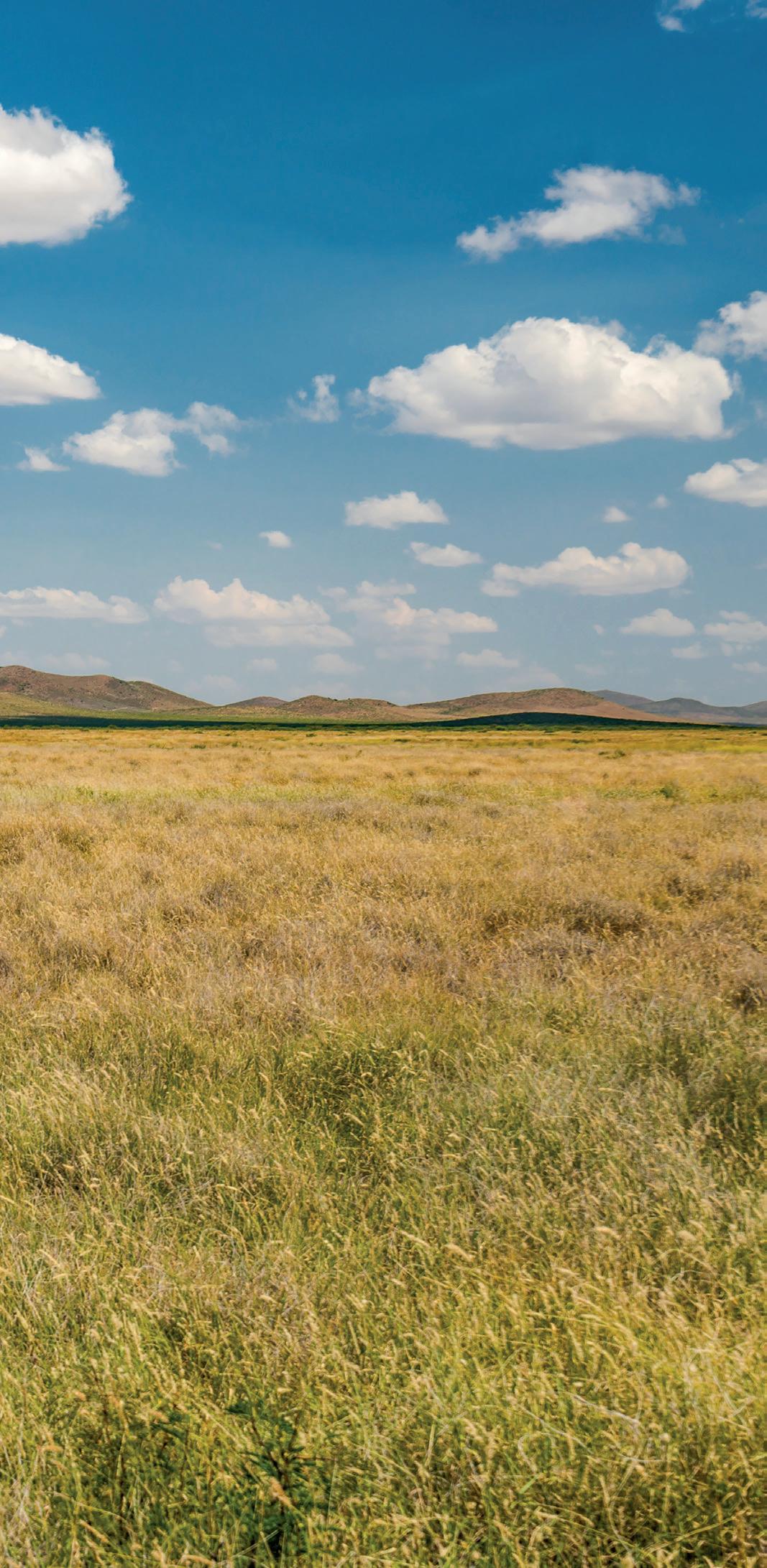
“Mexico is pro-agriculture,” said James “Jim” Sammons III, a broker associate with Briggs Freeman Sotheby’s International Realty in Dallas who hails from a multi-generation Texas ranching family and lived and ranched in Mexico from 1985–1991. “Currently, the Mexican peso is one of the strongest currencies in the world, which just demonstrates the country’s economic strength. World financial players perceive Mexico as stable and foreign investment is pouring in.”
From a ranching standpoint, Mexico’s northern states offer several advantages, Sammons said. Perhaps, the largest is ready access to both the U.S. and Mexican cattle markets.
“Ranches in Northern Mexico are generally priced in U.S. dollars because most of their income comes from selling their steers in America for dollars,” Sammons said. “With the present state of the Mexican peso, the prices for the cattle sold into the Mexican market are still the same, but ranchers get more than 12 percent more dollars for the pesos they receive.”
In addition, the growing season is long, the regulatory environment is less onerous, labor including experienced cowboys is more readily available. Plus, the overall cost of operation is generally less than in America.

While Sammons is a proponent of land ownership in Mexico, it isn’t for everyone. Through the years, he’s formulated a list of basic questions that everyone needs to ask themselves before purchasing land.
1. How comfortable am I operating in an unfamiliar culture?
2. How willing am I to adapt to new ways of doing things?
3. How will I manage the property? Will I live there full-time or be an absentee landowner?
4. How will I get to the ranch? Drive? Fly? If it’s the latter, what facilities are on the ranch to accommodate that?
5. What is the ranch’s production level? Is there any room for improvement?
6. Who are the neighbors?
7. Where is the nearest community? How far do I have to go to get necessary supplies?
8. What is the local availability of labor? Where can I get help?
“There are opportunities available for people who are willing to adapt to the local way of doing business,” said Sammons, who has been involved in Mexican land transactions for more than 30 years and is currently marketing several Mexican ranches, ranging from 15,000 acres to more than 80,000 acres. “Mexico is different. Before you pick up and move, it's imperative to ascertain your own willingness to change because the country, be it Mexico or anywhere else, isn’t going to change for you.”
Sammons and his partners ranched in the state of Coahuila. From his perspective, Coahuila along with the other northern states of Chihuahua and Sonora are the most suitable for American operations. Not only do they provide abundant natural resources and the most direct access to the U.S., but the people are also more familiar and more aligned with American “norms.”
“Overall, the Mexican culture is more formal and more respectful than that of modern America,” Sammons said. “The Mexicans are warm, wonderful people who take great pride in their country, value family and friends and really enjoy life.”
He, speaking of his own family’s experience, continued, “Instead of being Americans living in Mexico, we wanted to live like our Mexican neighbors. We learned to slow down and savor what is important, so it was a rich and rewarding experience.”
Northern Mexican ranches have similar grasses and climate to their counterparts across the border, so management strategies for grazing and brush control are similar, Sammons said. In Mexico, a lot of the cattle work is still done on horseback.
On Mexican ranches, raising livestock is the primary focus. Although many ranches have prime wildlife habitat, generally hunting is a recreational pursuit reserved for family and friends.

“People are just beginning to develop hunting with an eye toward business, so there are great opportunities to purchase Mexican ranches that are easy to access from the U.S. and have existing family and friends hunting operations,” Sammons said. “These cattle ranches can easily be expanded to include hunting as a business that caters to paying clients, be they individuals or corporations that want to entertain their business associates.”
Just as in America, cattle are shipped from the ranches to the markets via potbellied trucks. Because of health regulations, Mexican steers can go north, but the females, unless they are spayed, are confined to the Mexican market.
“To make the transition as seamless as possible, I recommend that people have a Mexican partner or at least a Mexican mentor who is well-versed in the land and cattle business,” Sammons said. “Having locals who know the local people and local ways cut down on the learning curve and prevent unnecessary mistakes.”
When possible, he suggests hiring people from the local community to work in your business.
“It creates a network and goodwill,” Sammons said. “Mexicans are very ingenious and resourceful; they figure out how to use what they have to make things work in a way that former generations of Americans did.”
Another must-have is a set of CPAs: a Mexican and an American one, if you’re operating out of the United States.
“It’s crucial that you have a team of people who make sure that you stay in compliance, especially if you are dealing in the export market,” Sammons said.
For people who don’t speak Spanish well or at all, be prepared to learn by immersion. Sammons, who started life on the border near Van Horn and spent his first year in school delivering his lessons in both English and Spanish, thought his mastery of the language was greater than it turned out to be.
“For two years, I carried around a SpanishEnglish dictionary and a Spanish farm dictionary, so I could communicate effectively,” Sammons said. “I spoke Tex-Mex, which I quickly learned is different than true Spanish.”
On the ranch and in local communities, security is a matter of common sense. In the states where he works regularly, Sammons said that it is more peaceful than it has been in years. Violence against people outside the blackmarket industries has decreased significantly.
“It’s no secret that there are parts of Mexico, just like in any other country, where it’s not smart to go,” Sammons said. “The rest of it is a matter of common sense. Pay attention to where you are and who you are with. People who go to bars after dark and drink too much are asking for trouble.”
Ranches in Mexico are getting smaller, but fragmentation is a relative concept.
“While Mexican ranches are smaller than they once were, they are not being sub-divided as quickly or as small as their counterpart properties in America,” Sammons said. “Large acreages are still widely available.”
When it comes to acreage Americans and other non-residents are subject to the same limits as Mexicans.
“Many Americans, especially those whose families may have dealt with Mexico prior to the 1990s, still hold outdated ideas about Mexican land ownership,” Sammons said. “The former limitations on where and how much land nonMexicans can own are no longer a consideration because those post-revolutionary laws were repealed and replaced 30 years ago.”
In Mexico, very few of the land transactions involve financing. Most are cash deals, so things such as title insurance are not required. The buyers and sellers generally hire local appraisers and surveyors. Whether the buyers or sellers cover the cost of the services is subject to negotiation.
“Many of the ranches have surveys in place, but technology has gotten much more sophisticated since most were conducted,” Sammons said. “It can be beneficial to have a current survey.”

Landowners can own the mineral rights in Mexico, but the taxes make it prohibitively expensive. According to Sammons, production is very limited, so the tax burden generally outweighs the potential upside.
Brokers do not have to be licensed in Mexico. Unlike America, the brokers do not write the contract. Instead, the contract and all other phases of the transaction are handled by a “notario publico,” an attorney who specializes in land deals.
“All notarios are attorneys, but not all attorneys are notarios,” Sammons said. “The notarios handle all the research and the paperwork to get the deal ready to close. They also figure out the taxes, which are payable on closing. It’s a very simple, but efficient process.”
Once the transaction is completed, the deed is filed with the Registro Público de la Propiedad, the Public Registry of Property.
If the time comes to sell, there are no restrictions or extra fees for non-Mexican landowners. The only special consideration is ensuring your CPA has a good grasp of international taxes, so everything is covered, Sammons said.
In the final analysis, land in Mexico is worth seriously considering, especially for those interested in production agriculture, Sammons said. To that point, Sammons recalled a piece of advice he received while operating in Mexico. It became a personal litmus test when considering an opportunity.
He was running some ideas past his mentor, a successful Mexican cattleman who was at least 30 years older than Sammons. At the end of his brainstorming, Sammons remarked, “But I’m not going to just jump off into something.”
To which, the older gentlemen replied, “But maybe you should.”
And when it comes to buying land in Mexico, Sammons suggests maybe you should, too. °
There are opportunities available for people who are willing to adapt
 81,966± Acres in Janos, Chihuahua, Mexico
PRESENTED BY BRIGGS FREEMAN SOTHEBY’S INTERNATIONAL REALTY
81,966± Acres in Janos, Chihuahua, Mexico
PRESENTED BY BRIGGS FREEMAN SOTHEBY’S INTERNATIONAL REALTY
It is not often one has the opportunity to purchase a ranch with all the quality characteristics of good weather, large size, quality production, and excellent location. Accessed immediately upon driving across the border from the United States makes it one of a kind. This high Chihuahua ranch lies in a very productive region with gentle valleys and rolling hills and represents some of the most premier grazing country available on the market for the serious cattle rancher.
The ranch is located in the Municipality of Janos, Chihuahua, Mexico about 167 miles west of El Paso, Texas, 247 miles southeast of Tucson, Arizona, and 97 miles southwest of Deming, New Mexico. While actually two contiguous ranches, Nogales and El Palmar, they are marketed and sold as one ranch, only a few miles south of the Mexican/American border in the boot heel of southwest New Mexico. The ranches are accessed primarily via Mexican Highway 2 from the south and New Mexico Highway 81 from the north.
Combined, El Palmar and Nogales are spread over approximately 81,966 total acres (33,171 hectares) located in some of the best cattle production areas in north-central Mexico. Approximately 3,688 acres (comprised of two separate areas) is irrigated farmland. The elevation ranges primarily between 4,500–5,400 feet.
Most of the precipitation falls during the monsoon season, which is July through September. Annual precipitation is about 12 inches rain with an additional 5 inches of snow. El Palmar ranch has a combination of wells (serviced by pumpjack, windmill and submersible pumps) and stock tanks.
Weather, location, terrain, a wide variety of grasses and vegetation all combine to support an operation for cow/calf, stocker or combination. The
stocking rate is about 40 acres per AU. Most of the cattle crossed through the border into the United States originate in Chihuahua, and cattle from the Berrendo area cross into New Mexico at Columbus or Santa Teresa.

The terrain is a rolling landscape, with mostly grassland, similar to the far West Texas area of the Davis Mountains. This gives the northern regions of the state about a 7:1 proportion of grasslands to agricultural lands. Premier side oats, and gramma grasses, considered to be drought tolerant, provide excellent grazing. Tabosa grass is also very prolific on these ranches.
Winters are cool and sunny with a January average high of 45°F and occasional snowfalls. Summers are warm with June being the warmest month with an average high of 72°F. The climate in the state of Chihuahua, Mexico, is semi-arid to arid. The rainfall pattern is intermediate in the border belt with the peak months of precipitation being July through September. The rest of the months are considered dry periods in the state of Chihuahua. The growing season typically begins in July with the monsoon rains and lasts until the first freeze, normally in October or November. If there is fall and winter moisture a variety of late winter and spring plants are grown including filaree and other high protein plants. Minerals: The minerals are owned by the country of Mexico.
The Mexican Constitution regulates the ownership of the land and establishes that “. . .in a zone of 100 kilometers along the border or 50 kilometers along the coast, a foreigner cannot acquire the direct ownership of the land.” These areas are known as the “Restricted or Prohibited Zones”. However, the latest Mexican Foreign Investment Law, which became law in 1993, makes allowances. Non-residential property can be purchased through a Mexican corporation which can be, under certain conditions, 100 percent foreign-owned, with a provision in its by-laws that the foreigners accept to be subject to Mexican laws and agree not to invoke the laws of their own country.
The Casas Grandes/Janos region of northern Chihuahua has long been recognized as a place of great cultural diversity. Over the years, the region has been occupied by the inhabitants of Paquimé, Tarahumaras, Spaniards, Sumas, Apaches, Americans, Chinese, and of course, Mexicans. Álvar Núñez Cabeza de Vaca was the first Spaniard to visit the area. Two additional groups, Mennonites and Mormons, came south into Mexico to avoid persecution for their religious and cultural practices. Their methods of farming are very advanced, using the latest technology and boosting the agricultural economy in the region.
Janos is a municipality located in the extreme northwest part of Chihuahua, on the border with the Mexican state of Sonora and the U.S. states of Arizona & New Mexico. As of 2010, the municipality had a total population of 10,953. Founded around 1580 by Franciscan missionaries, the municipal seat is the town of Janos. Casas Grandes, located about 37 miles south of Janos, is the most important archaeological zone in Chihuahua. The great Puebloan community of Paquimé was the center of the Casas Grandes culture for over 300 years, reaching the peak of its power in the 13th century. It is believed that the population of the city reached 10,000, with most inhabitants living in five- and sixstory “apartment” buildings. Featuring small T-shaped doors, a ceremonial area, temple structures, a ball court, ceremonial pyramids and a cross-shaped mound with perfect astronomical orientation, the Paquimé ruins spark wonder and admiration. Between AD 300 and 1300 along the wide, fertile valley on the San Miguel River the Casas Grandes (Big Houses) culture developed into an advanced civilization. The Casas Grandes civilization is part of a major prehistoric archaeological culture known as Mogollon which is related to the Ancestral Pueblo culture. Paquimé was the center of the Casas Grandes civilization. Extensive archaeological evidence shows commerce, agriculture, and hunting at Paquimé and Cuarenta Casas (Forty Houses)
Chihuahua
Chihuahua continues to have one of the fastest-growing economies in Mexico. Because of its proximity to the United States, just south of New Mexico and part of Texas, Chihuahua is strategically important to Mexico. Accounting for 12.6 percent of the land in Mexico, it is the largest state, with an area of 95,543 square miles, slightly larger than the United Kingdom. CO-LISTED with Bryan Pickens and Charles Davidson of Republic Ranches. °
Each Office is Independently Owned and Operated.

50,000± Acres in Northern Coahuila , Mexico
PRESENTED BY BRIGGS FREEMAN SOTHEBY’S INTERNATIONAL REALTY

For more than 50 years, the same family has owned and operated this 50,000± acre, rare jewel of a ranch located in northern Coahuila near the Texas border. This premier cattle and horse producer is also a top-tier hunting ranch. This is an unsurpassed opportunity for a buyer who wants a productive working ranch as well as a place to “get away.”


From the United States, the ranch can be accessed through either Del Rio or Eagle Pass, Texas. To make coming and going easy, there is a well-maintained, fenced and registered airfield. Unlike most of the remote ranches in this region, this property has electricity at the

headquarters and in other parts of the ranch. The ranch infrastructure includes seven sets of working pens, seven water wells and more than 30 stock tanks scattered throughout the property.
In past years, the ranch ran more than 1,500 mother cows. However, the owners reduced the breeding herd to provide stocking flexibility. Presently, there are approximately 600 mother cows under an artificial insemination program and about 100 horses with excellent bloodlines. To increase production and keep the stocking rate flexible, the ranch runs around 500 head of stocker heifers per year.
An excellent white-tailed deer population regularly produces 160± inch bucks. Wild
turkey, quail (blue and bobwhite), Russian boar, javelina and predators including bobcat, mountain lion and black bear call the ranch home. Waterfowl and dove (Whitewing, Mourning and Eurasian Collared) are regulars on the property. Family and friends have enjoyed the hunting resource for nearly 20 years. In addition, several stock tanks stocked with bass provide fun-filled angling.
Hiking, horseback riding, arrowhead hunting and pictograph viewing are favorite extra activities. The swimming pool, internet, DIRECTV® and office are perfect ways to relax throughout the day and in the evening.
Owner/management would consider continuing their participation with a qualified buyer. °


The Land Star Awards recognizes the top brokers and agents in rural real estate. Submissions are benchmarked against local, closed transactions to identify a premiere list of exceptional winners in categories such as total transactions, sales volume and acreage.
The farm-to-table, or to waterfowlers, the marshto-mouth movement has captured people’s taste buds nationwide. Interest in consuming locally sourced meats, fruits and vegetables has blossomed in urban and rural areas across the country, as evidenced by the growth of local farmers markets and restaurants specializing in dishes prepared with local ingredients.
Food is better for you and the environment when you know where that food comes from. If you’re a hunter, this concept is nothing new. Hunters have been harvesting locally sourced, organic meat since prehistoric times. And today, new hunters are taking up the sport with the primary goal of harvesting healthy meat.
Waterfowlers source their duck and goose meat from wetlands that support waterfowl up and down the migratory bird continental flyways. Instead of supermarkets, this protein comes from prairie potholes on the continent’s Great Plains and lush wetlands in the expansive Boreal Forest.

It comes from marshes and flooded agricultural fields along established migratory
pathways. It comes from wintering grounds in California’s Central Valley and the Gulf Coast. It is brought to the table by camo-clad people participating in a centuries-old tradition.
Ducks Unlimited plays a critical role in the marsh-to-mouth movement. Land protection is a vital tool by which Ducks Unlimited conserves waterfowl habitat throughout North America. Landowners can help Ducks Unlimited achieve its vision of wetlands sufficient to fill the skies (and maybe your dinner table) with waterfowl today, tomorrow and forever.
Ducks Unlimited works with willing landowners to permanently conserve land using a conservation easement. Granting a conservation easement permanently protects land and enables you to keep your property in private ownership without requiring it to be open to the public.
A conservation easement attaches to the property deed. It runs with the land, protecting conservation values that make your land significant by limiting or extinguishing certain property rights such as development that have the potential to impact those features negatively. (Landowners should work with their
tax advisor to determine any financial benefits they can utilize.)
Ducks Unlimited’s conservation easement approach does not convey ownership or management rights to Ducks Unlimited as a utility easement would. Instead, Ducks Unlimited is entrusted to protect the conservation values through regular monitoring visits.
In addition, Ducks Unlimited maintains a Revolving Land Program. Through this program, we identify properties already on the market that maintain much of their habitat value but are at risk for conversion to cropland or other types of development.
Under this program, we purchase land from willing sellers at market value, restore the degraded habitat features and place a conservation easement on the property. Once restored and protected, Ducks Unlimited sells the property to a conservation buyer. Potential buyers include ranchers, conservation-minded private individuals and state or federal natural resource management agencies. Ducks Unlimited also acquires land to restore and/or enhance wetlands and other significant habitat and convey it to a conservation partner as the permanent landowner. °

Ducks Unlimited Inc. is the world’s largest nonprofit organization dedicated to conserving North America’s continually disappearing waterfowl habitats. Established in 1937, Ducks Unlimited has conserved 16 million acres thanks to contributions from more than a million supporters across the continent. Guided by science and dedicated to program efficiency, DU works toward the vision of wetlands sufficient to fill the skies with waterfowl today, tomorrow and forever. For more information, visit ducks.org

BRINE INGREDIENTS
1 quart apple cider (juice is OK, too)
1/4 cup of kosher salt or 3 tablespoons of canning salt
2 bay leaves, crushed
1 clove of garlic, crushed
1/2 teaspoon peppercorns, cracked or
1 tablespoon ground black pepper
1 to 1.5 lb. of duck or goose breasts, skinless Container
Glass is best; plastic (Tupperware) is OK, too.
1. Mix all ingredients, making sure the salt dissolves.
2. Soak duck or goose for at least 2 hours, but 12 hours is best.
3. After brining, rinse duck or goose and pat dry with paper towels.

4. Place in 210°–215°F smoker (I prefer pecan or alder wood, but hickory or oak work fine as well, they’re just a little stronger.)
5. Smoke for 3-3.5 hours. Allow to cool a bit and put into the refrigerator.
EAT
Eat it cold.
Slice thin for charcuterie with a game sauce like Bronco Bob’s Raspberry Chipotle Sauce. Slice thin for sandwiches with cheese, mustard and mayo. Lasts a week or so.
THIS RECIPE WAS TAUGHT TO DOUG BY TOM FULGHAM
INGREDIENTS
A limit of ducks
Worcestershire sauce
Honey
Tony Chachere’s Original Creole Seasoning Sliced jalapeno pepper: medium or hot
2 packs of thick-sliced bacon
Cream cheese
SET-UP
1. Slice duck breasts into 1/4- to 1/2-inch-thick slices and place in a large plastic bowl

2. Lightly cover the duck pieces with Worcestershire sauce.
3. Sprinkle some creole seasoning on the duck pieces.
4. Put them in the refrigerator for 1-3 hours.
1. Remove duck pieces from refrigerator, cover them in the bowl with honey, and stir with a spoon.
2. Take bacon out of pack and cut the slices in half, take jalapeno peppers out of jar for easy access, and take cream cheese out of package.
3. First take a half slice of bacon and place on cutting board, then put one of the pieces of duck on one end of the bacon, take a small spoonful of cream cheese and one jalapeno pepper and place it on the end with the duck.

4. Take the end of the bacon the ingredients are on and roll the bacon around it. Use toothpicks to hold the ingredients in place.
1. Place on grill over low heat.
2. Keep a glass of water handy in case the bacon drippings cause the grill to flame up.
3. Turn as needed until bacon is fully cooked.
4. Take off the grill and enjoy.
Enjoy two favorite waterfowl recipes shared by Ducks Unlimited’s 45 th President and current Chairman of the Board Doug Schoenrock, and his wife Linda.
 STORY BY LORIE A. WOODWARD PHOTOS BY HEIRLOOM SPRINGS
STORY BY LORIE A. WOODWARD PHOTOS BY HEIRLOOM SPRINGS

Iam passionate about my family, Pilates and fresh, organic, nutritionally dense food," said Rachael, who is a classical Pilates instructor, entrepreneur, mother of two and first-time landowner. "When COVID shut the world down, I had the chance to sit still for the first time in about 20 years. As I envisioned the future, it became clear that my three paths could align."
The alignment—in the form of a sustainable organic farm that offered wellness retreats with an emphasis on Pilates, farm-to-table food and big doses of nature—would require big changes. At the time, Rachael, a native Texan, and her family were marking year 13 of living in Dallas, which according to her was "not my favorite place to live but good for our careers."
Her husband Russell worked in finance. She owned and managed Pilates Methodology, her third studio to build, open and operate. The couple, who met in Austin where Rachael had moved as soon as she graduated from Boerne High School, had returned to Dallas after Russell earned his MBA from the University of Virginia.
"I left nail marks in the asphalt when we moved from Austin to Charlottesville in 2006," Rachael said. "I never expected to fall in love with Virginia, but I did, so there were nail marks on the return trip, too."
As COVID persisted, Rachael threw herself into converting her urban lawn into an edible landscape. The undertaking was a natural extension of what she calls her Food Revolution. On New Year's Day 2017, Rachael resolved to "go to the grocery store as little as possible." Her goal was growing what she could and sourcing the rest from local urban farms and nearby ranches.

The three divergent paths in Rachael Lieck Bryce’s life journey aligned on Heirloom Springs, 67acres nestled in the central Virginia foothills of the Blue Ridge Mountains near Sweet Briar.
By eating fresh and locally sourced, she "accidentally went on an elimination diet." As the amount of processed food that she consumed decreased, her energy, focus and overall sense of physical well-being soared.
"My career involves performing at high physical and mental levels, so it just makes sense to feed my 'operating system' at the highest level," said Rachael, who is also a sought-after international presenter and teacher of Pilates instructors. "It became my life goal to learn how to cook the most delicious, nutrient-dense foods using the old, time-tested methods of preparation."
Even as the early stages of COVID temporarily silenced a bit of the unrelenting chaos that is life in a metropolitan center such as Dallas, it was a far cry from Rachael's childhood in the Texas Hill Country. She and her siblings were reared on a 200-acre ranch in the vicinity of Boerne when Boerne was still a small town. As the Bryces' son reached adolescence, she began to sense that he would benefit from the lifestyle she had enjoyed as a youngster.
"We had horses, chickens and cows," Rachael said. "We had 200 acres to explore where we could be wild and just be kids."
As she dug in the soil and contemplated the best road forward for her family, the pull of Virginia became stronger and more persistent. In late summer 2020, she announced to Russell that they should move back to Virginia, and he agreed. (Their 24-year-old daughter lives in Austin.)
"We've been married 17 years, so he knows I have two speeds—go and stop," Rachael said. "When he said yes, I got busy."
First, she created the "Impossible List," enumerating all the must-have features for their new home. Rachael wanted: plentiful water, both pastureland and forest land, a circa house that was not a fixer-upper, outbuildings, an existing retreat space—all ideally located 30 minutes from Charlottesville, but absolutely no more than an hour and 15 minutes away.
When the real estate agent saw this list, she suggested that Rachael prioritize.
"I told her that everything was a priority," said Rachael, laughing.
Next, Rachael took the list and began "googling like crazy" using the features as her search criteria. By Labor Day 2020, the family had four Virginia properties to consider including Heirloom Springs. When the Bryces set foot on Heirloom Springs, it was love at first sight.
The adults could barely take it all in because their son was zooming from place to place, exclaiming, "Look at this! You've got to see this!"
The property checked all the boxes, plus one. The circa 1905 farmhouse had been updated in a manner that honored its history. The 100-year-old barn had been outfitted as a retreat space. Creeks and springs flowed
from the forested uplands through rolling pasturelands. The drive from the farm's front door to the Charlottesville city limits was exactly one hour and 15 minutes. And the county school system had programs ideally suited to their son's learning style.

"It was absolutely perfect, except for one thing," Rachael said. "It was out of our price range."
Her real estate agent suggested Rachael write a letter to the current owners making her case. Rachael seized the opportunity and told her family's story, encompassing everything from her Food Revolution to the life they hoped to give their son. The letter was in the mail before the family arrived at the Texas border.
“Some things, even the wildly improbable ones, are just meant to be,” Rachael said. “We experienced three miracles that allowed us to make Heirloom Springs our home.”
First, the Bryces received several above-asking offers for their Dallas house within 36 hours of listing. Second, one of the instructors at Pilates Methodology offered to buy the business just 24 hours after Rachael let her staff know that she was relocating. Third, the farm’s current owners not only responded to Rachael’s letter but asked her to submit her best offer, which they then accepted.

1 Be specific with what you want and know the reasons why. In addition to Rachael’s “impossible list” of property requirements, she was adamant about the neighbors. She did not want to abut a commercial corn or chicken farm because the chemicals that many of those operations use, which are prone to drift, were not compatible with her plans for an organic farm.
2. Understand what responsibility you will have to the land. Operating a farm or ranch is not a passive undertaking that can be left untended for long periods of time, especially if it involves crops or livestock. Rachael encourages first-time landowners to be realistic about the amount of time and effort they are willing to put into their land and to be clear about their operating philosophy when it comes to management decisions such as chemical inputs.
3. Find a good mentor. Land stewardship is a multi-faceted undertaking. While the lessons are enjoyable, Rachael suggests finding a mentor (or several) to help shorten the learning curve and provide feedback and guidance along the way.
4. Make sure the infrastructure you need is available. High speed internet is ubiquitous in cities and suburbs, but not in small towns or in rural areas. If anyone in the family requires a high-speed connection for work or school, ensure that the service is available or determine the work-around before signing the contract. The Bryces had overlooked this crucial detail until Russell tried to connect for work only to find the service was not adequate. In miracle four, their farmhouse just happened to be on a sight line with a tower on a nearby mountain, so they were able to secure the necessary service.
“My husband was very tired,” said Rachael, laughing. “I was too, but I had a vision of what Heirloom Springs could be so I couldn’t sit still.”
The entire enterprise rested on the foundation of a thriving, sustainable, organic farm. Rachael used the winter to install the gardens that would be used to produce heirloom-variety vegetables and herbs in the summer and fall. She planned the stone fruit orchard that would be planted in the spring.
“The farm was a beautiful, blank canvas for an edible landscape,” Rachael said.
She oversaw the construction of a duck condo, a chicken mansion, a goat playground and acquired the residents for them. She also found a beekeeping mentor with a decade of experience and arranged to obtain two hives during the appropriate season. Guinea fowls, known for their voracious appetites for insects and watch-dog alertness, also became part of the menagerie.
Although they keep poultry and dairy goats, all the family’s protein, other than eggs and milk, is acquired from other local farmers.
“Our son loves all of our animals and has an uncanny ability to connect with them—and animals of all kinds,” Rachael said. “He’d never forgive me if we ate meat from animals we raised.”
As winter changed to spring, she planted and began tending the land and animals. Other than being reared in rural Texas, Rachael had no direct experience farming or managing land. Curiosity and passion aflame, she attended workshops on beekeeping, greenhouse gardening, mushroom growing, and began searching for an intensive course on becoming an herbalist.
“I worked and watched it thrive and flourish,” Rachael said.
Rachael also cultivated relationships. One of her most treasured is with her closest neighbor lovingly nicknamed “Stan the Mountain Man,” who lives a mile away. He has a pet raccoon.
“He is a treasure trove of knowledge,” Rachael said. “When he comes over, I get my notebook.”
From him, she’s not only learned how to best coax a bounty from Amherst County’s soil, but how to identify the best firewood from standing deadwood in the forest and how to forage for native plants such as the spicebush. Rachael has incorporated its berries into a custard and is now perfecting a recipe for an olive oil tea cake featuring the tiny fruits.
“Expressing myself through delicious, nutrientdense food that nourishes the body and souls of people I care about is deeply satisfying,” Rachael said. “Cooking is almost a meditation and feeding people is my love language.”
After the farm was up and running, Rachael turned her attention to establishing Heirloom Springs as a business. She began offering Heirloom Springs Signature Retreats in the fall of 2022 with the goal of offering four to six each year. Because the farm doesn’t have a lodge, Rachael forged a partnership with nearby Sweet Briar College, allowing her guests to stay at the school’s Elston Inn.
While each retreat is unique, they are all built on common elements. Pilates indoors and in a gazebo in the forest, yoga taught by a guest instructor, time in the gardens learning, working and harvesting, farm-to-table food, hiking, and a meditation walk in through the property’s labyrinth. At night, participants sit around the fire pit wrapped in blankets as the flames turn to embers and enjoy quiet stargazing.
In Spring 2023, Rachael added Pilates Pedagogy at Heirloom Springs, a Signature Retreat designed for aspiring Pilates teachers. She is also developing a workshop that will help participants discover their intention and another on active listening that involves spending quiet time in the forest soaking up the sounds of nature.
“I want our retreats to facilitate what Joseph Pilates called a ‘return to life,’” Rachael said.
Rachael’s own return to life on Heirloom Springs is inextricably linked to her reconnection to nature that has occurred there.
“I’m utterly committed to what nature provides,” Rachael said. “We moved into the forest, so that
means I have to respect the animals that live there and their role in the life cycle of this land.”
The family has lost feathered friends to predators.
“We’ve suffered some hard losses, but I need the predators around,” Rachael said. “I need them to eat the moles, voles and to keep the rabbit population in check. I need birds to eat insects and earthworms to enrich the soil. Everything plays a part in the circle that is life and death.”
She continued, “As a steward, you have to humble yourself, let go and let nature take over.”
In a storyline that could’ve been taken from a fairy tale, a mother rabbit nested under the cabbage patch near the carrot patch. The doe and her kits ate more than their share of the gardens’ bounty.
“I just had to sacrifice it,” Rachael said. “As the saying goes up here, ‘You have to plant enough for yourself and someone else.’”
She is keenly aware of her family’s footprint on the land. Outside of her gardens, Rachael tries to only plants species native to the area. She doesn’t use pesticides for many reasons, including their potential to contaminate water. The creek on their property flows into the James River, which eventually empties into Chesapeake Bay.
“The choices that I make on our land ripple far beyond our property,” she said.
Rachael isn’t the only one who has found herself more grounded. Russell, who still works in finance and calls himself a “gentleman farmer,” finds his center by hiking in the forest. With access to animals, quiet and elbow room, their son is thriving.
“The first months here were just incredible,” Rachael said. “Our son spent hours in the creek and roaming outside. I watched the stress and noise in his life just fade away.”
While the first harvests at Heirloom Springs have yielded an abundance of herbs, vegetables, fruits and other edibles, the land has provided a host of other benefits that Rachael treasures.
“The land’s true gifts are peace, joy and purpose,” she said. °
 STORY BY LORIE A. WOODWARD
STORY BY LORIE A. WOODWARD
In the late 1800s, South Dakota’s Black Hills lured fortune seekers with the promise of gold. Today, modern pioneers who explore their recesses are discovering something more valuable—an exceptional quality of life.

fter COVID, quality of life is America’s new gold standard,” said Faith Lewis, broker/owner of Lewis Realty-Keller Williams Black Hills based in Custer, South Dakota. “As a result, the Black Hills are no longer America’s most well-kept secret.”
According to the 2021 National Movers Study, the Black Hills were the No. 2 destination in the nation for relocation. In addition to the region’s natural beauty and Western lifestyle, a robust economy, state government’s common-sense approach to regulation and no state income tax, make South Dakota an appealing place to stake a claim.
With Lewis’ help, Steve and Yolanda Davis, globetrotting Navy veterans and software entrepreneurs who lived in California for 40 years, put down new roots in Custer in March 2021. In recent years, the couple, who met in 1974 when Yolanda was Steve’s boss at his first duty station in Guam, had been unhappy with the changes they were experiencing in California. They had begun considering relocating as early as 2017, but the pandemic’s arrival prompted them to quit considering it and act.
As the regulatory net tightened in California, the Davises left the Golden State and made a beeline to the Black Hills, a long-time favorite destination. Steve had been to all 50 states, but Yolanda missed the trip to Alaska, so she’s just seen 49. Together they have explored 18 foreign countries and three U.S. territories.
“When we sold our company in 2001, we traveled as a hobby and raced cars,” Steve said. “As we crisscrossed the country racing, we always made it a point to stop and stay in the Black Hills.”
He recalled that on those trips through South Dakota, they parked their trailer containing their highvalue equipment and didn’t worry about its security. They also were taken by the resident’s openness, inclusivity and friendliness.
The Black Hills, located in western South Dakota and eastern Wyoming, covers an area 110 miles long and 70 miles wide.
From the vast plains, the namesake hills appear black-green, prompting members of the Lakota tribe to dub them Pahá Sápa, which translates into Black Hills. Black Elk Peak, which rises to 7,242 feet is the highest point between the Rocky Mountains and the Swiss Alps.
While fewer than 240,000 people live here, the small region is home to large living.
With more than 1.2 million acres of public land to enjoy, it’s an outdoor enthusiast’s paradise. U.S. Forest Service roads and abandoned mining railroad tracks provide almost unlimited opportunities for ATV riding, mountain biking, hiking or horseback riding. For water lovers, the lakes in the hills provide unlimited chances to kayak, canoe, boat and cast a line.
Abundant wildlife means abundant hunting. Granite and limestone outcrops invite rock climbers to test their mettle. In the winter, the northern hills offer skiing, snowshoeing, cross-country skiing, snowmobiling and ice fishing in the frozen lakes.
Visitors from all over the globe come to experience the region’s most famous landmarks: the Mount Rushmore National Memorial and the Crazy Horse Memorial. While they are here, they can’t help but explore the grandeur of Custer State Park, Jewel Cave and Wind Cave national parks, which showcase the world’s third longest and seventh longest caves respectively, and the Devil’s Tower National Monument.
Although Black Hills winters can’t be characterized as mild, the region often enjoys temperature inversions that make the hills sunnier and warmer than in the lower elevations, earning the nickname, the “Banana Belt.” The region has less snow than Denver, warmer winters than Minneapolis and more sunny days than Miami.
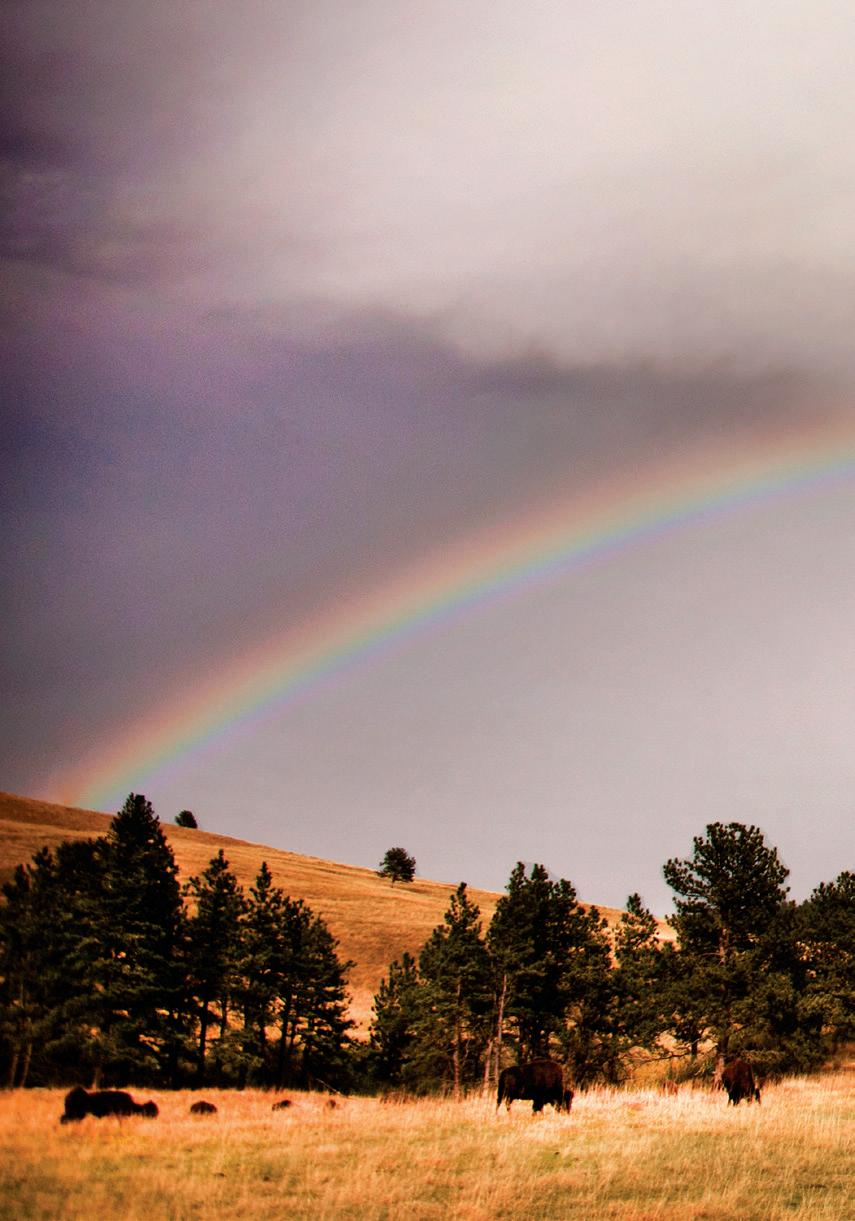
Communities through the region including Deadwood, Custer, Sturgis (home of the famous motorcycle rally) and Hot Springs have maintained their unique character and Western-style charm. Rapid City, with a population of 75,000, is the Black Hills’ version of a metropolis. Strangers smile, speak and leave as friends.
“You can be the third person standing in line at the coffee shop behind two strangers and by the time you get your coffee, you’ll be best friends with the two people standing in front of you,” Steve said, laughing.
Yolanda continued, “Tolerance isn’t just a word that people shout, it’s something they live. Everyone is open to kindness.”
Steve added, “People do their own thing, but they take responsibility for their own actions.”
And because of the local attractions such as Mount Rushmore, people come from all over the globe. During the tourist season, it has a decidedly international flavor that adds another element of interest to life.
The Davises rode out the pandemic at the Dakota Dream Bed and Breakfast and Horse Hotel (www.dakotadreambandb.com) just outside of Custer. They became fast friends with the owner and embraced the lifestyle inherent in the area. The region is dotted with man-made lakes for fishing and paddling, rock outcrops for climbing and trails for ATVs, hiking, biking, and horseback riding.
“I’ve hiked and camped all over the country,” Steve said. “Custer State Park and the Black Hills National Forest are as beautiful as any in the country.”
Yolanda added, “But unlike a lot of other places, it’s not crowded. You’re just minutes from everywhere and it’s not a hassle to get there.”
Steve concluded, “There’s just so much to do here you can’t be bored.”
In mid-2020, the Davises decided to call South Dakota home permanently. After four months of hoop jumping further complicated
by COVID, they listed their California home that was located on a secluded beachfront between Big Sur and Carmel.
When they left Custer in June to oversee the sale and prepare to move, there were 84 properties for sale in Custer County. By the time they closed in September and headed north, the number had dropped to eight. A few days later, only three remained—and they, by the Davises’ estimation, were all teardowns.
Then, they experienced the power of community firsthand. The owner of the B&B remembered her neighbor had been interested in selling his property a few years earlier. She introduced them. A deal was struck, but the 85-year-old homeowner asked that they wait to take possession of his house until the following spring, so he wouldn’t have to move during the winter.
The Davises rented a cabin at the Dakota Dream, became part of the community and weathered their first winter. The temperatures can be frigid, but the skies are sunny and the humidity is low.
“In Ohio where I grew up, the winter skies were gray and gloomy for months and the cold was bone-chilling and wet,” Steve said. “Here it might be 8° or 9°F but the sun is blazing and I’ll be outside working.”
Yolanda laughed and said, “It’s amazing what a good pair of thermals does.”
During that winter, they participated in their first-ever Burning of the Pine Beetle. It is an annual event where the community gathers to burn an effigy of a pest that wreaked havoc on the forestry industry throughout the West.
More than 300 people braved the January night to carry flaming torches as part of a meandering procession. Once the ceremonial burning was
complete, the townspeople gathered for dinner and dancing at a local watering hole. Laughter and music filled the air. The Aurora Borealis colored the midnight blue velvet sky that was resplendent with stars.
“There’s a spirit and freedom here that is hard to describe,” Steve said. “The people work hard, but they savor life and live it on their own terms. It’s just special.”
In March 2021, the Davises moved into their new home. Their piece of Black Hills heaven encompasses 25 acres dotted by stunning outcrops. White-tailed and mule deer are frequent visitors as are wild turkeys. The stocked pond provides fishing and habitat for waterfowl. Currently, a pair of wild geese are raising their goslings on the property and a group of mallards have taken up temporary residence.
If that’s not enough wild action, the Davises drive four miles to Custer State Park and take a spin around the wildlife loop. They regularly see bison, elk and burros and occasionally spot more elusive species like coyotes and mountain lions.

For the Davises, wildlife has been part of their daily life for decades. At their home in California, sea lions flopped up on the beach and whales swam by 100 yards from the water’s edge. Sea birds squawked, flapped and dove as the ever-changing waves of the Pacific Ocean rushed against the shore. Majesty unfurled in every direction.
“For more than 40 years, we lived in what is literally one of the most beautiful places on the planet,” Steve said. “If the Black Hills beats that, it beats anything.” °
There’s a spirit and freedom here that is hard to describe. . .The people work hard, but they savor life and live it on their own terms. It’s just special.
FREMONT COUNTY, WYOMING
1,027± Acres • $3,200,000
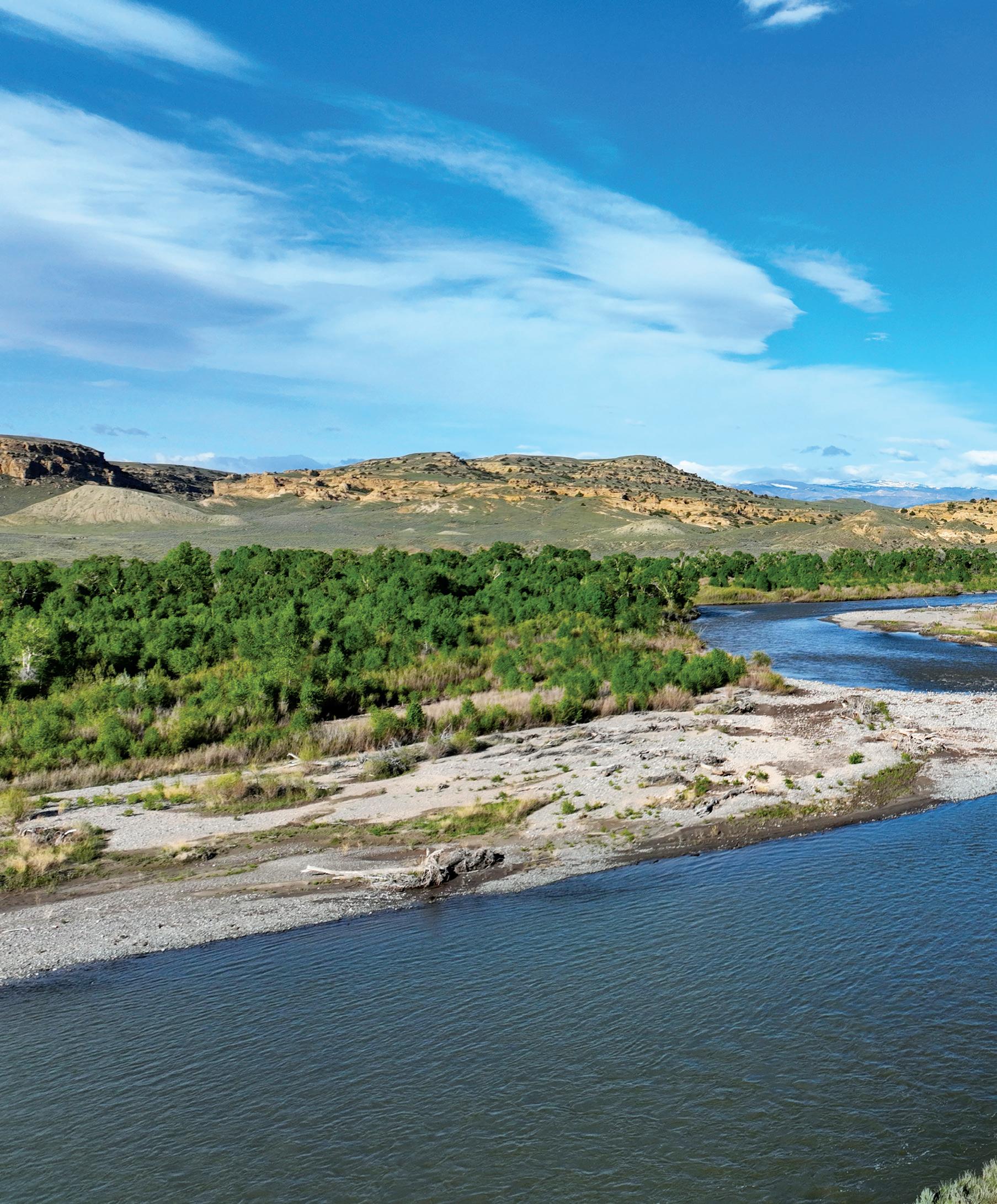
The Wind River is one of Wyoming's most overlooked trout streams. Public access near the ranch is very limited. Its trout fishing opportunities rival some of the best in the state. In addition to trout fishing in the Wind River, there are a number of lakes and reservoirs nearby that offer catfish in Boysen Reservoir.
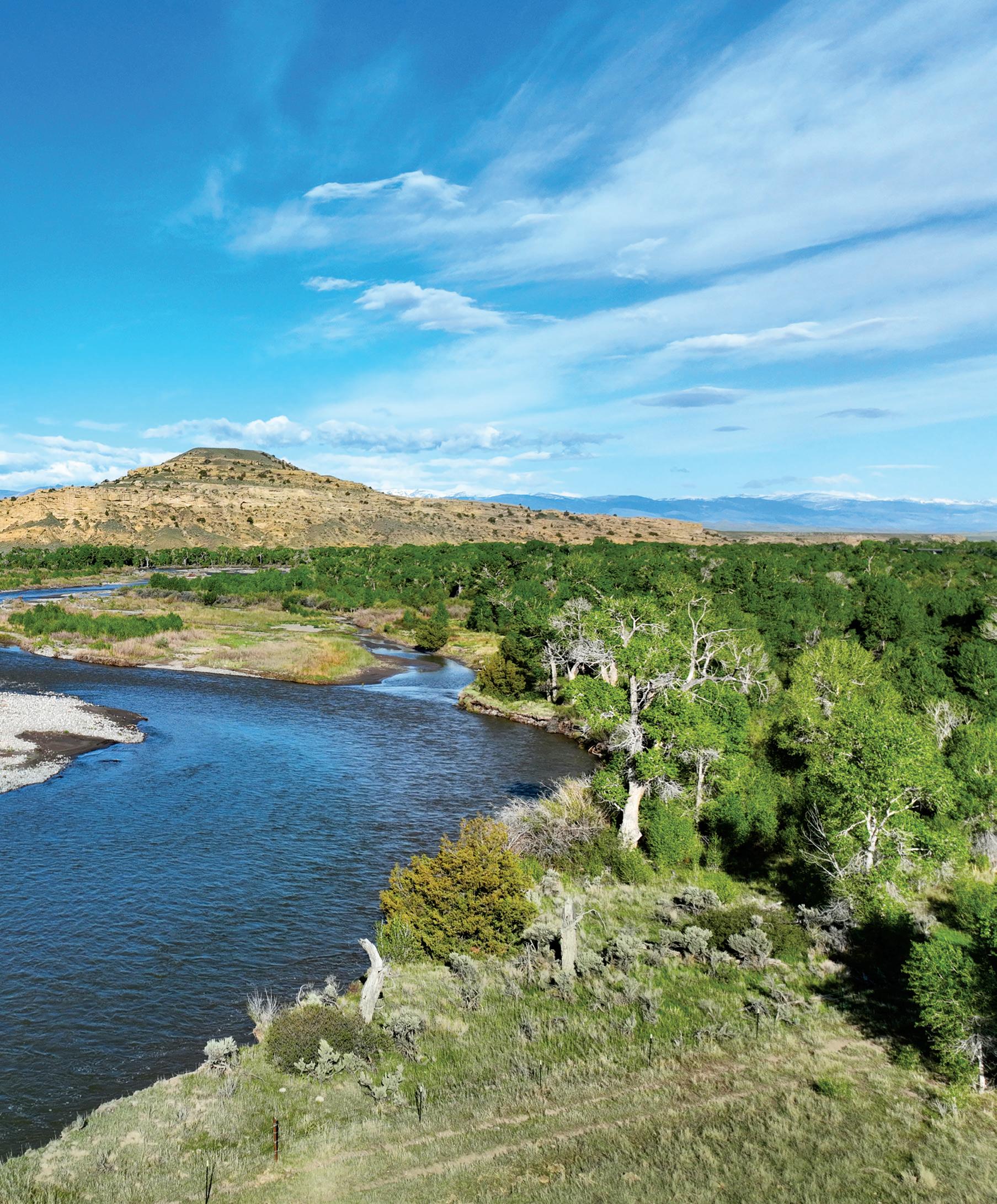
Hunting on the ranch is hard to beat. Wind River Ranch is teeming with wildlife including elk, deer, antelope, moose, bears, and mountain lions. Bird species include bald and golden eagles, owls, ducks, geese, pheasants, and sage grouse. Elk in this area of Wyoming are a general draw, and the ranch has qualified in the past for landowner deer and antelope tags.
Property ID: 16769410
NATRONA COUNTY, WYOMING
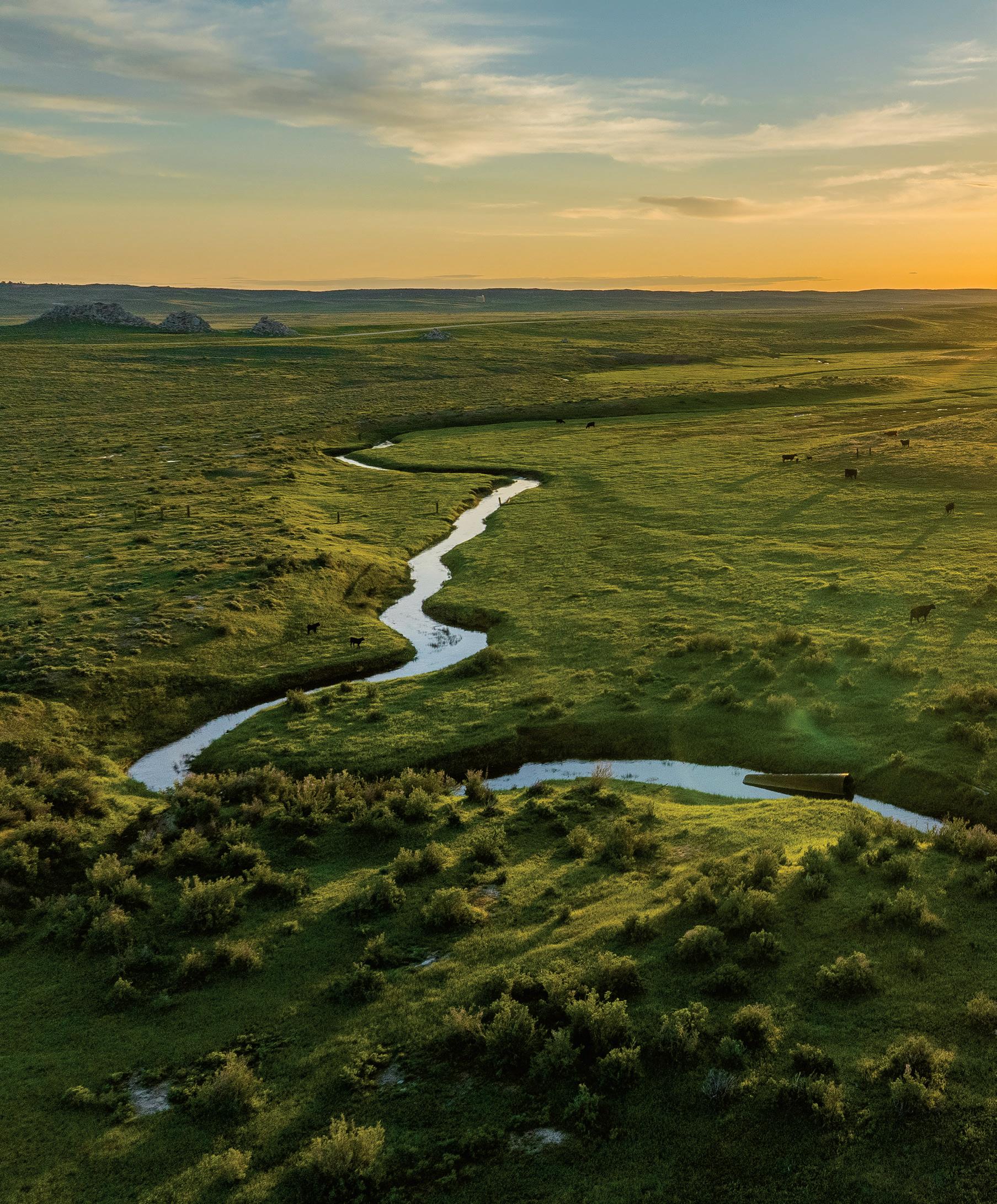
87,517± Acres • $48,000,000
Dax Hayden, Hayden Outdoors
HAYDENOUTDOORS.COM
This area of Wyoming is an ideal launching point for visiting Devils Tower National Monument, the Bighorn Mountains, the Wind River Reservation, the Wind River Mountains, Grand Teton National Park and Yellowstone National Park. Find
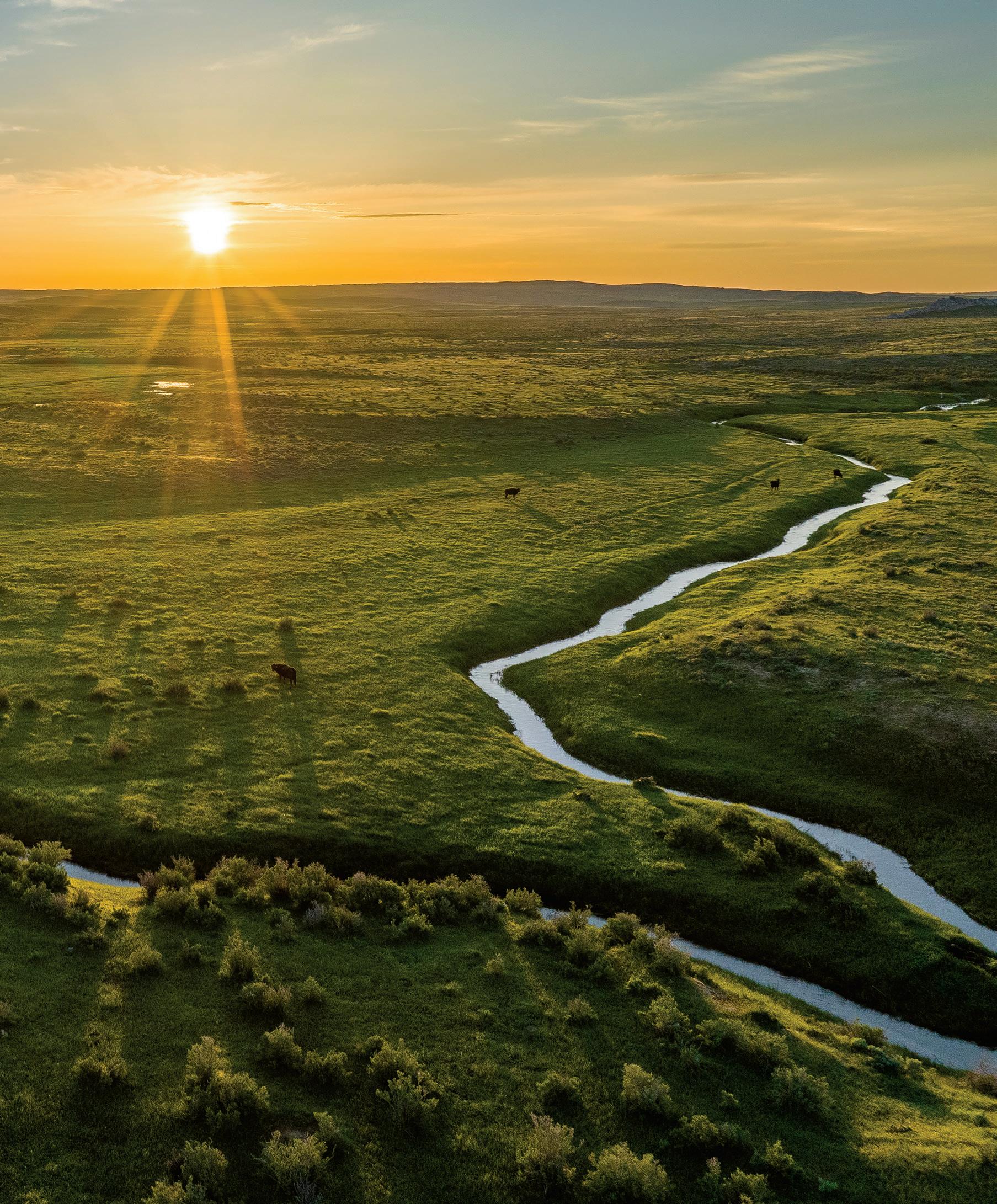
The ranch is excellently watered. Poison Spider Creek runs through the entire ranch from east to west. South Fork Casper Creek bisects the ranch providing an additional waterway. Soap Creek flows year-round as well, creating thick grass bottoms. Austin Creek terminates on the ranch into a stock pond wetland.
The ranch is excellent for hunting elk, mule deer, antelope, upland birds, and varmints. This property's gently rolling topography is a prime spot for stalk hunting all species.
Property ID: 15526044
The Homestead sits on a historic migratory path for birds of all kinds and the property is conserved so wildlife and birds will continue to make their home; the conservation easement allows for additional buildings.
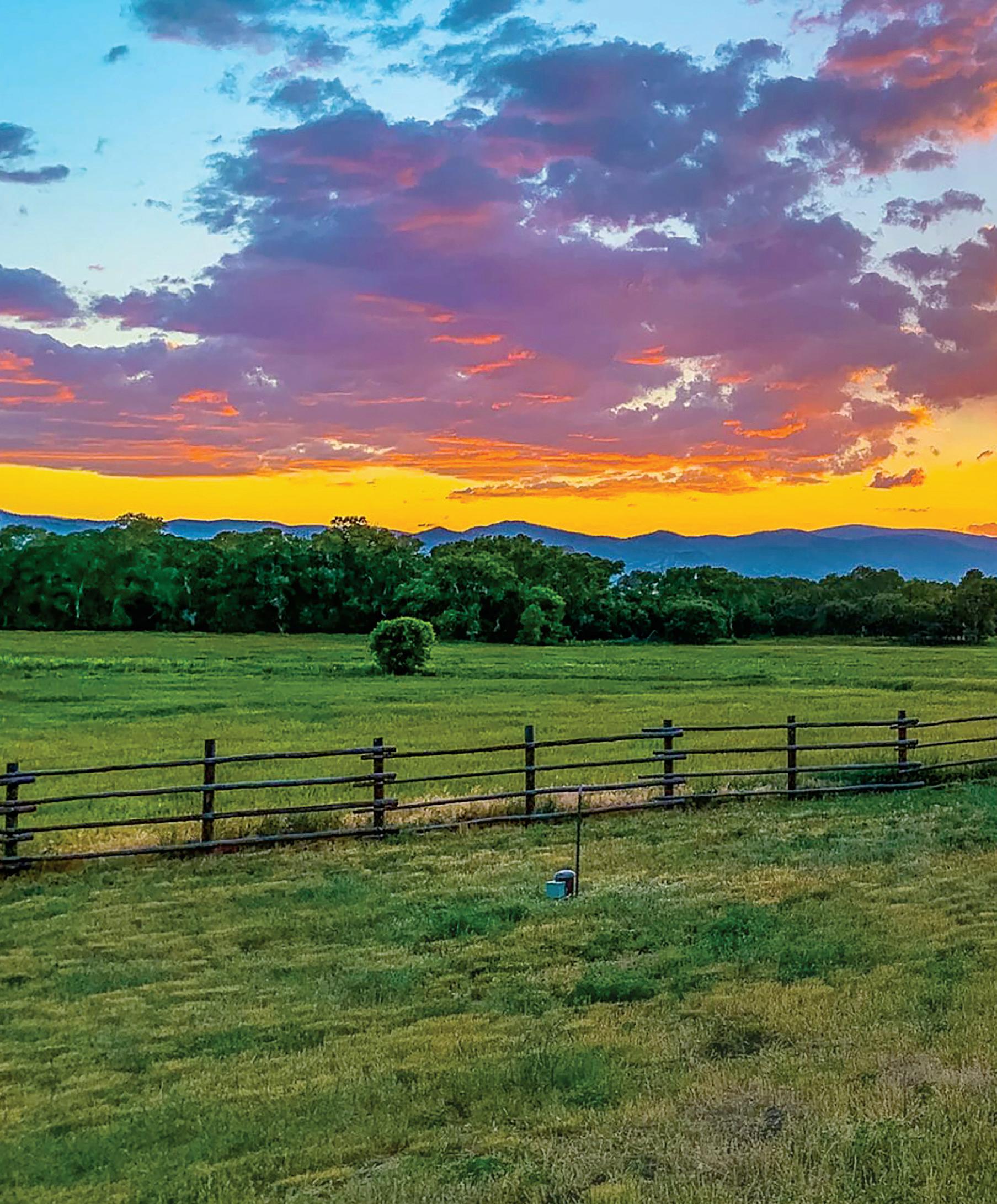
Just a few miles past the Homestead is one of the many trailheads to the San Isabel National Forest. Access to thousands of acres that include trout lakes, streams, waterfalls as well more than 50 trails perfect for hiking, horseback riding and mountain biking are just a few minutes away.
Property ID: 16351913
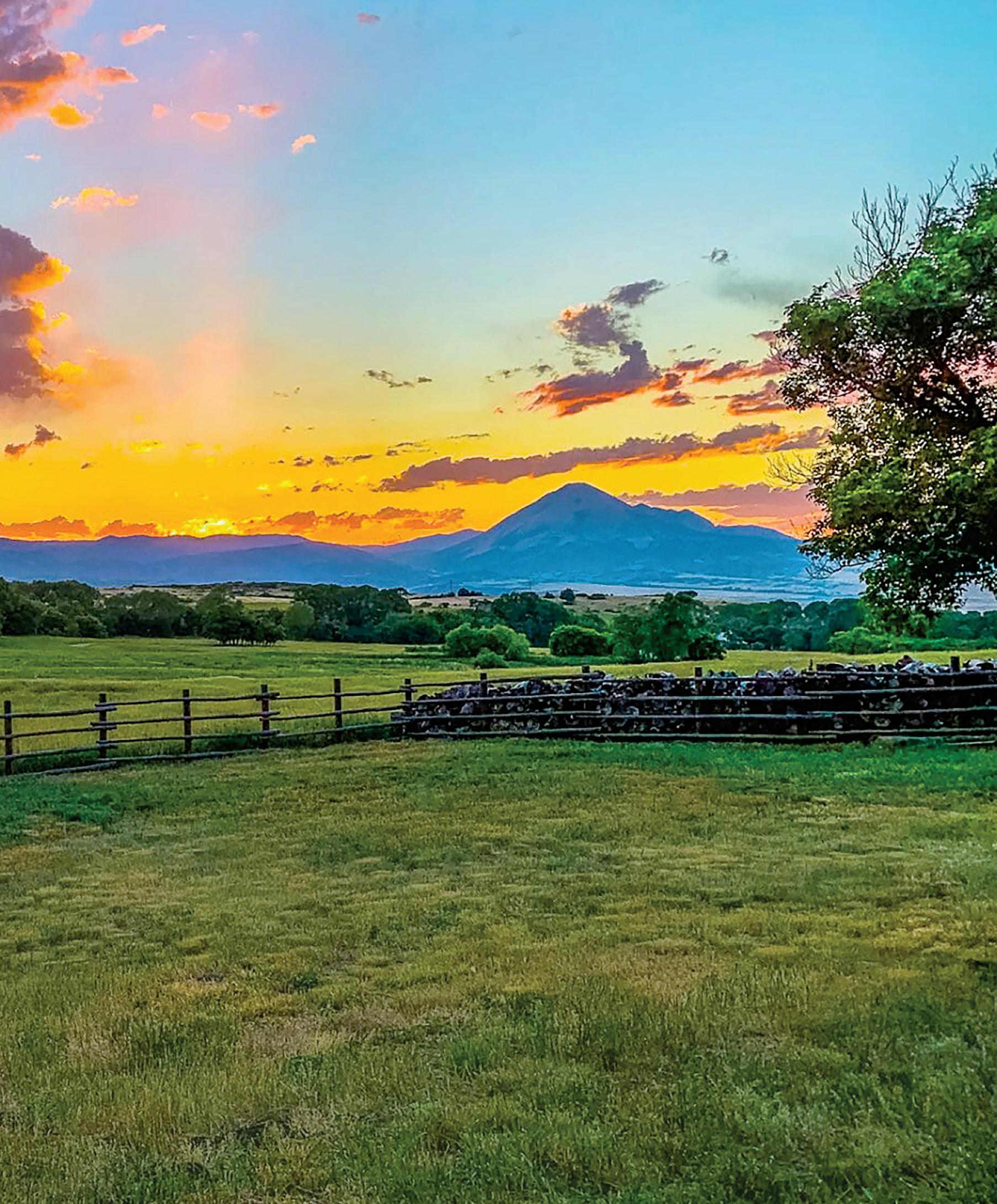
Several ponds can be found on the ranch, some stocked with trout for great recreational fishing.
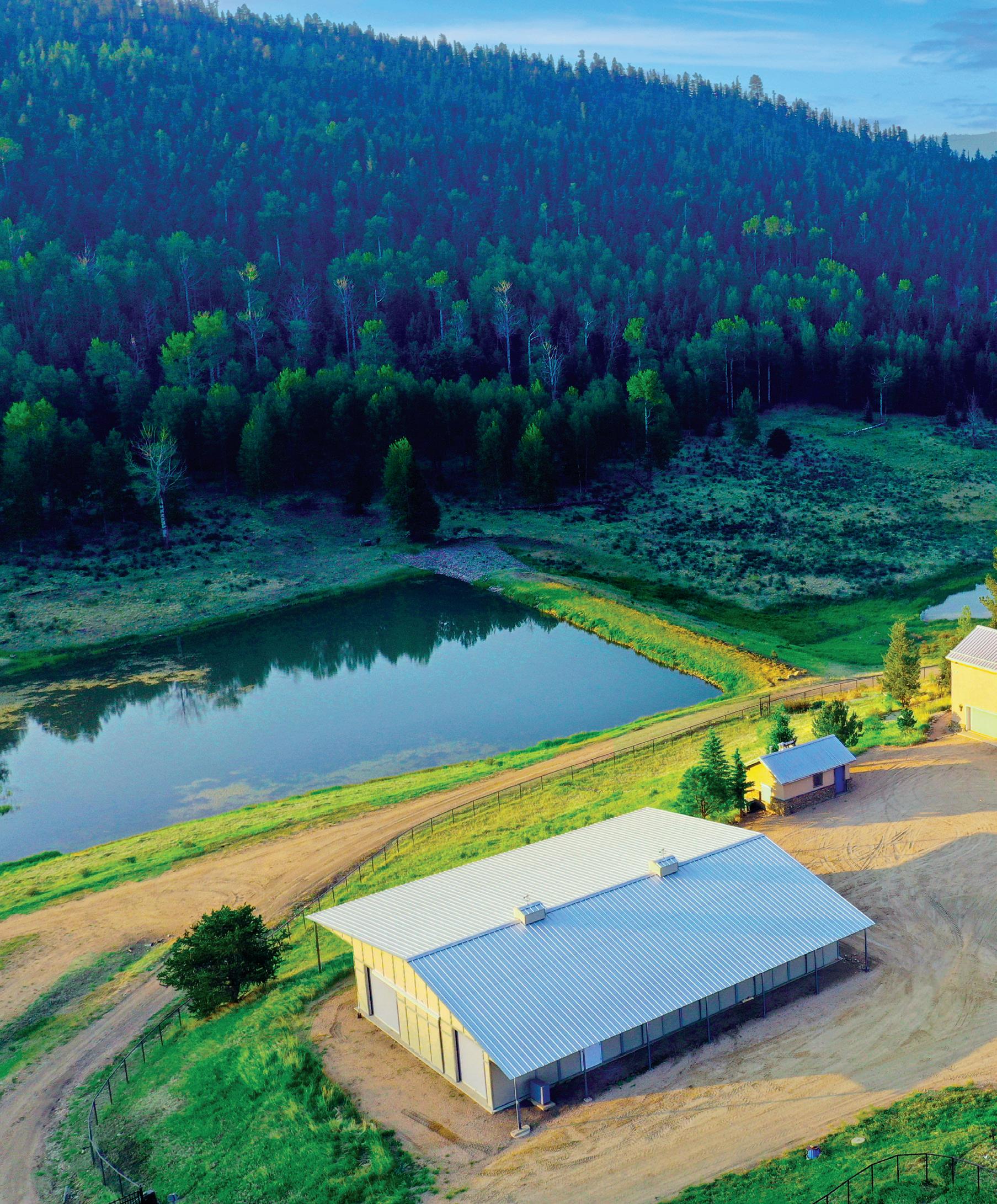
The ranch is in Game Management Unit 46. The ranch boasts 800AA± acres of subirrigated meadows, which helps attract its large elk populations.
An 11-stall, brick floor horse barn with an office, tack room and storage areas is the ideal starting point for horseback ranch work or trail riding expeditions to explore the beautiful valley and surrounding mountain ranges.
Property ID: 14705943
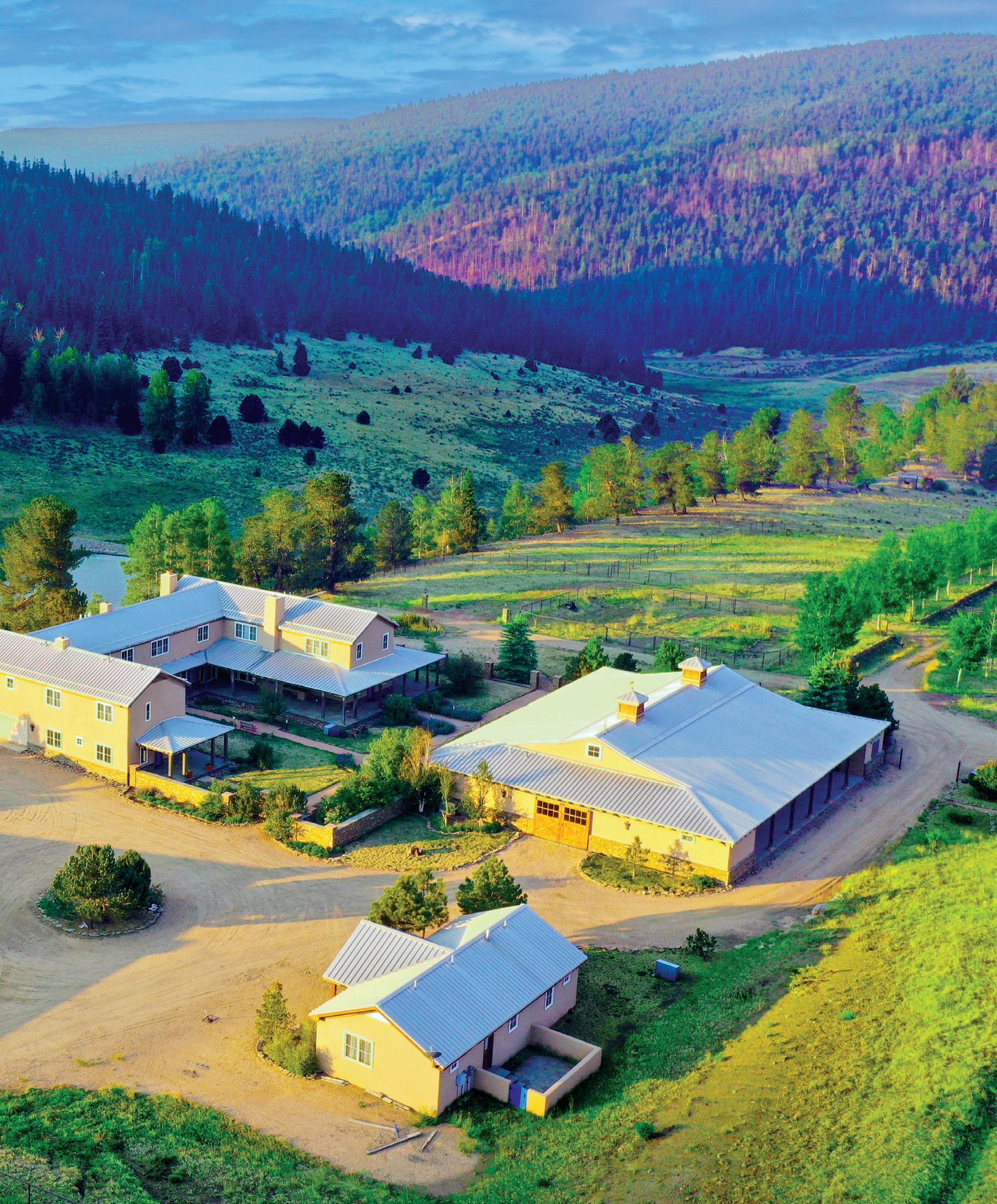
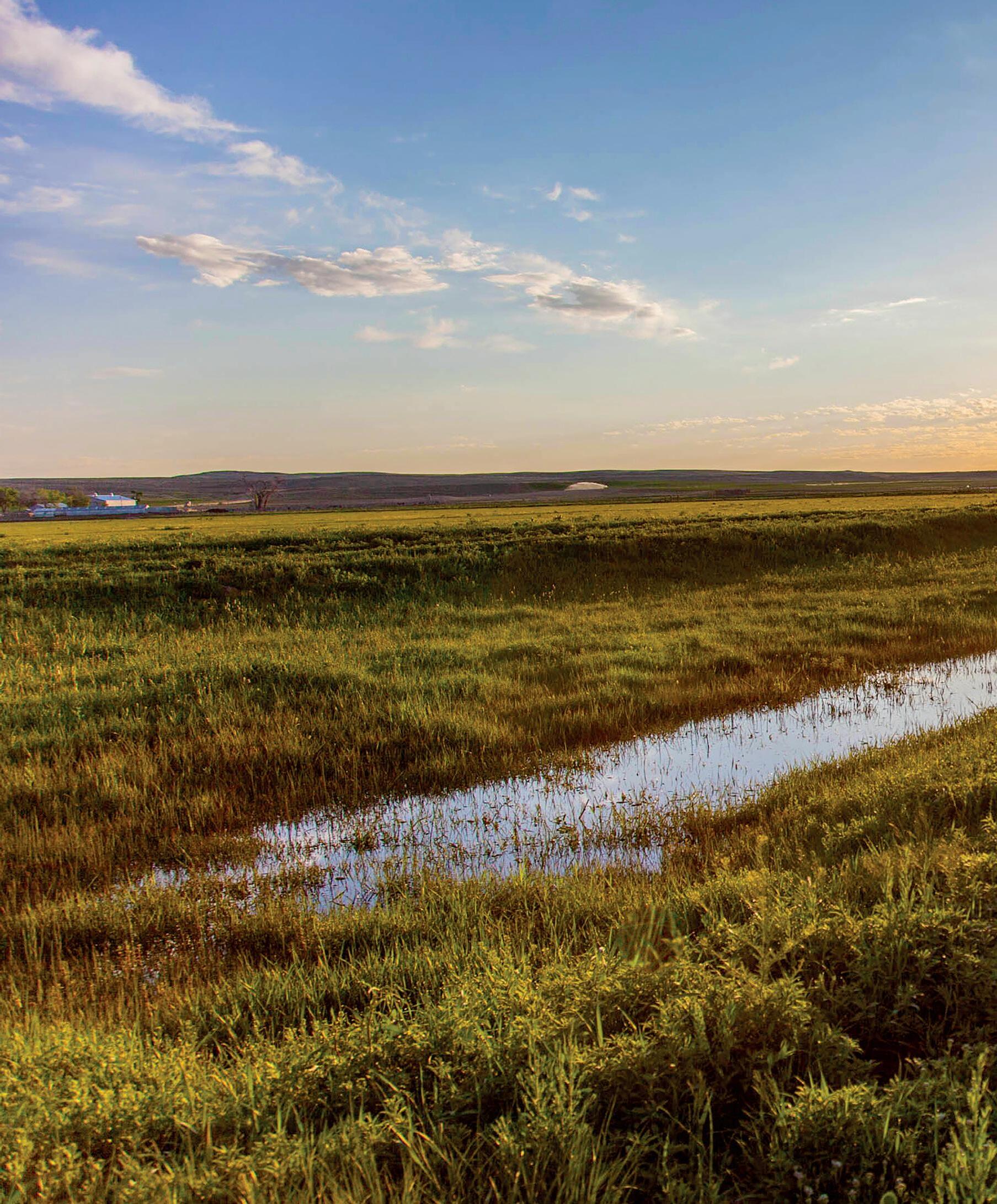
The high desert lower portion of the ranch contains critical range for big game offering trophy hunting for elk, mule deer and antelope.
Incomparable conservation values with important wildlife habitat, water resources, riparian areas, native species and dramatic scenery.
Property ID: 17312628
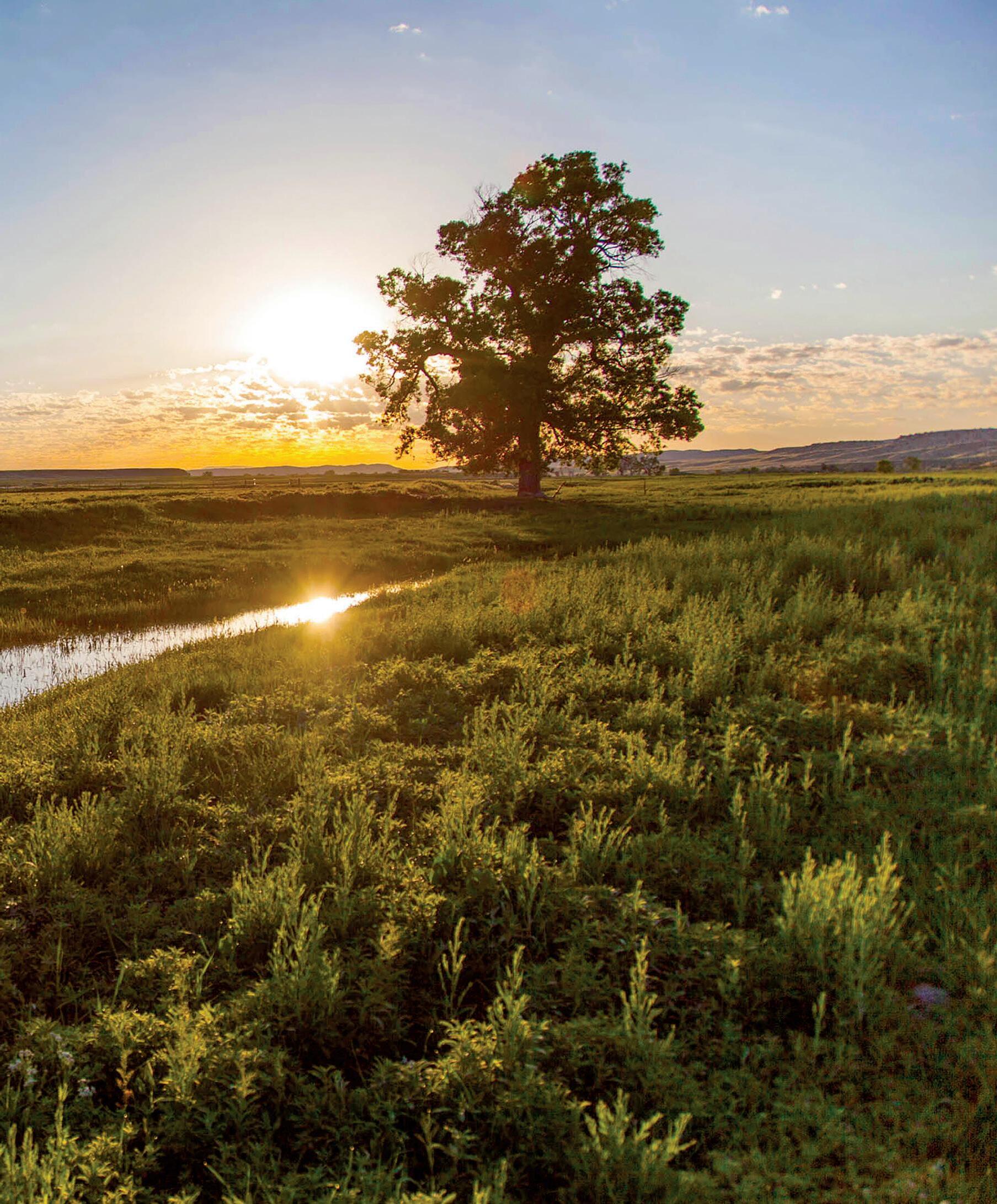
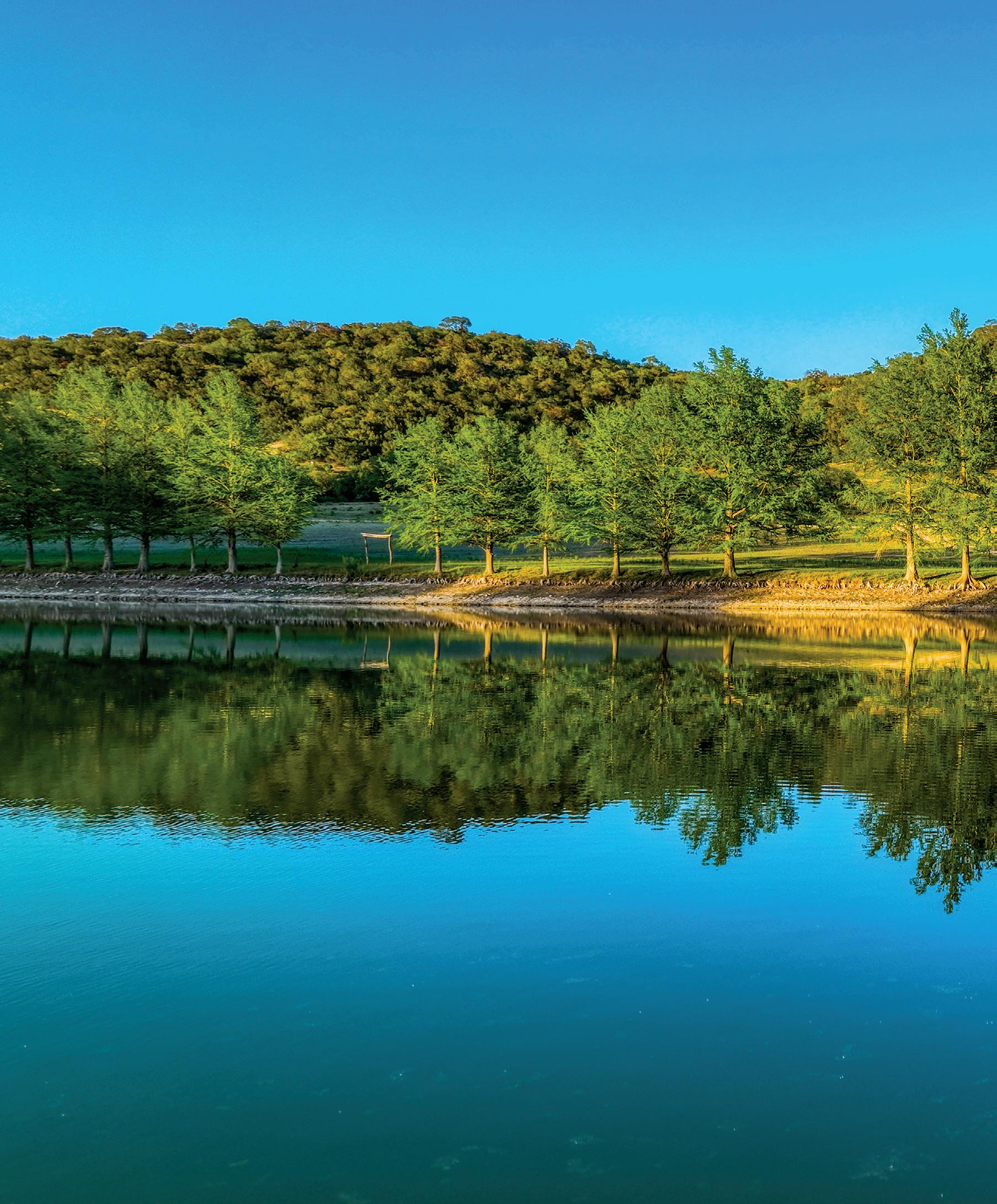
An eight± acre springfed lake, stocked with largemouth bass enhanced by Florida bass genetics, blue cats, blue gills and sun perch is arguably the recreational focal point.
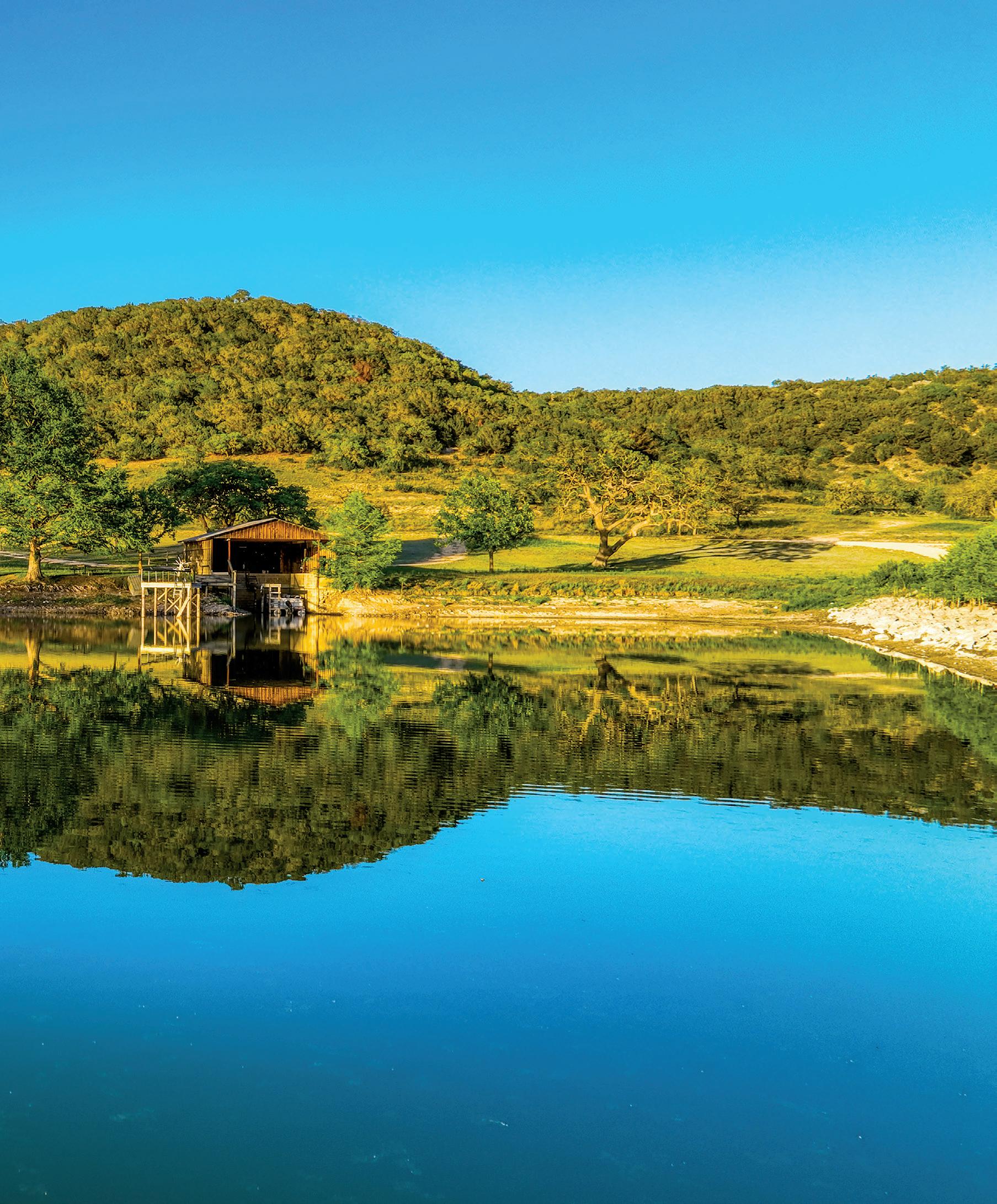
Whitetails that benefit from enhanced genetics, Rio Grande turkeys, dove and bobwhite quail are native to the ranch.
Property ID: 16963854
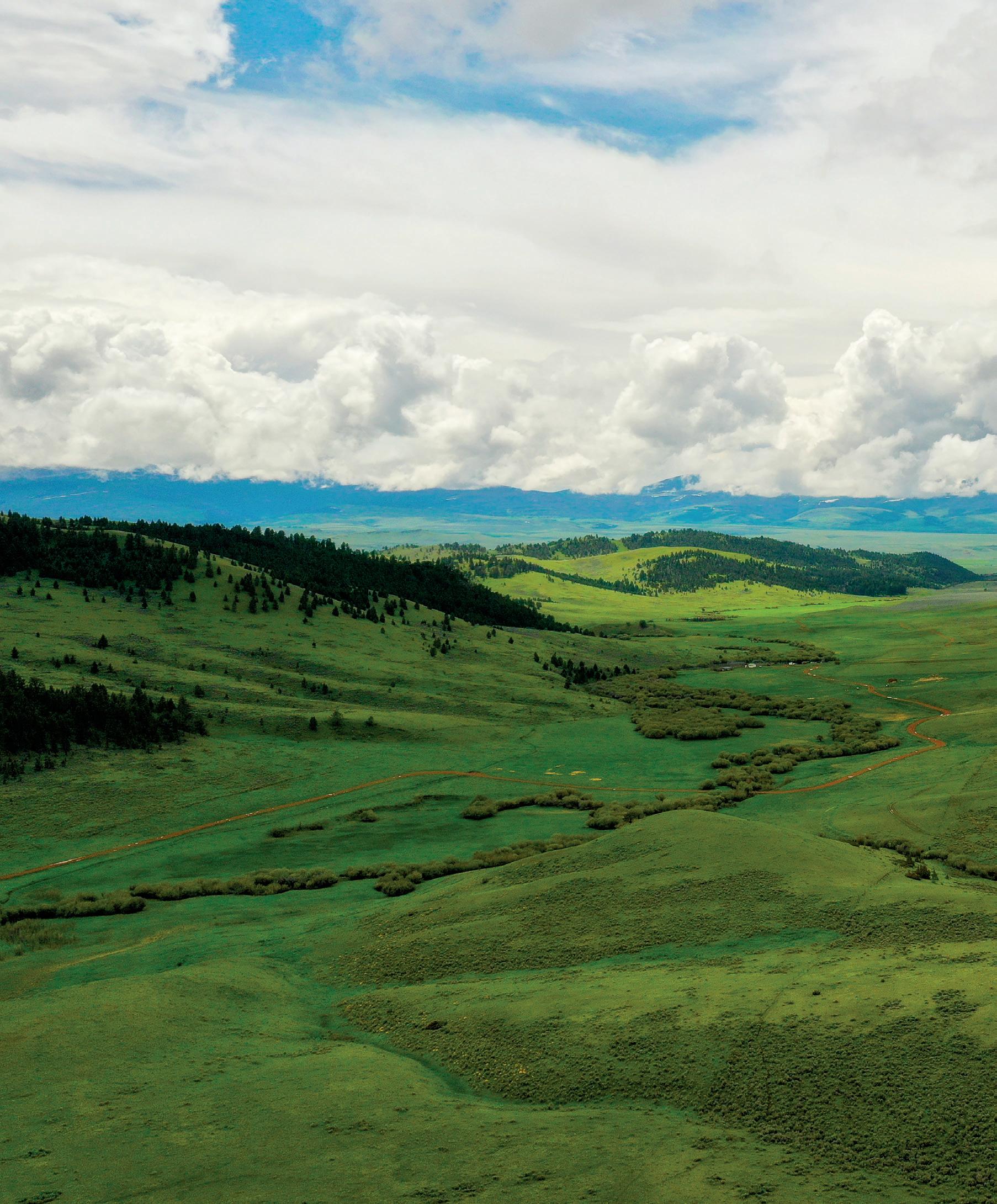
The Ranch has historically been used as a spring calving area and for spring and summer grazing pasture. It is estimated by the seller that the Ranch could support approximately 100-120 head year-round.
The ranch's contiguous acreage allows for numerous hunting opportunities or the ability to enjoy a small livestock operation utilizing the native pasture and the irrigation rights along the creek bottom.
Property ID: 17256508
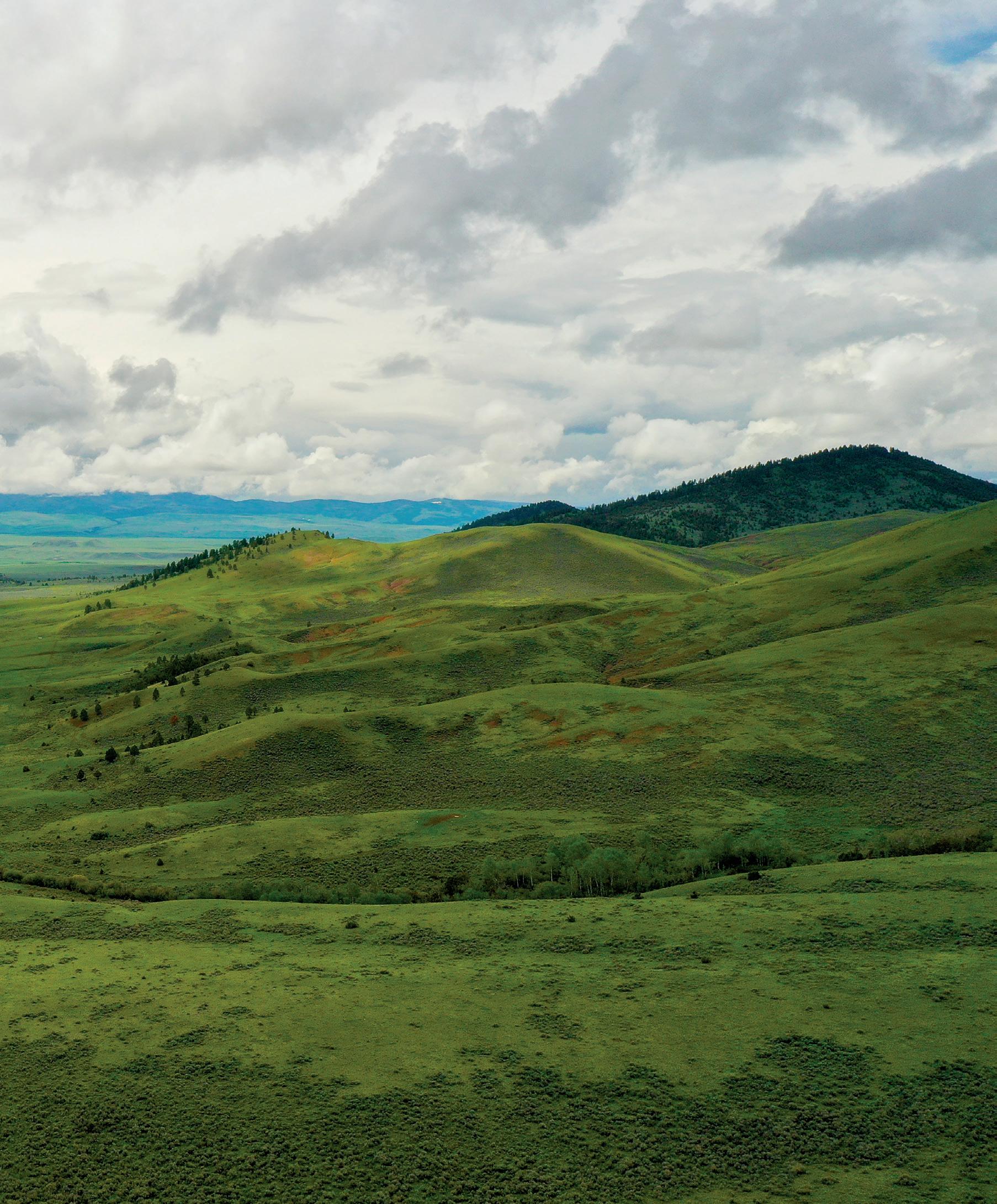
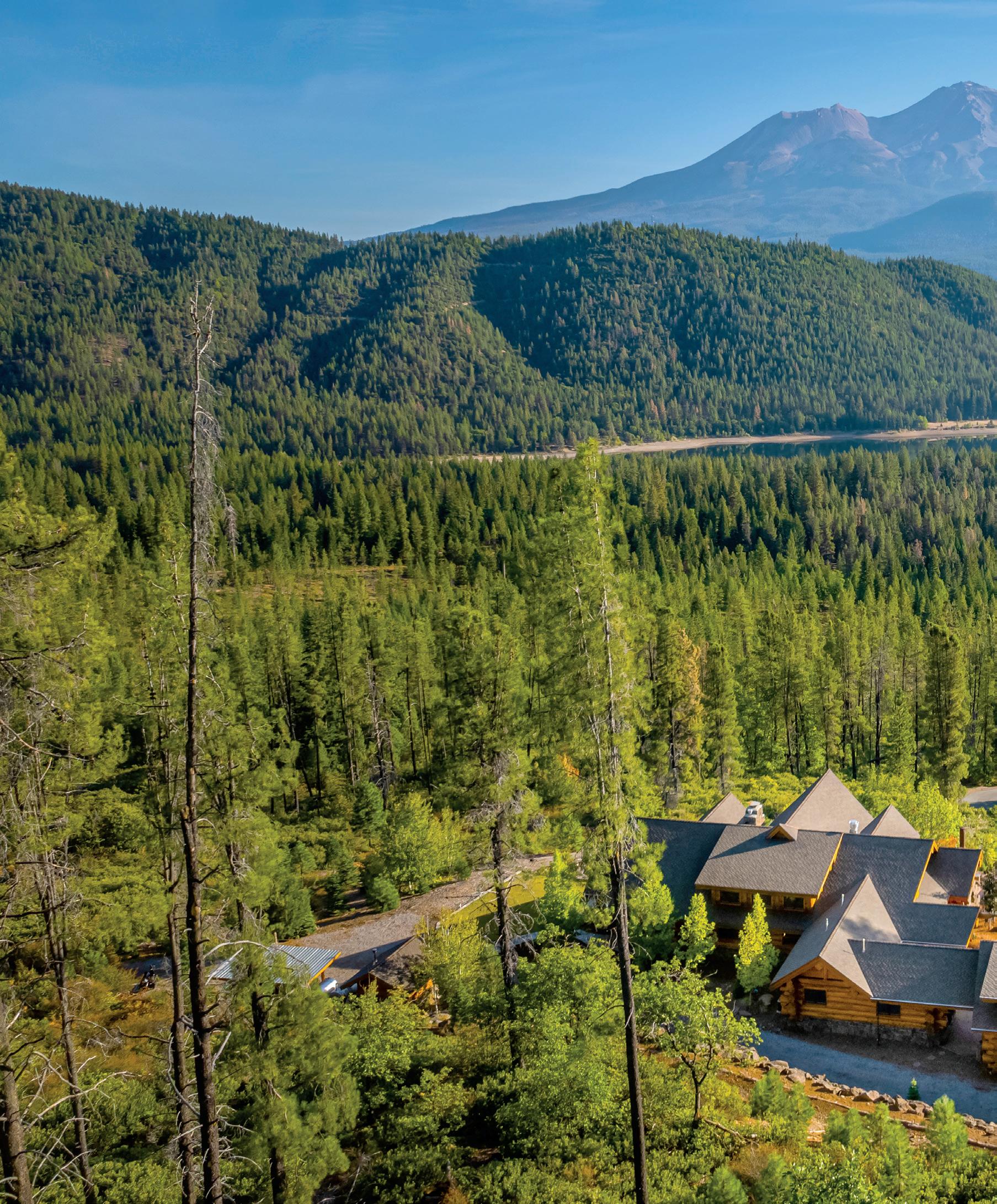
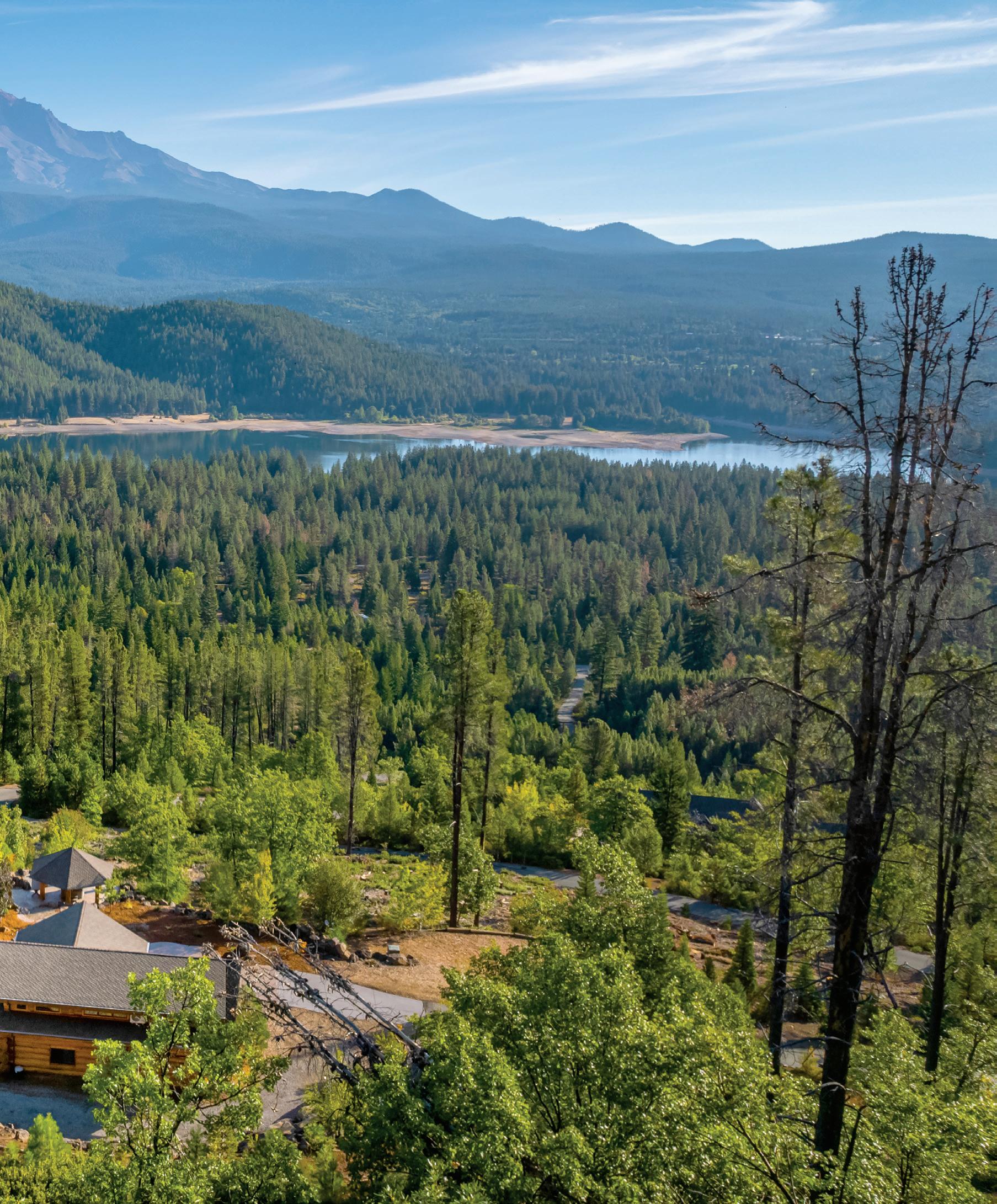
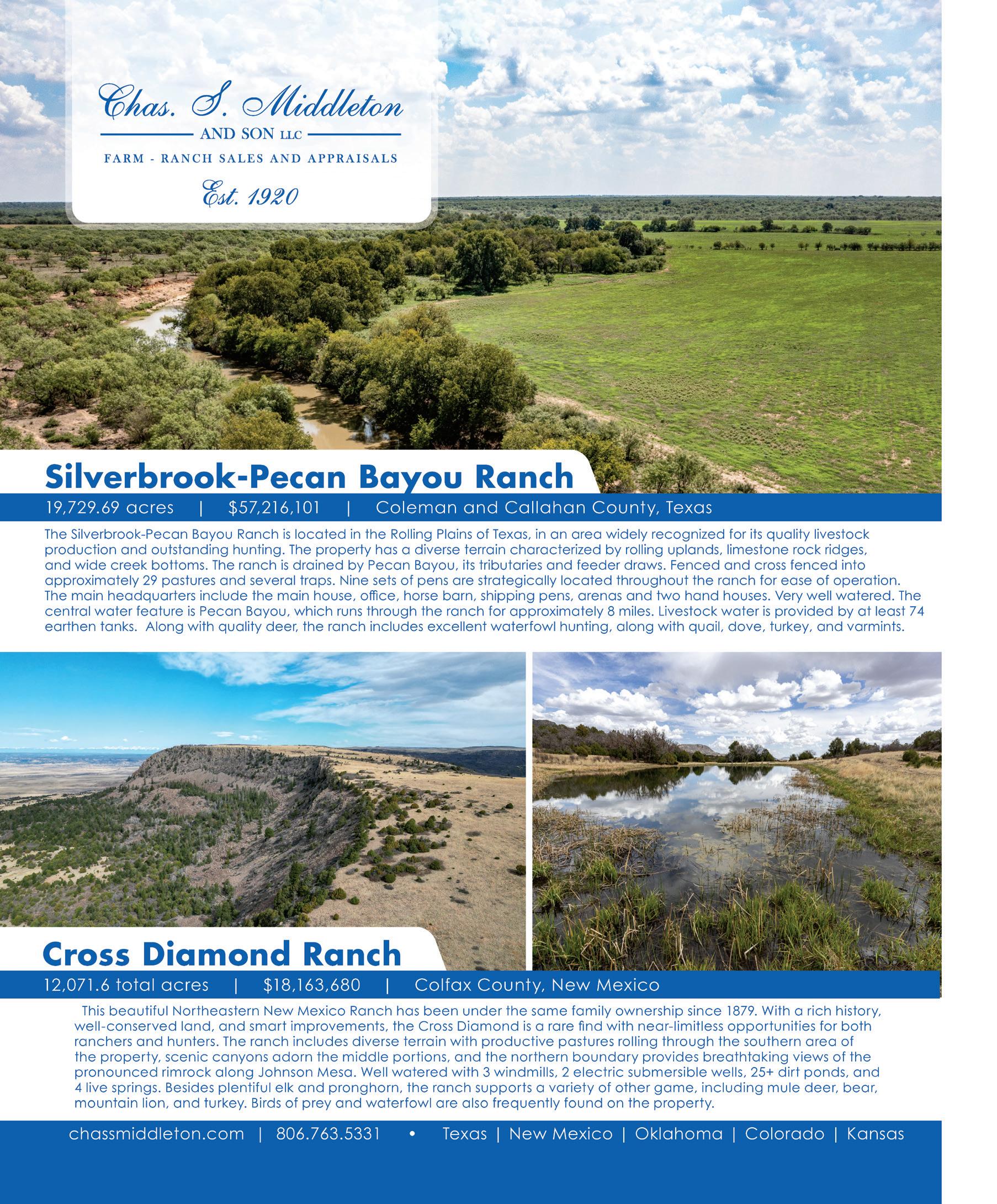
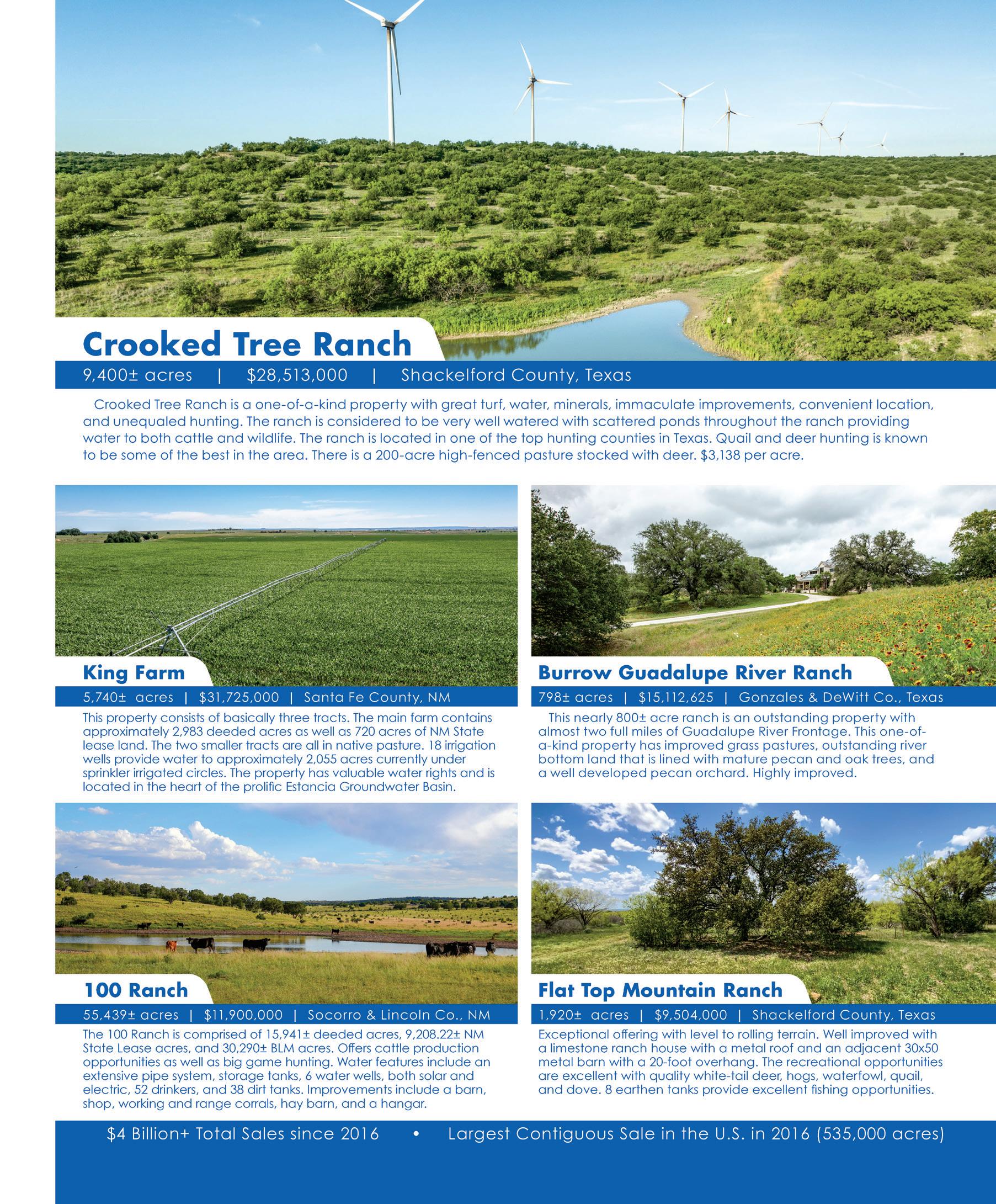
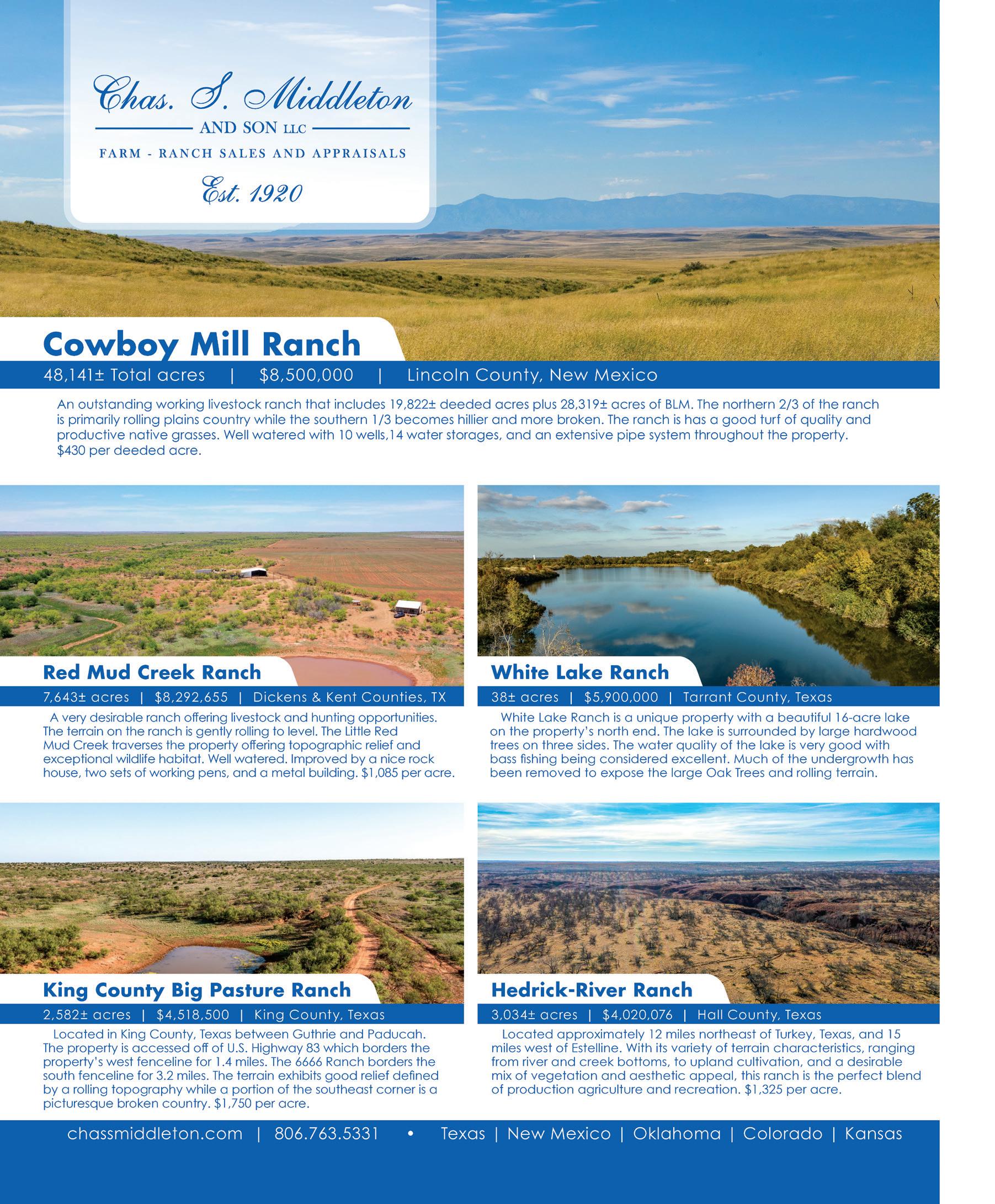
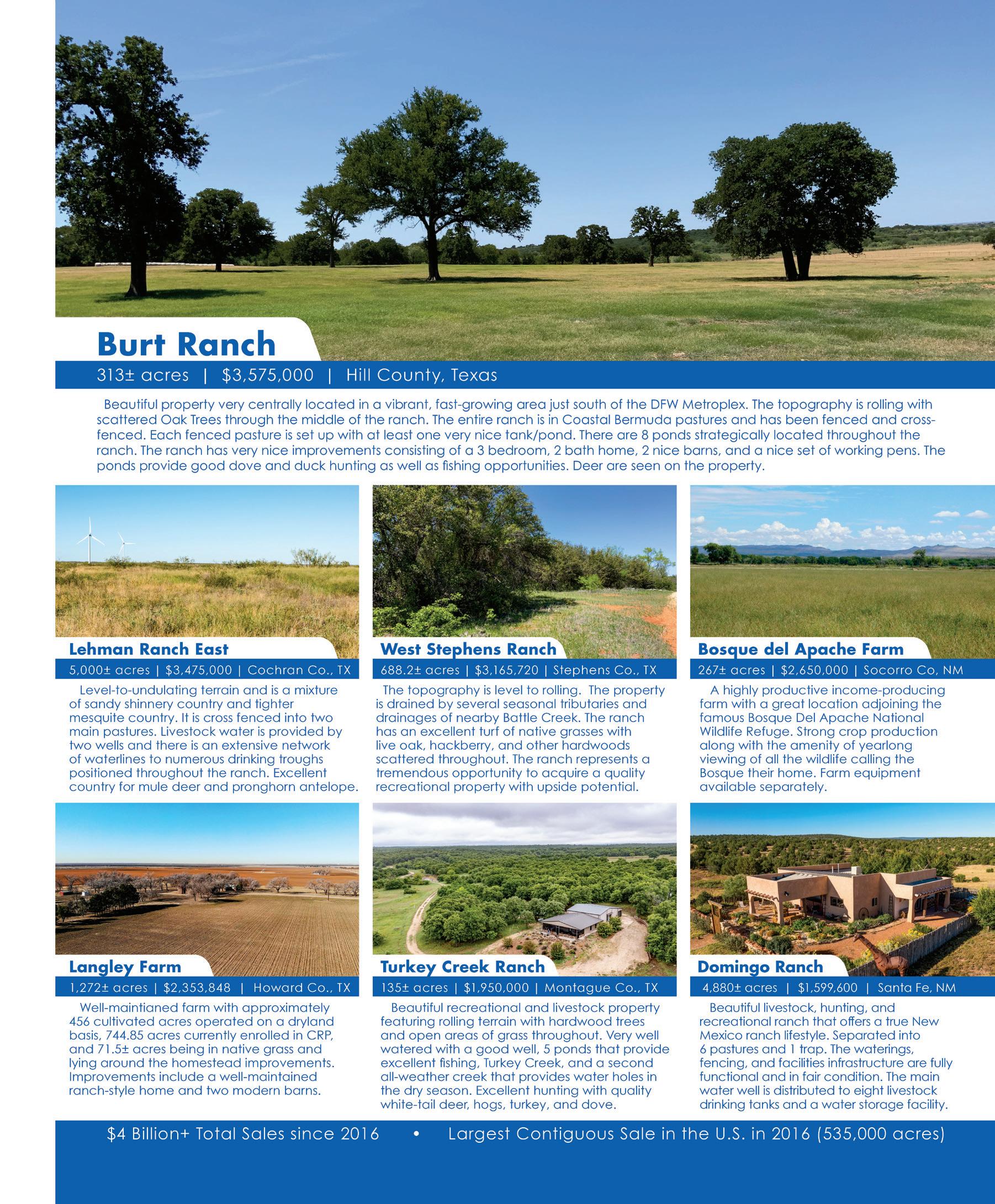
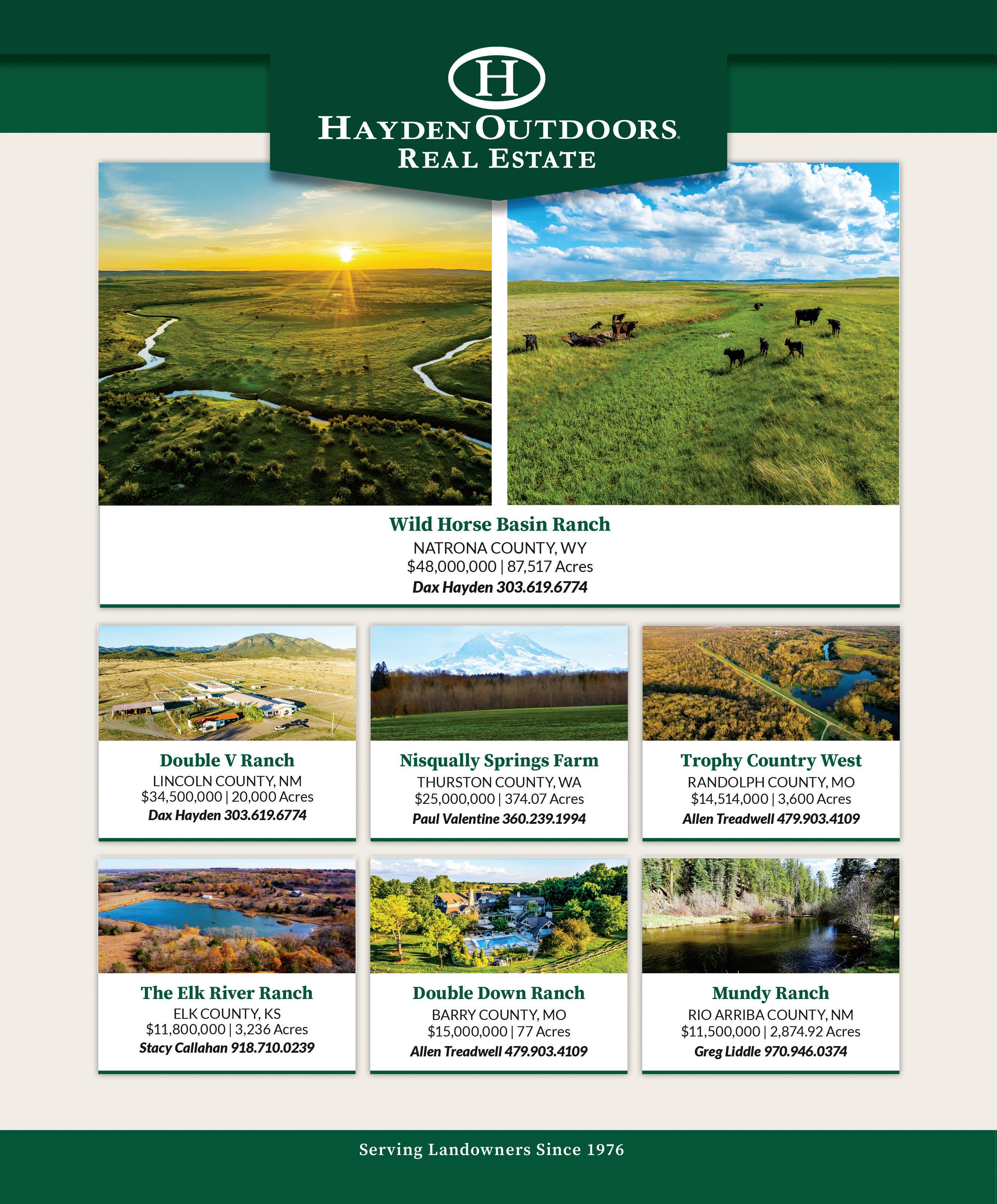
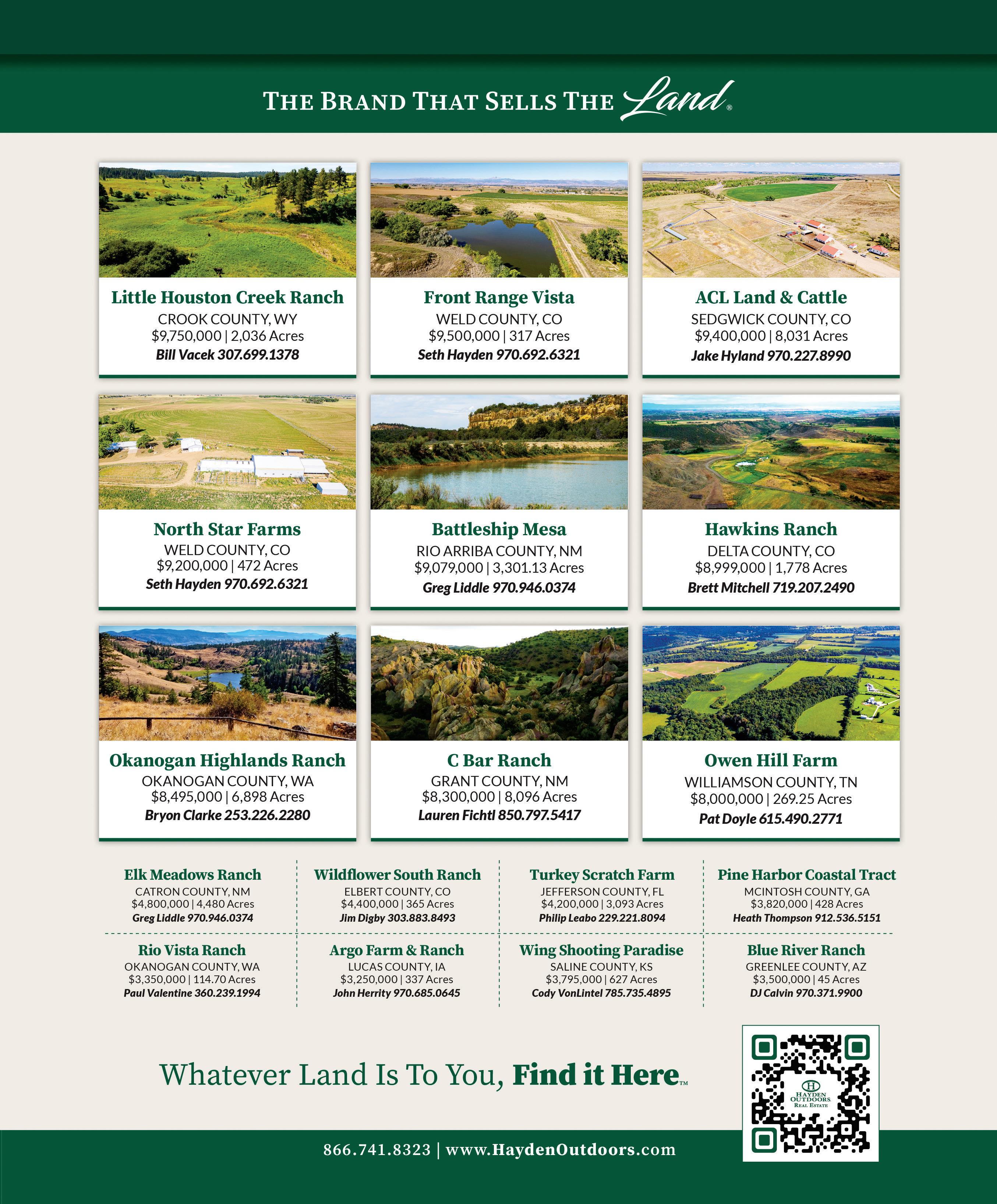
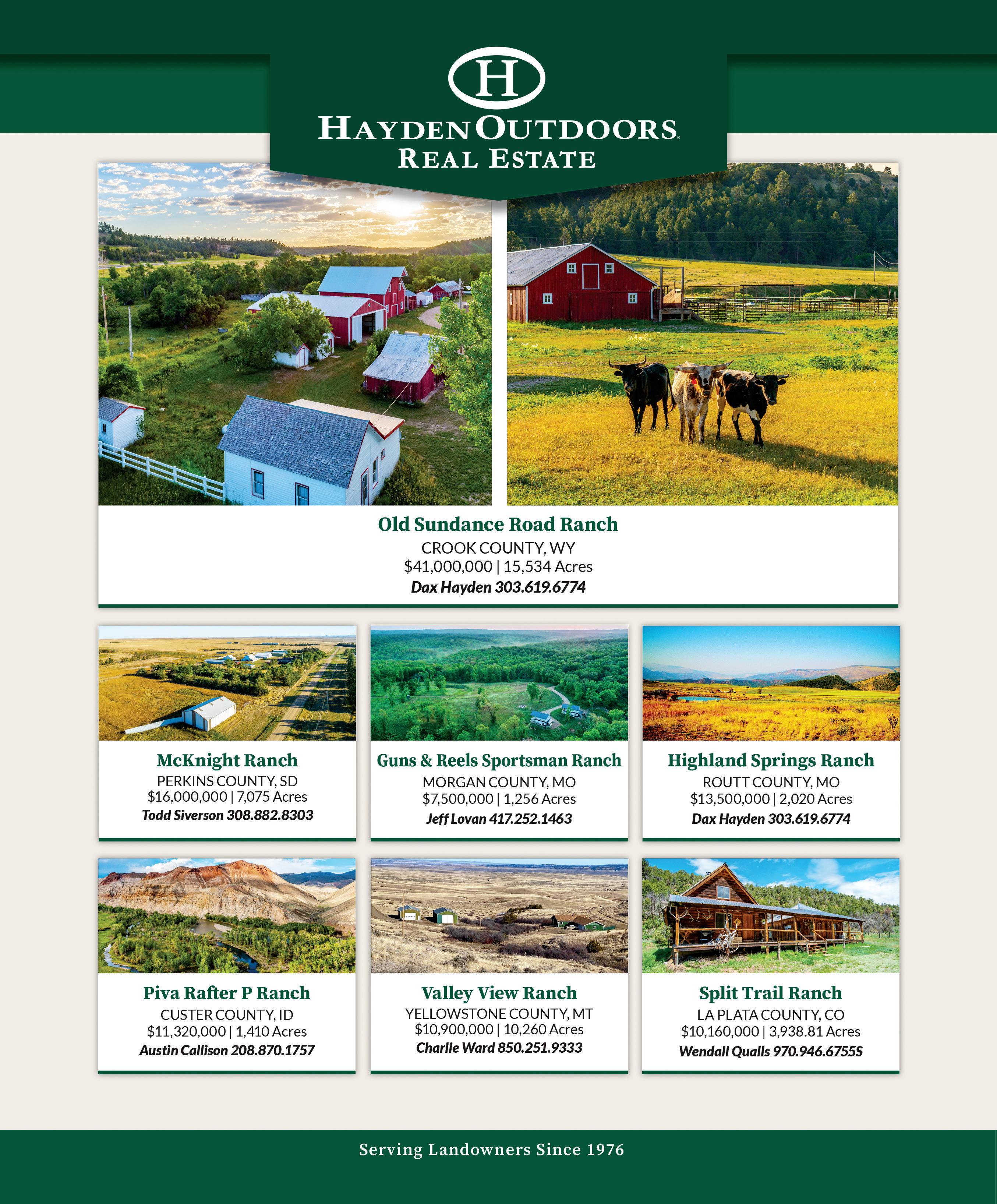
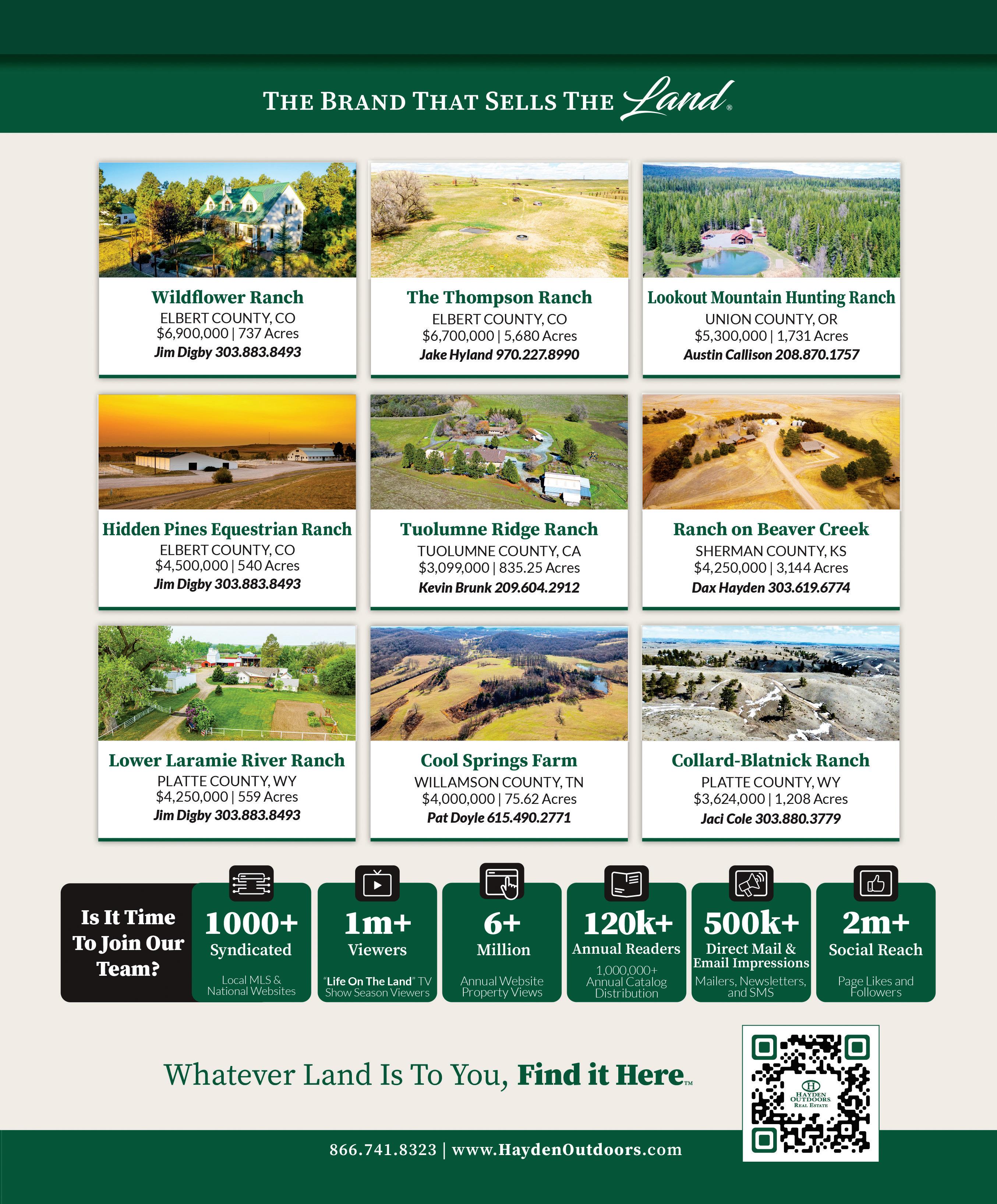
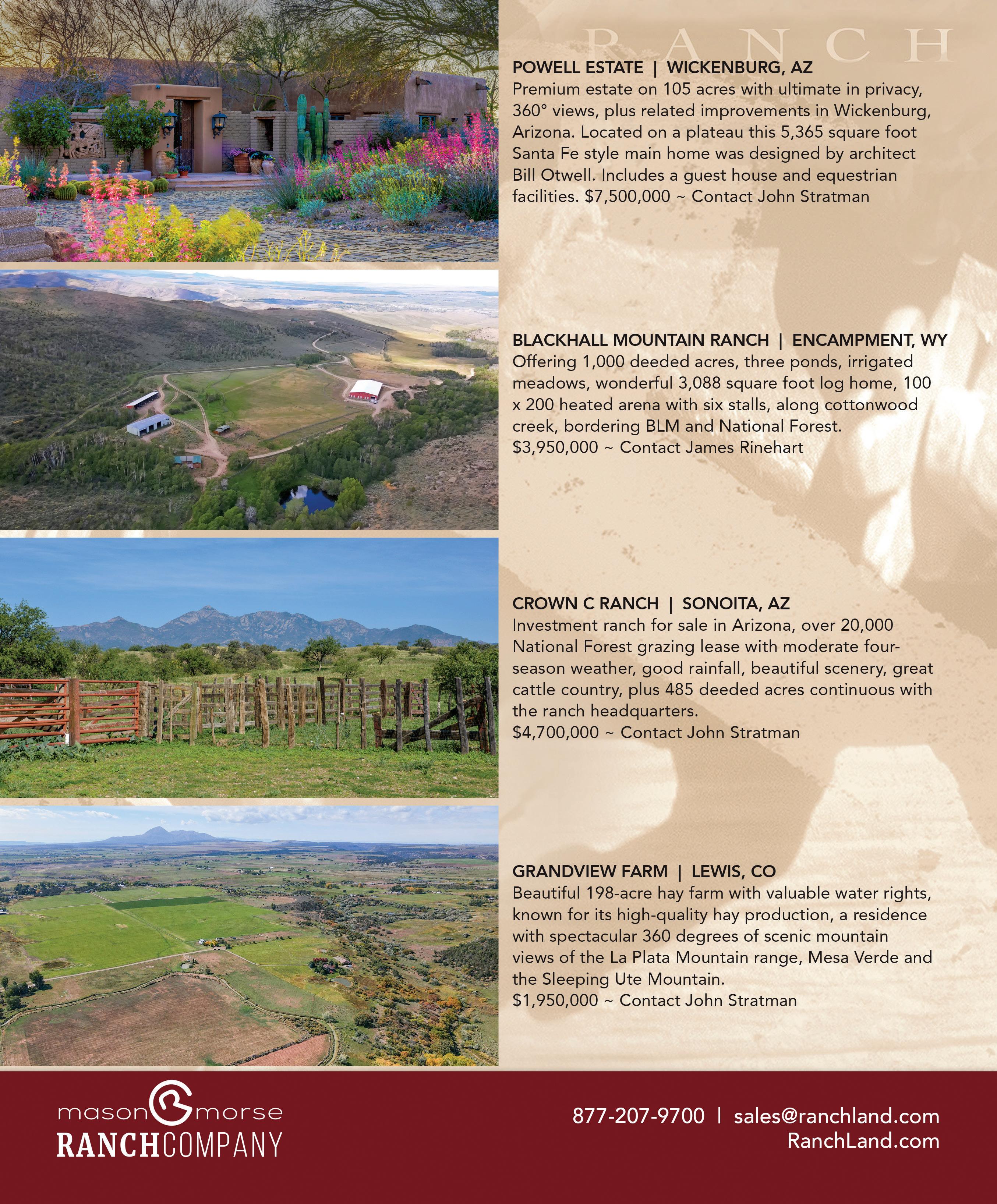
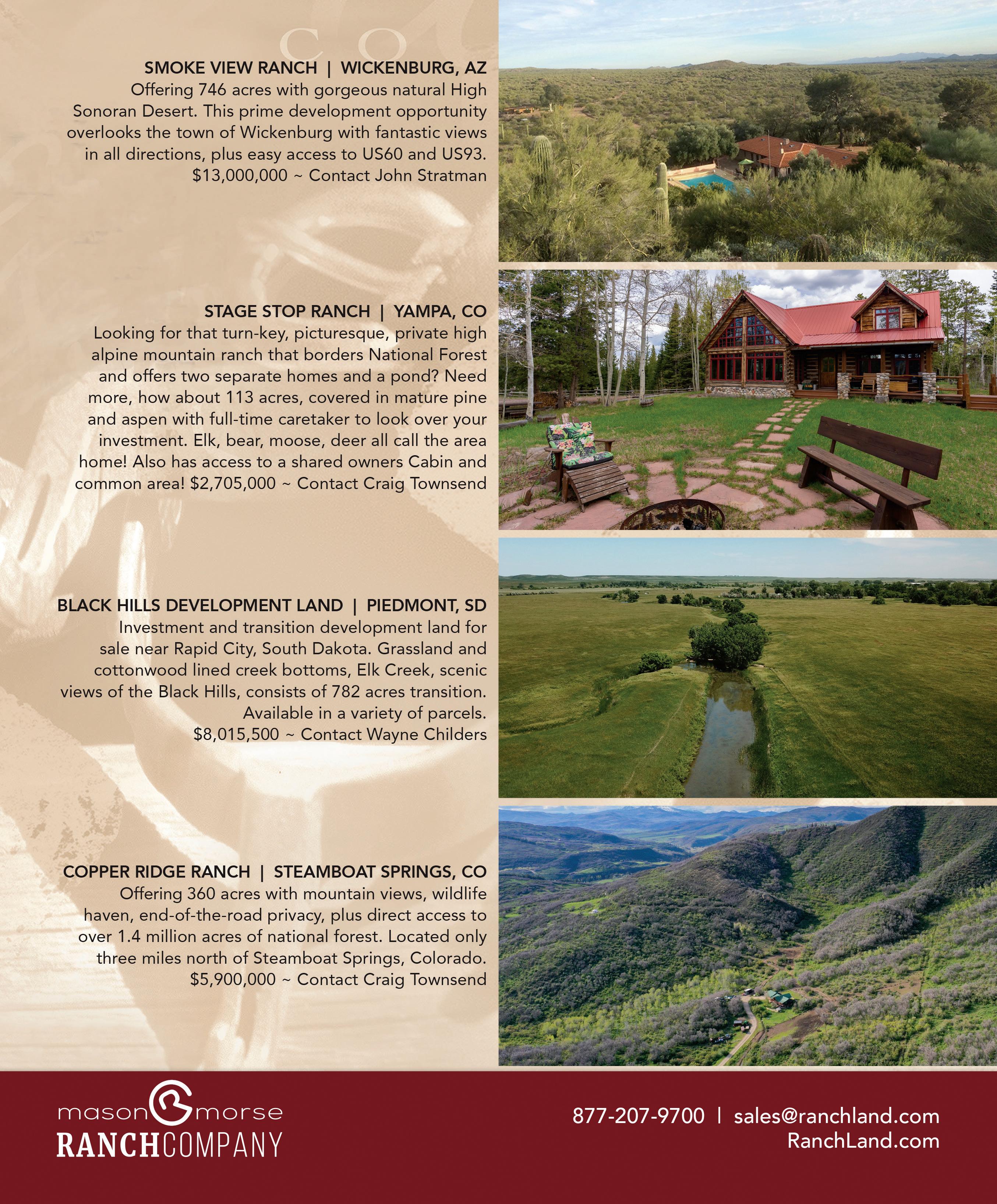
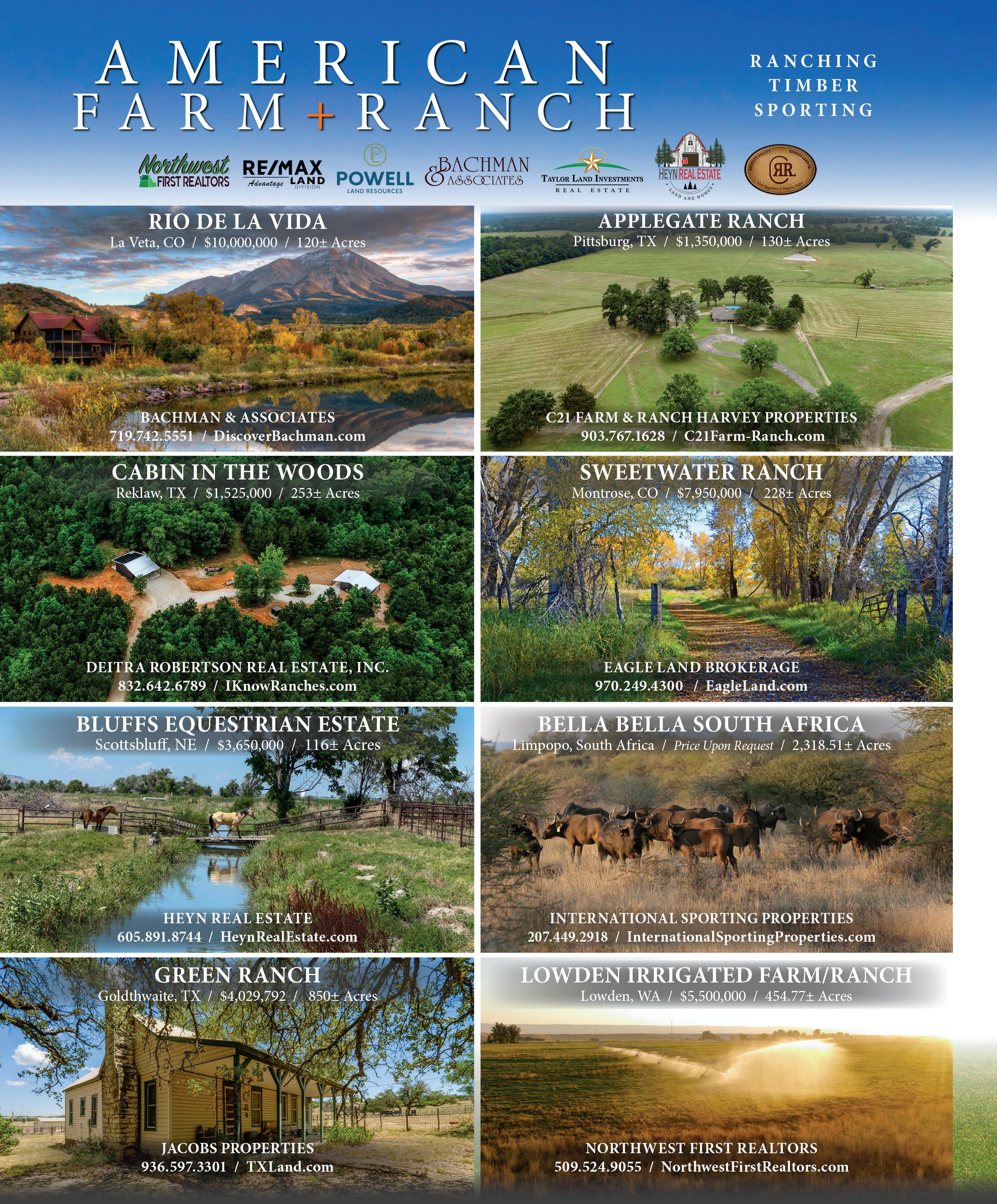
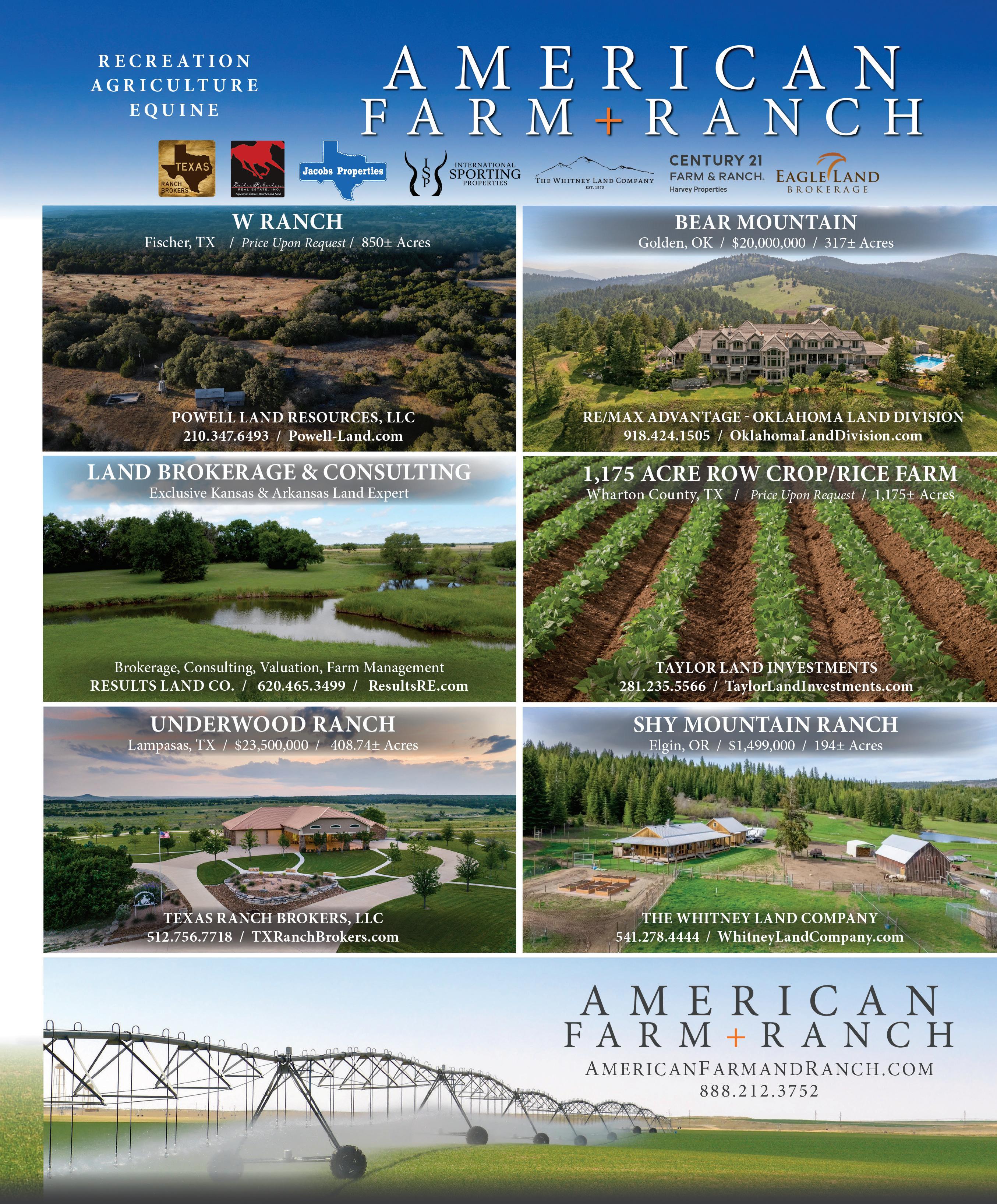
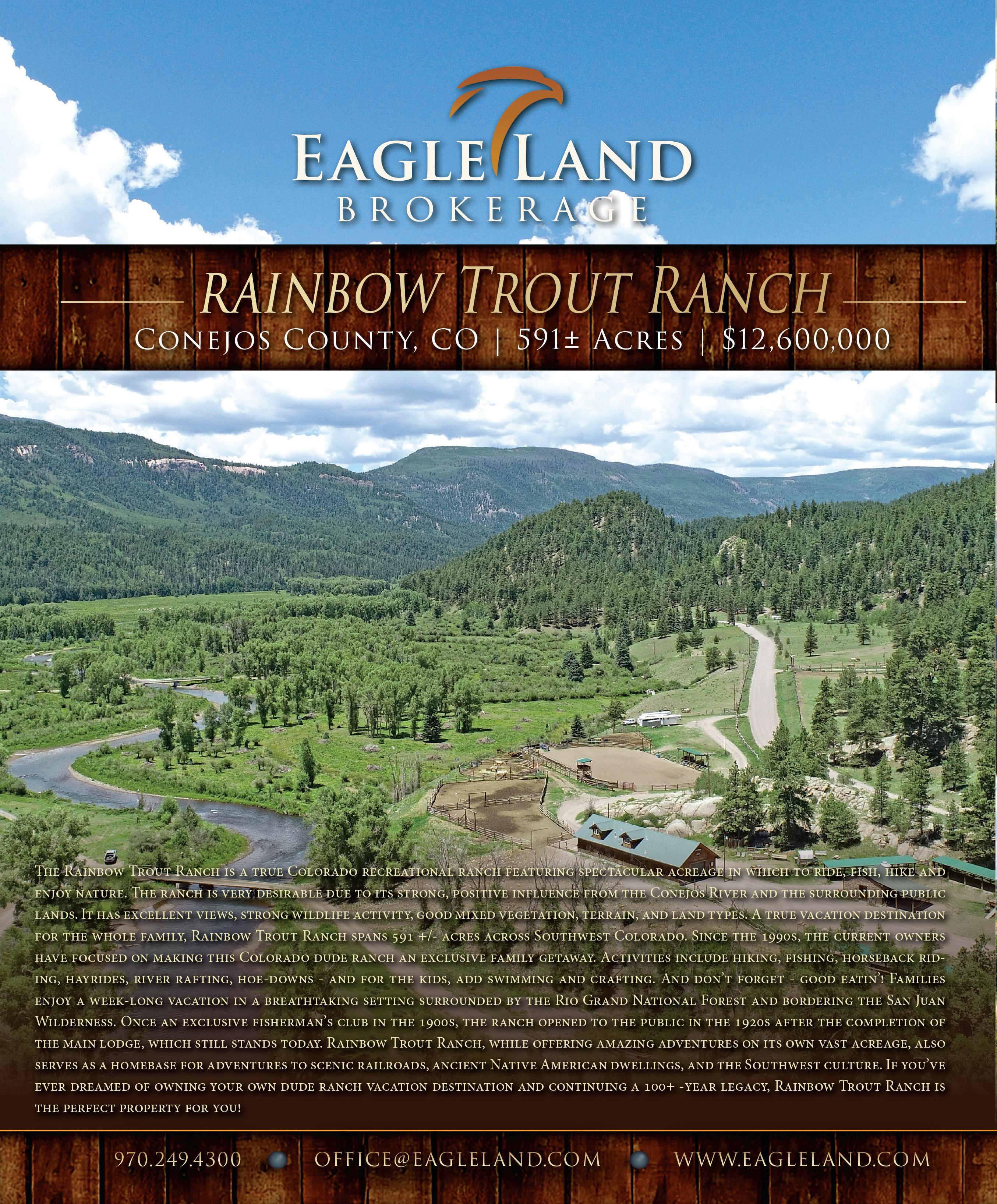
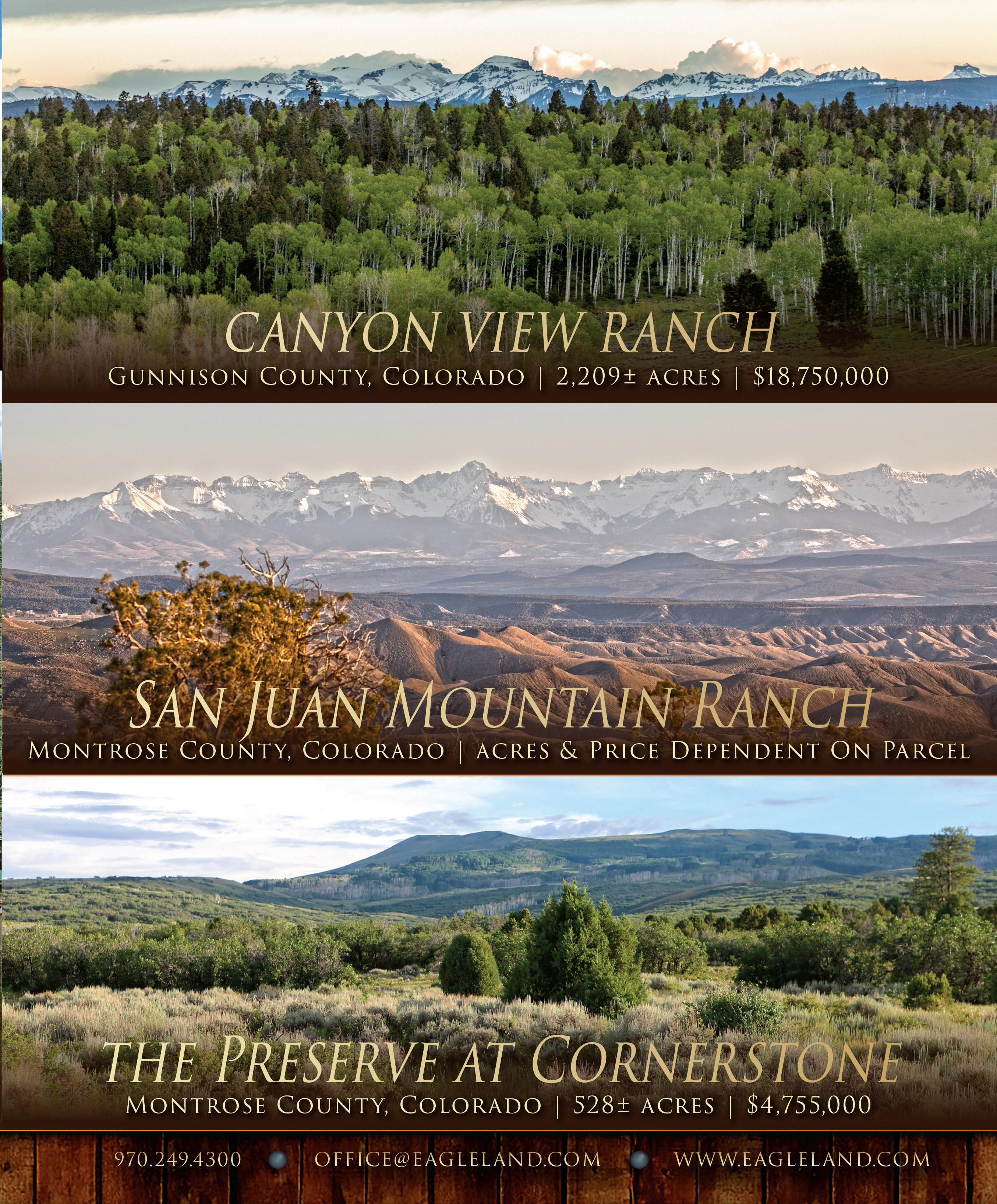
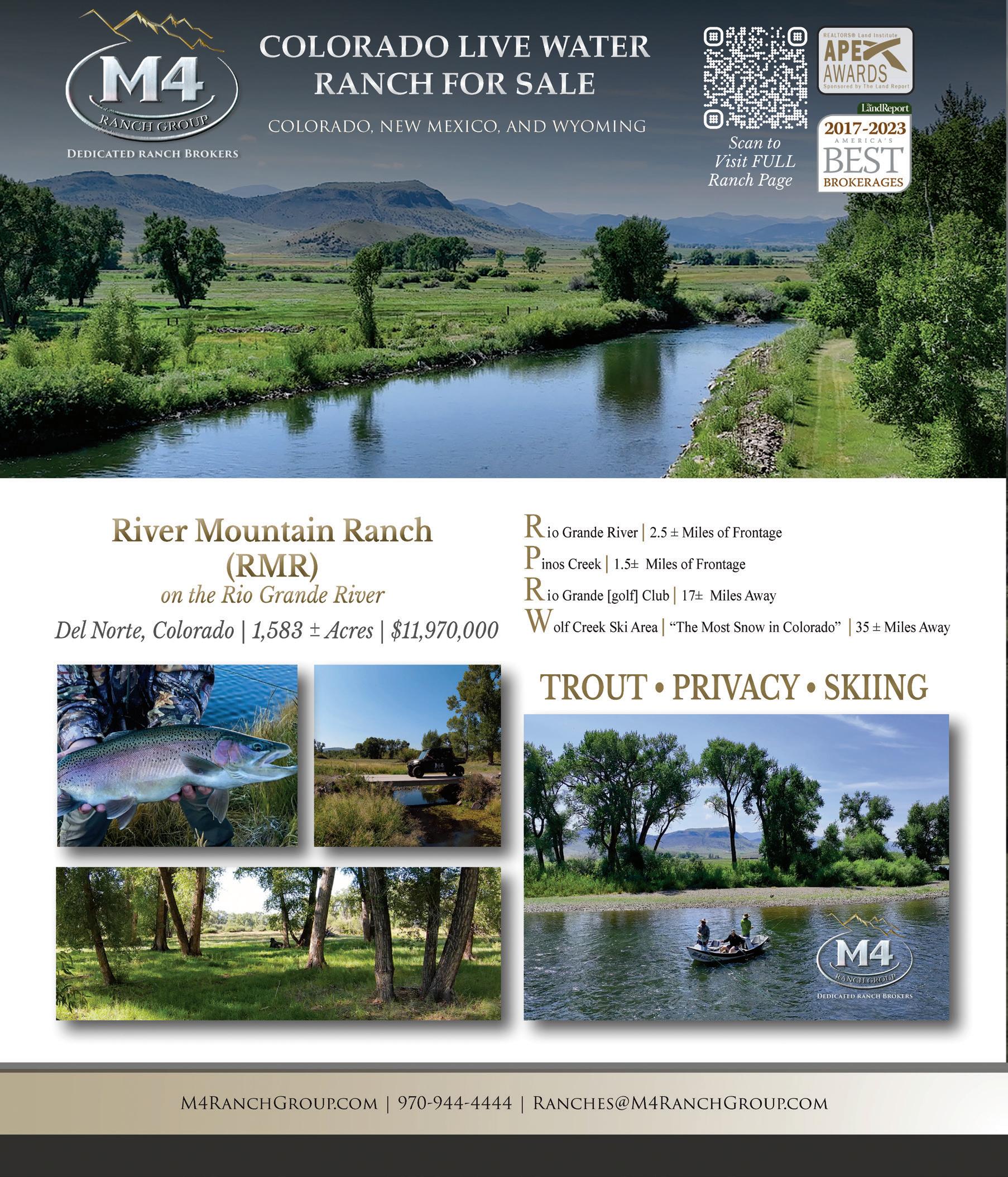
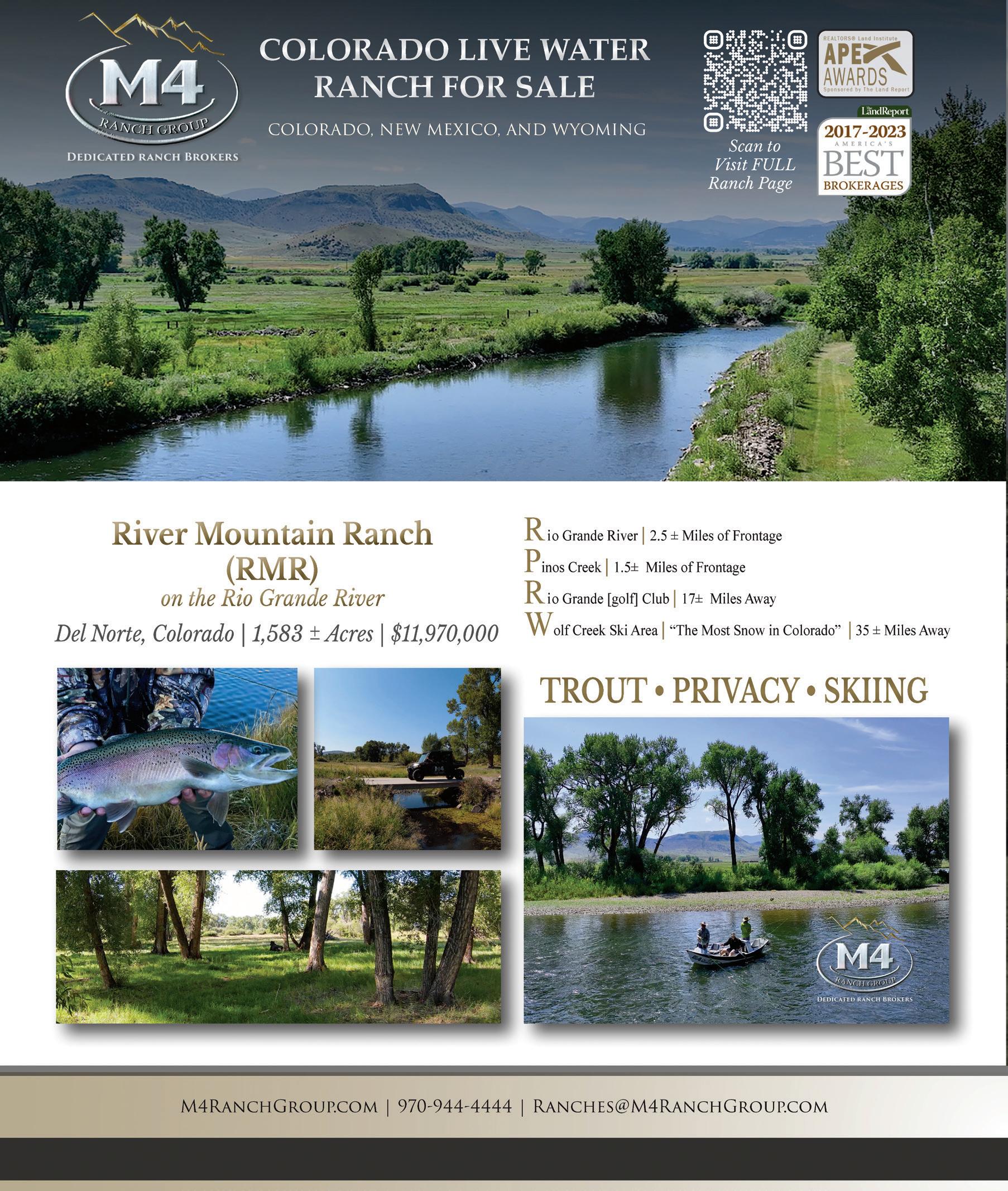
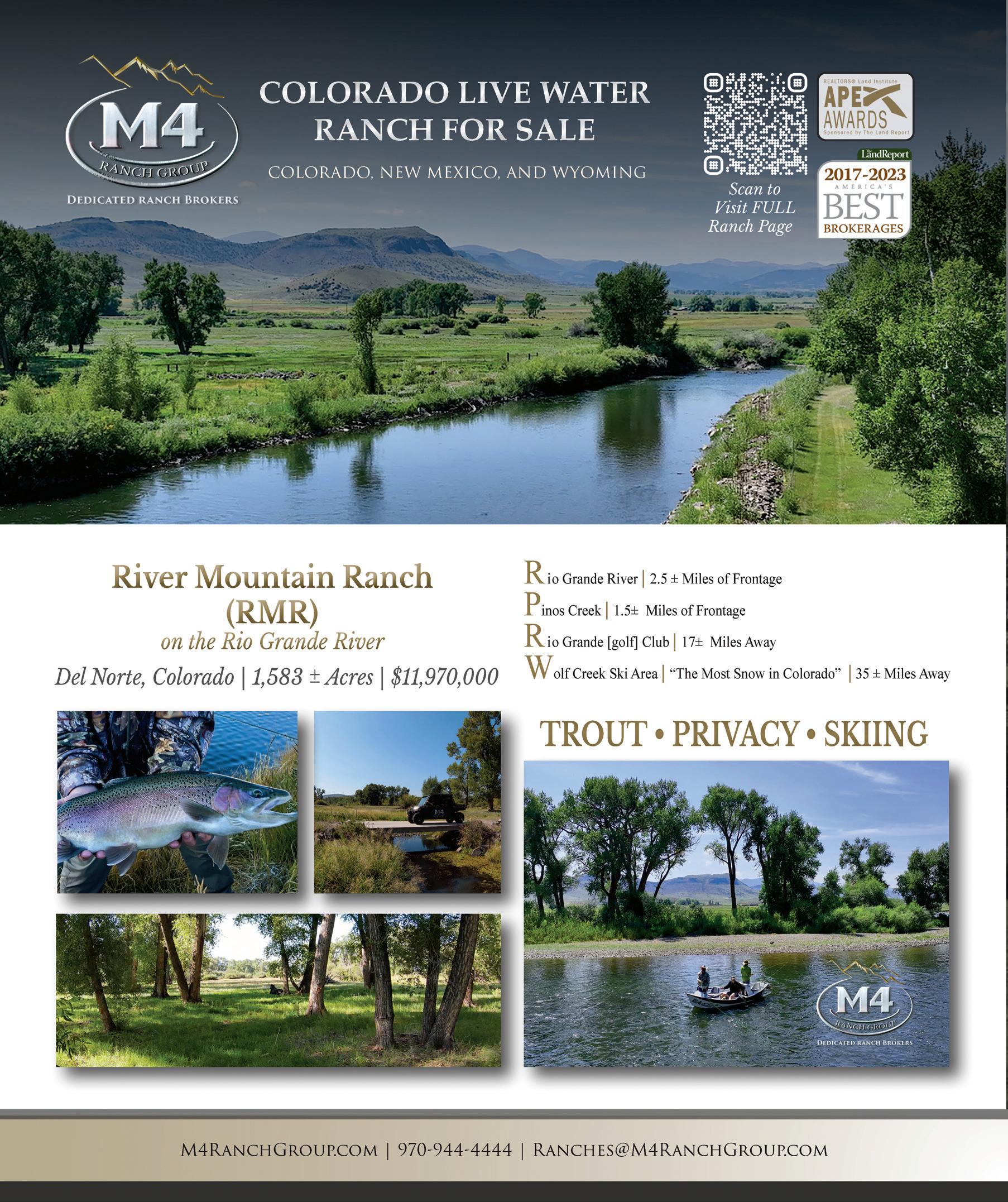
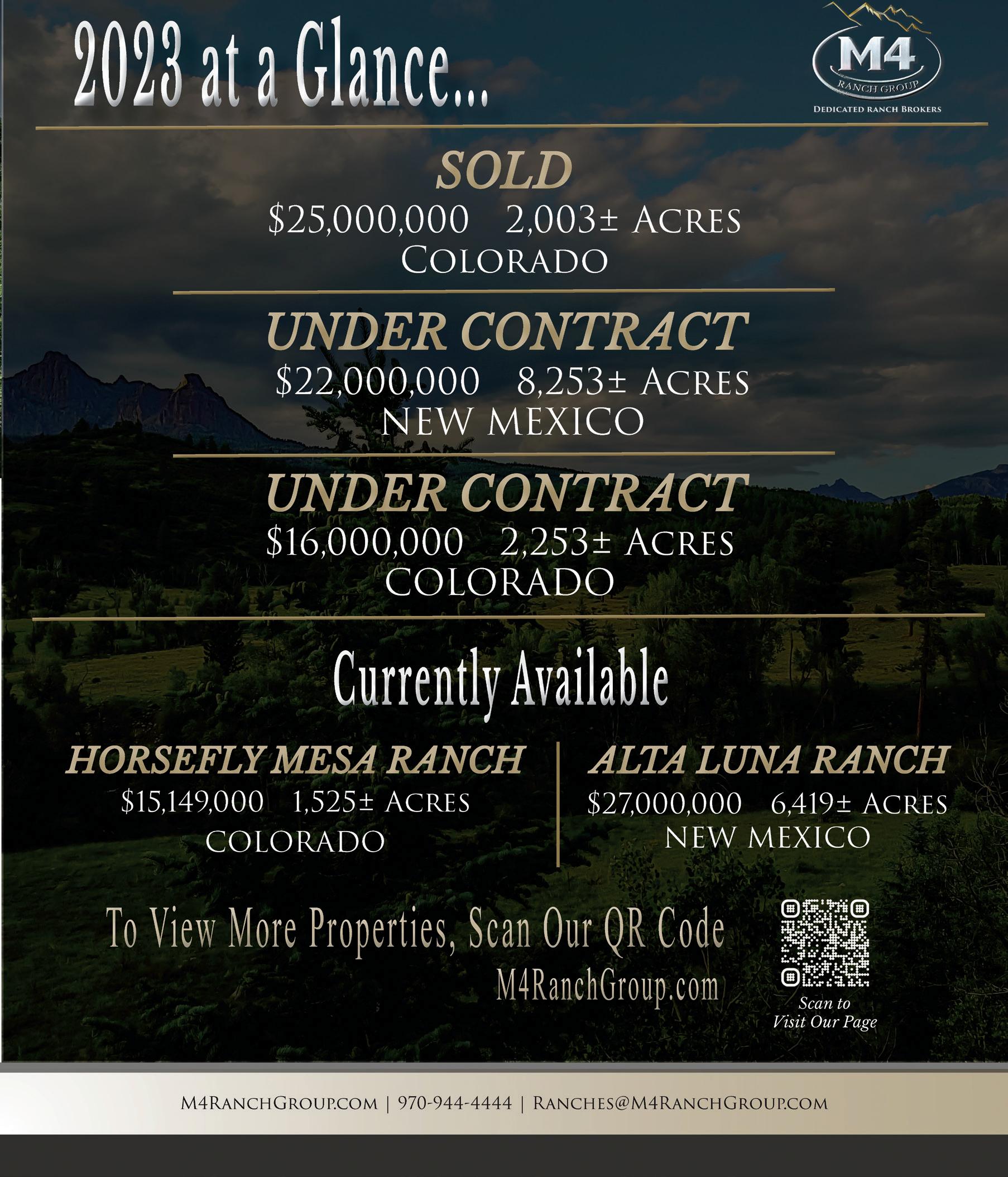
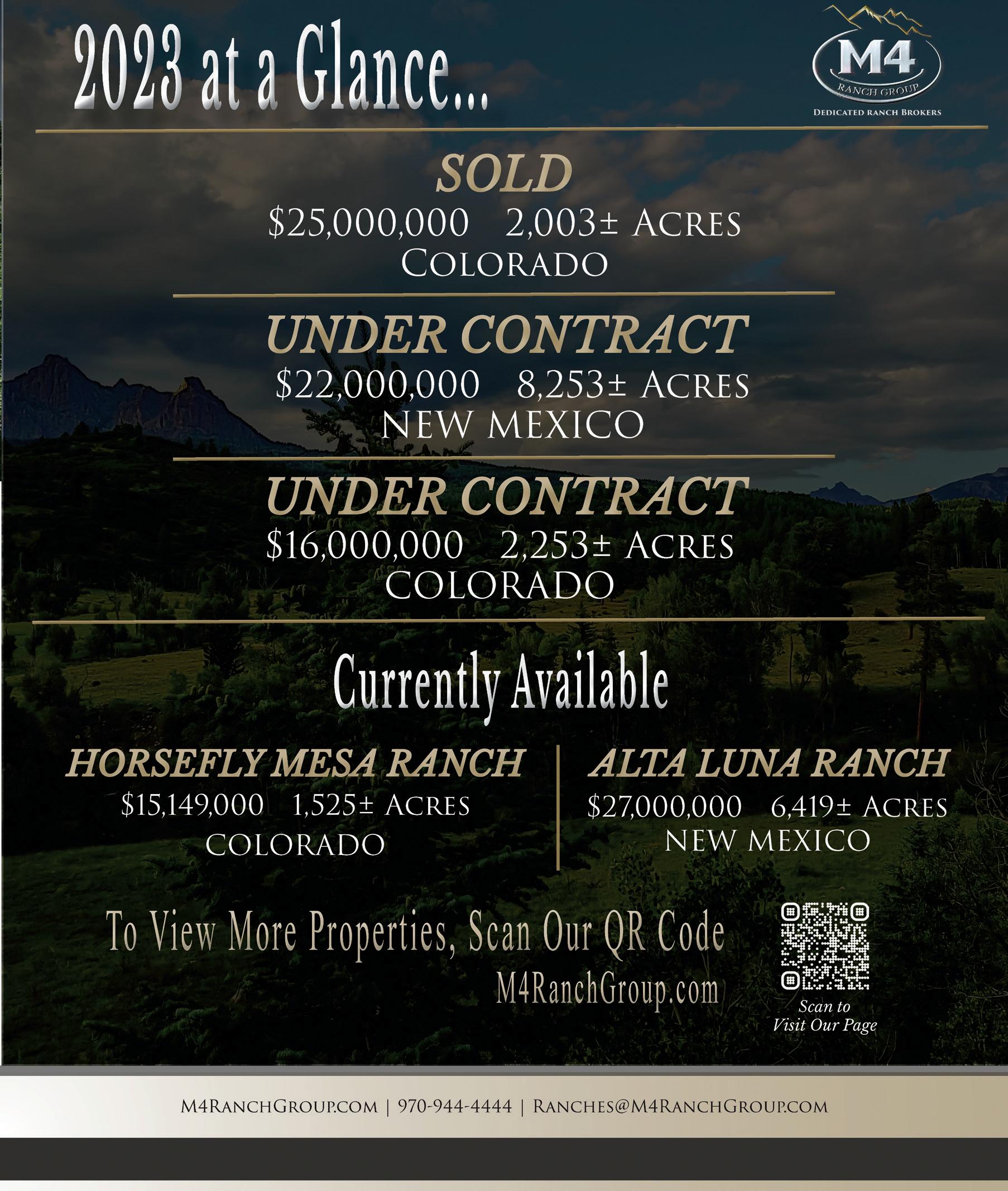
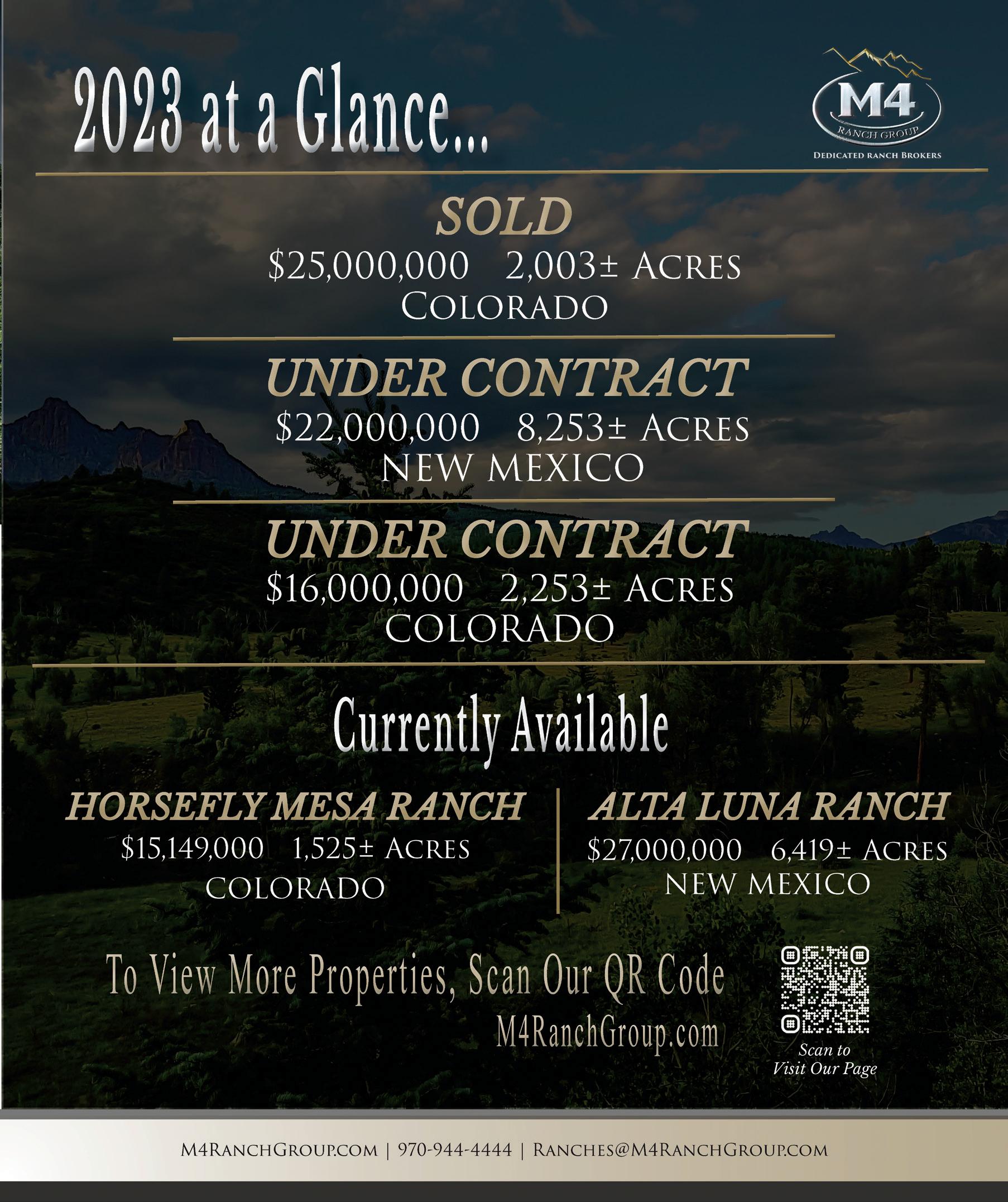
Over 140 listings available at CaliforniaOutdoorProperties.com Property Videos

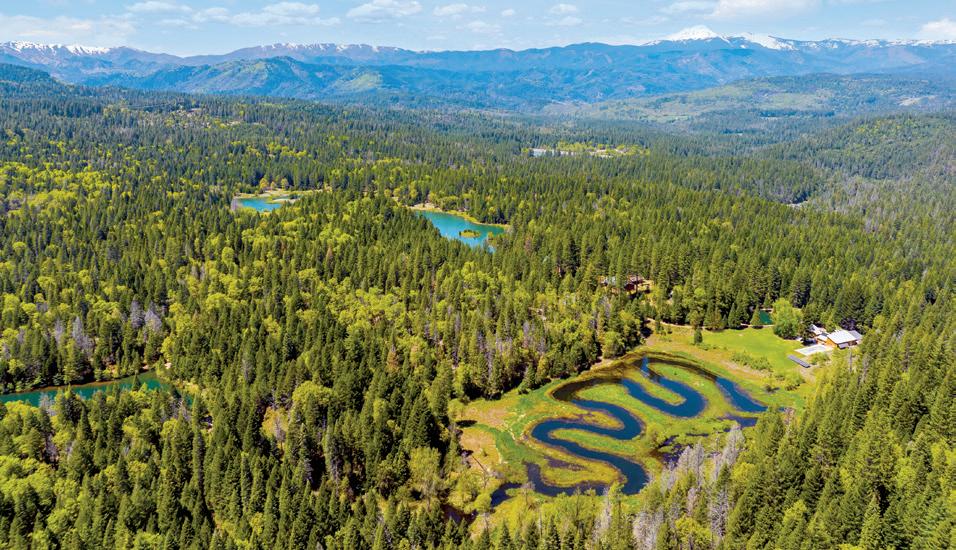
Property ID: 17135635 | $6,250,000
Welcome to a Northern California paradise where adventure and tranquility combine into one magnificent estate! What a rarity it is to find a property with such a unique ecology in California. The ranch is an excellent family compound complete with a sprawling 5,500 square-foot lodge, a primary residence, a guest cabin, a 4,000 square-foot shop, and a 75 feet pool and spa. What truly sets this property apart is the abundance of outdoor recreation opportunities it offers. With four mountain lakes and nearly a half mile of spring-fed meadow creek and the property’s expansive acreage, the recreational activities are endless. Hayes Springs Ranch is currently run as a commercial fly-fishing lodge but can be used as a family retreat, corporate retreat, or private residence. It is located only four hours from Reno, Sacramento, and the Bay Bridge. Listing Agents: Todd Renfrew 707-455-4444
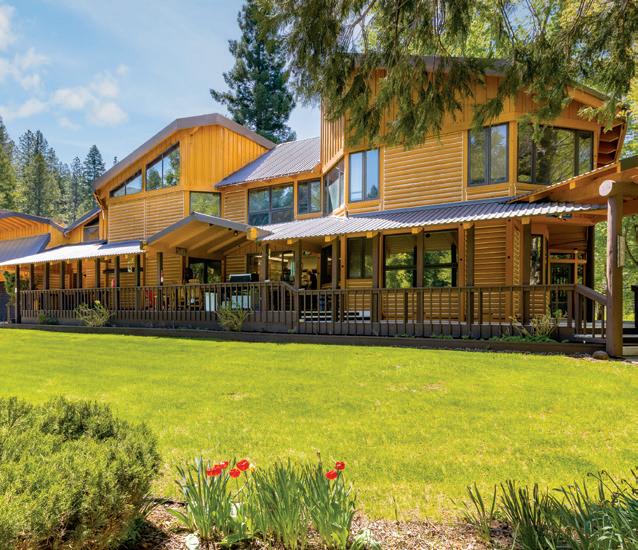
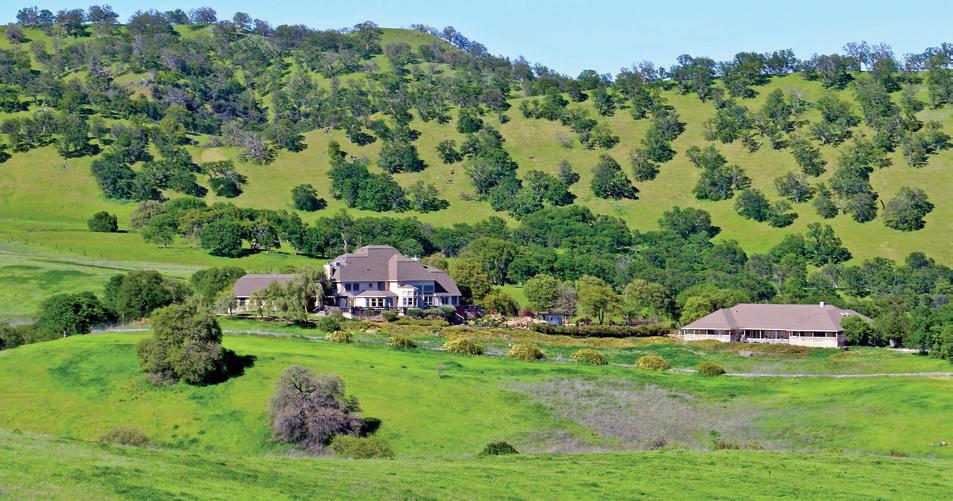
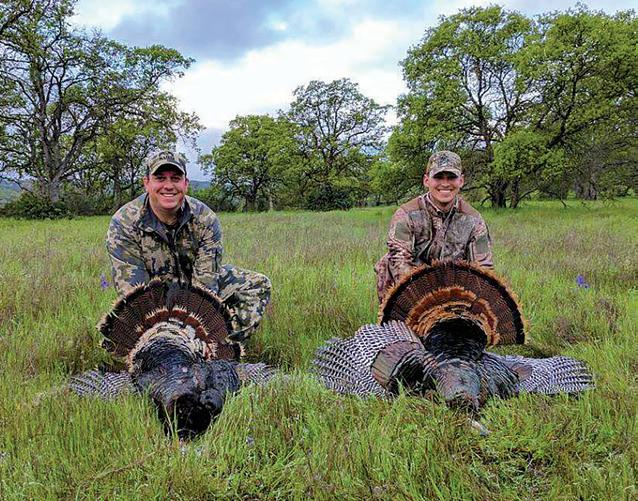
Property ID: 17215201 | $14,950,000
The 9,493-acre Buckeye Creek Ranch is a world-class recreational facility! Located only twenty minutes from Cache Creek Casino Resort, one hour from Sacramento, and two hours from San Francisco, the ranch is in a prime location. Currently, the property is leased out for hunting and cattle. The recreational pursuits are endless. Trophy black tail, wild hogs, deer, dove, quail, fox, coyote, black bear, and wild turkey roam the property. For anglers, there is a pond planted with various fish. Hunt, fish, hike, camp, swim, horseback ride, round up cattle, or just relax and enjoy the views. Improvements on the ranch include a 7,000 square-foot home and a 4,000 square-foot lodge, both designed for grand entertaining and positioned to take in the wonderful valley and rolling hill views. From the multiple recreational opportunities to the grand amenities and private location, this property makes an excellent family compound or recreational retreat! Listing Agents: Todd Renfrew, Charlie Engs, or John Ward 707.455.4444
9,818 ± Acres in Monterey County Property ID: 17187077 | $25,500,000

1,100± Acres in San Diego County, California
Property ID: 16609778 | $10,950,000
131.4± Acres in Yolo County, California
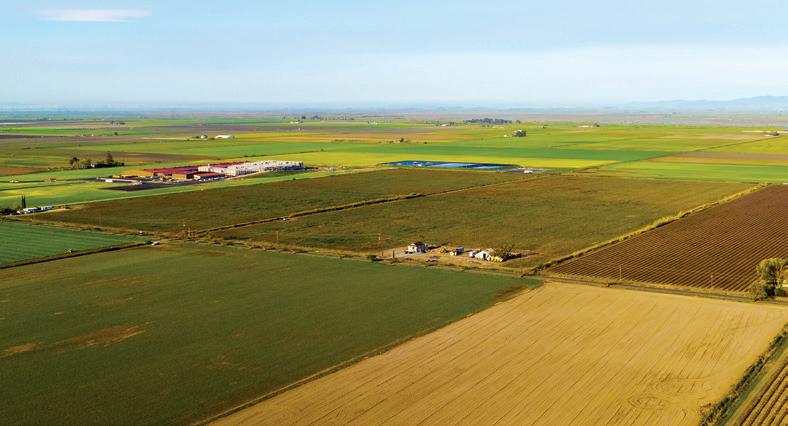
Property ID: 16926080 | $4,847,000
1,311± Acres in Tehama County, California
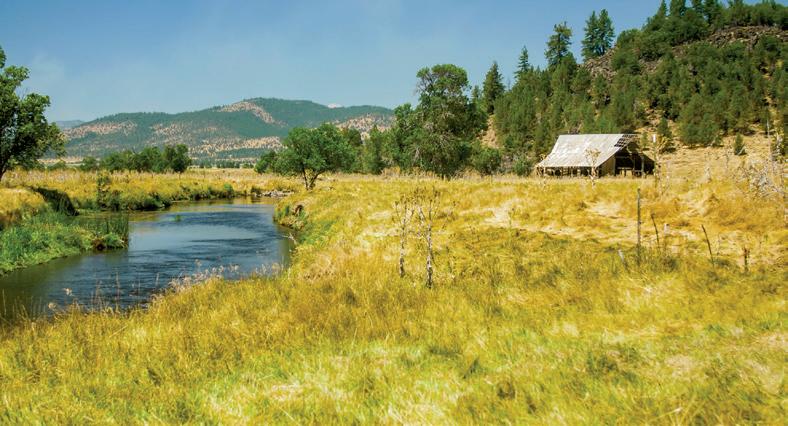
Property ID: 16926079 | $4,750,000
3,852.93± Acres in San Luis Obispo County, California
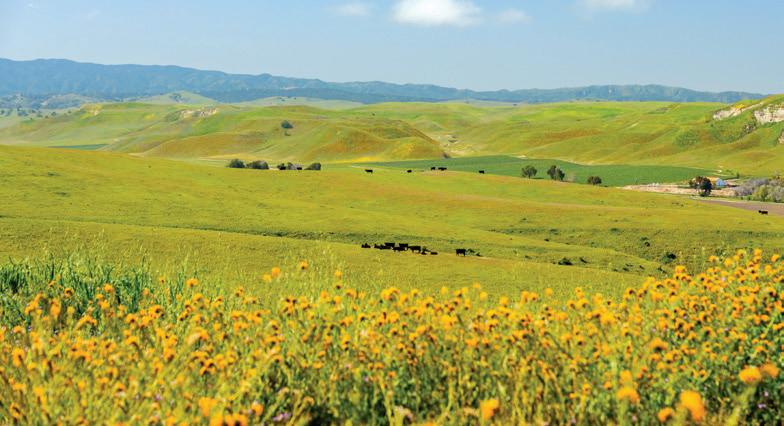
Property ID: 17076491 | $4,095,000
160± Acres in Mendocino County, California
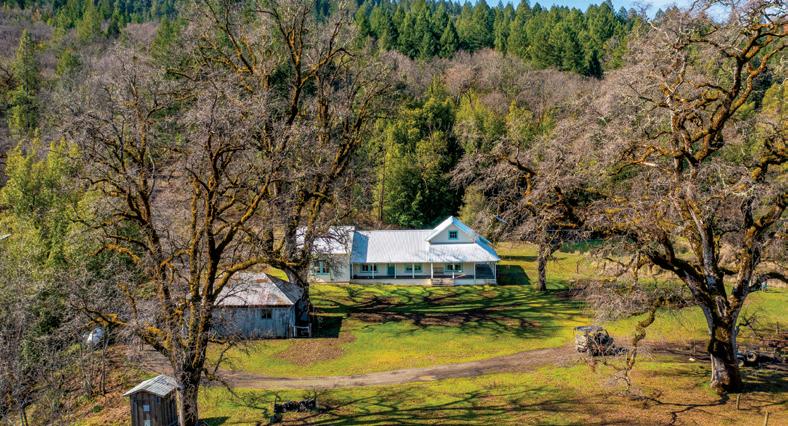
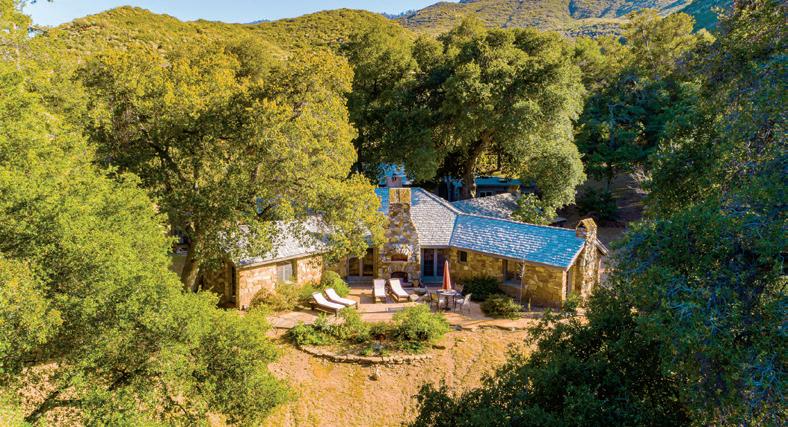
Property ID: 16320758 | $1,890,000
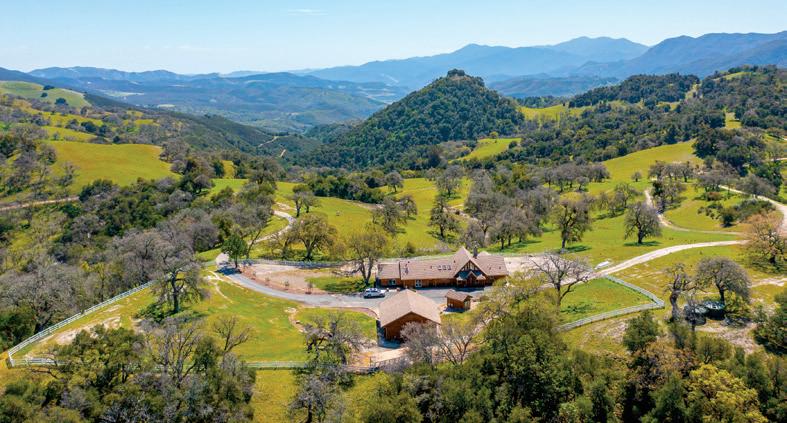
acres
run over
operation with a capacity of around 400 head, Los Robles Ranch boasts numerous springs
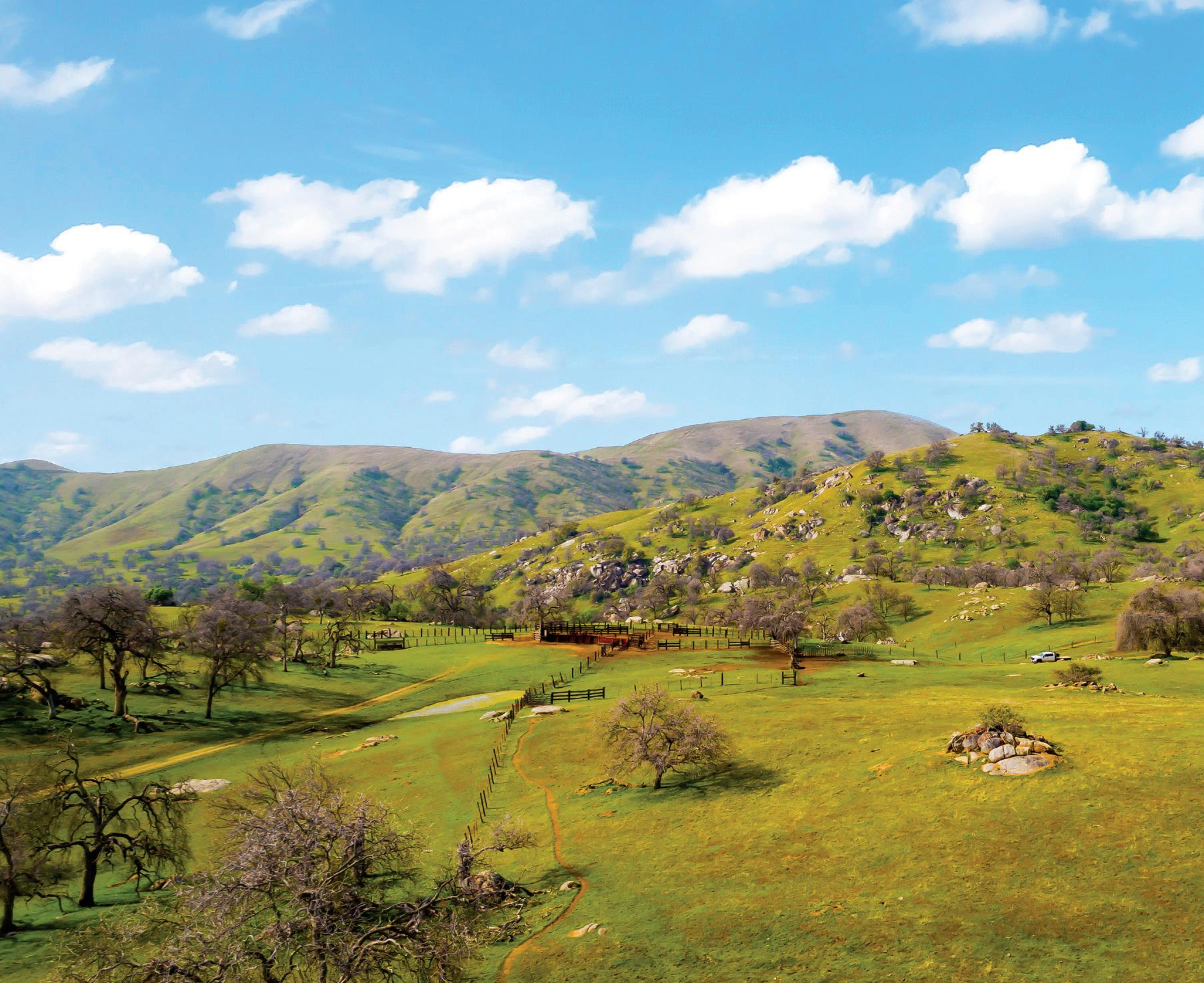
water. Property ID: 16495434

$8,350,000
8,525± acres
Shandon, California.
San Luis Obispo & Kern Counties
Escape to the historic Pritchard Sumner Ranch in the great wide-open space of Bitterwater Canyon and Yeguas Mountains! First homesteaded in the 1860s, the 8,525± acre Pritchard Sumner Ranch is rich with history and now available for purchase for the first time in over 150 years. Ideal for hunting/recreational compound and/or cattle ranch and improved with a freshly remodeled ranch-style home, barns, historic buildings, juniper trees and a variety of wildlife. Property ID: 7285240

$5,250,000
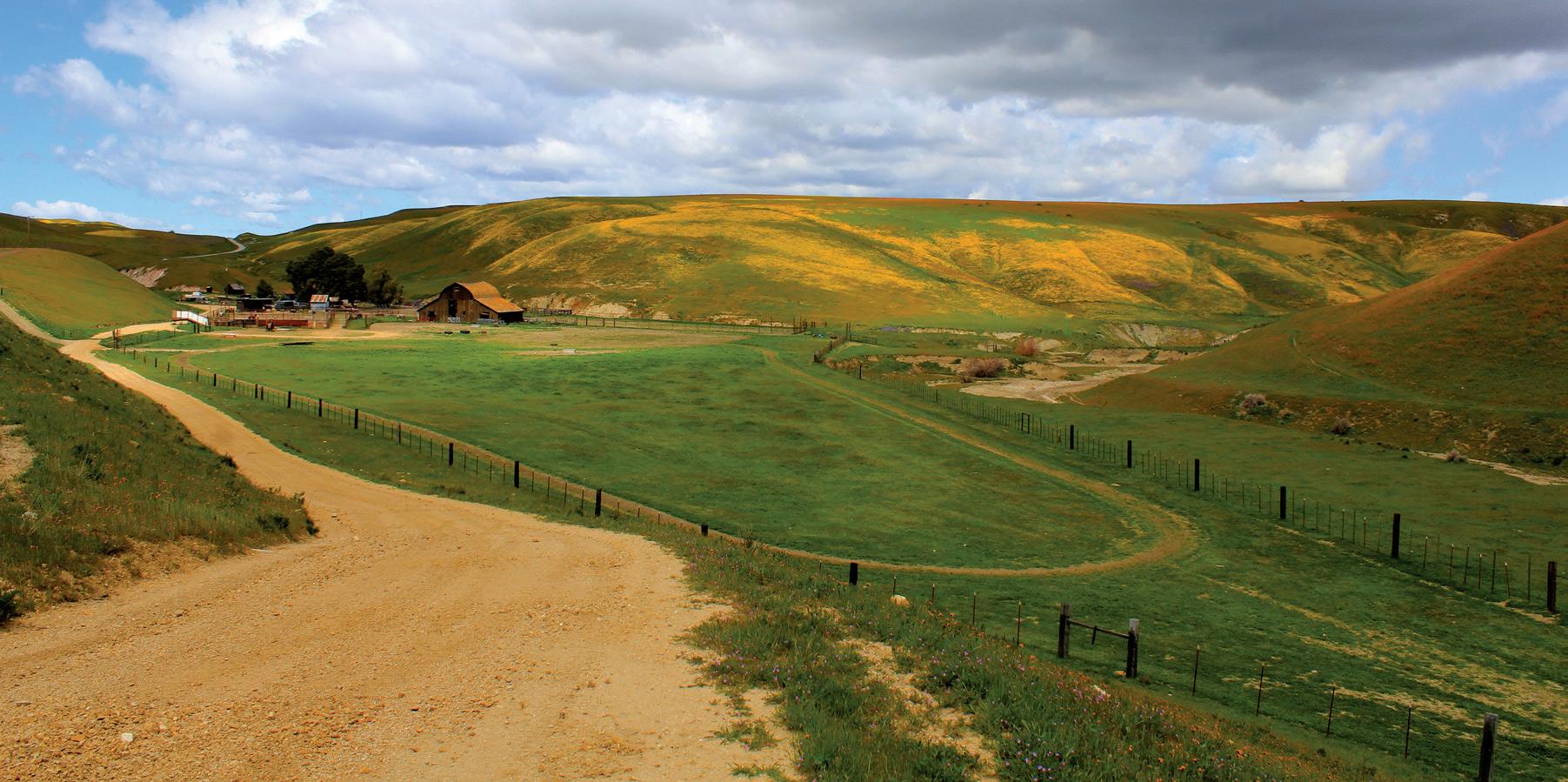
948± acres
Paradise Valley, Nevada Humboldt County
The beautiful Santa Rosa Meadows Ranch rests in the shadow of the mountains and boasts magnificent views. Positioned outside of historic Paradise Valley, Nevada, Santa Rosa Meadows Ranch, comprising 948± acres, is a true oasis. Benefiting from more than six wells, Santa Rosa Meadows Ranch enjoys generous water rights and is presently utilized as a cattle ranch, supporting 300-500 head of cattle. Furthermore, there are 521± acres irrigated (flood and pivot) planted to pasture grass. Property ID: 1322394 8
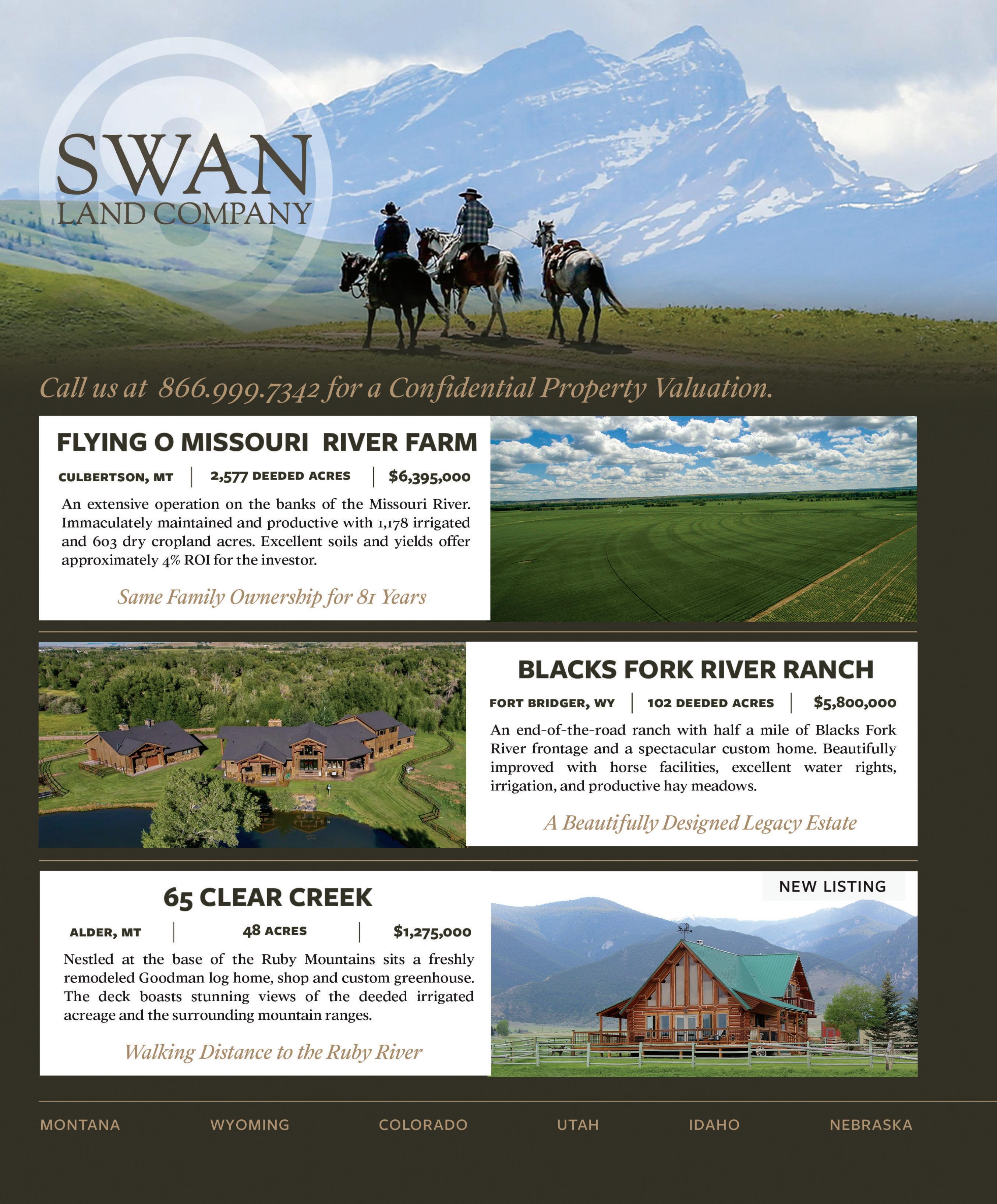
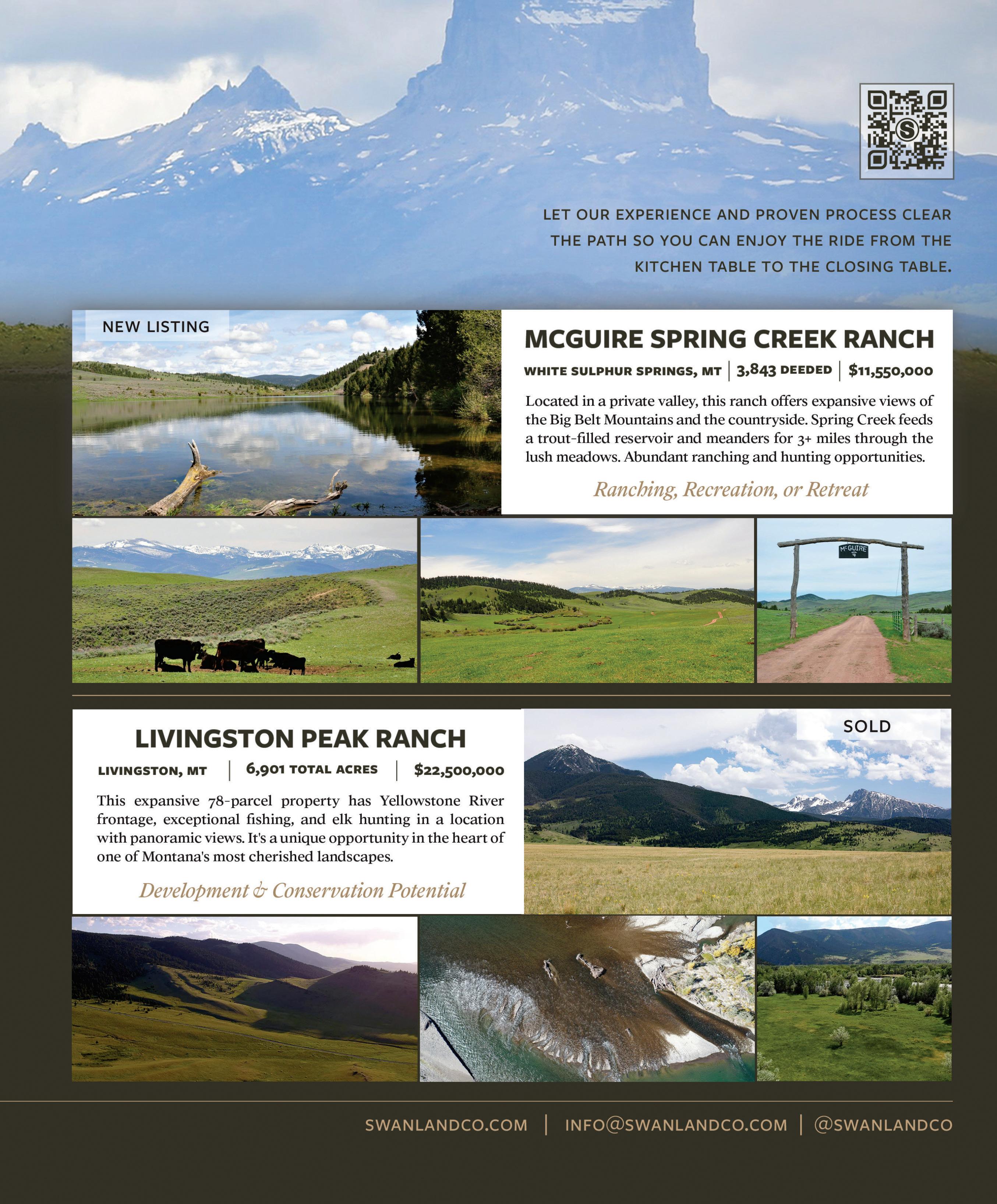
1,429± Deeded Acres in San Miguel County, Colorado
The Yalgo Ranch represents one of the few remaining intact larger holdings in the immediate Telluride area. The ranch sits upon the coveted Specie Mesa with majestic views of the San Juan Mountain Range. The property is a combination of flat-top mesas, large aspen groves, ponderosa pines, high mountain meadows, springs, seeps, and creek drainage. There is approximately a quarter mile of Fall Creek frontage and 2.25 miles of National Forest, BLM, and State Land adjacency. The ranch has incredible panoramic mountain views, unlimited recreational opportunities, and unrivaled privacy. Contact Mike McGarry.
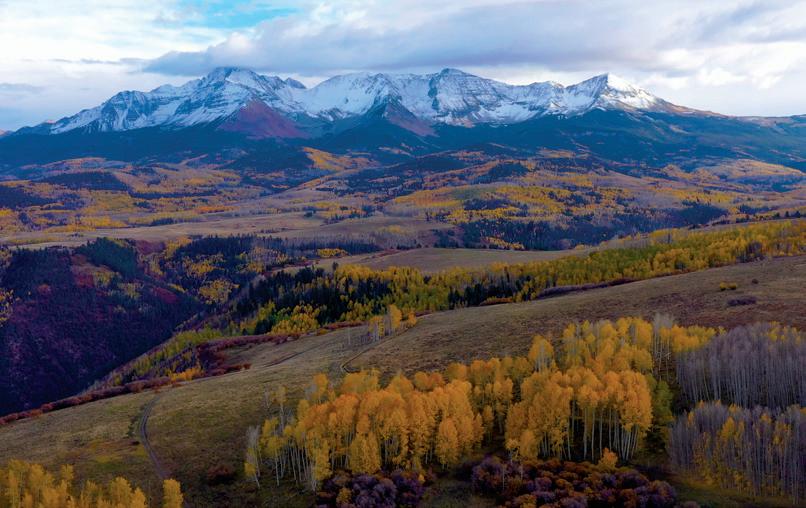
$28,000,000
Property ID: 16192102
566± Deeded Acres in Las Animas County, Colorado
Bonito Canyon Ranch features an 8,500-square-foot, Three-bedroom, four-bath luxury log home constructed by Pioneer Log Homes of British Columbia. Bonito Canyon is surrounded by large, world-renowned hunting properties such as Ted Turner’s Vermejo Park, Hill, Tercio, and nearby Bar NI Ranches and other well-managed trophy hunting properties ensuring the ability to employ excellent resource and game management practices with like-minded neighbors. Contact Jeff Hubbard or Pat Lancaster.
$7,495,000
Property ID: 15212509
370± Deeded Acres in Grand County, Colorado
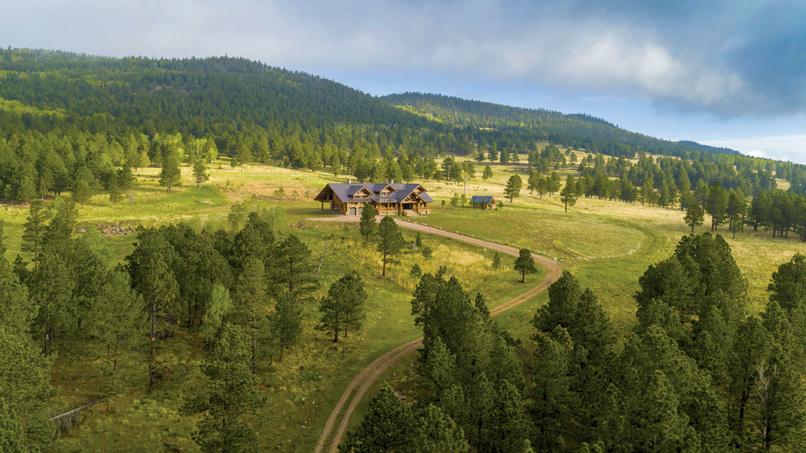
Set along the Williams Fork River in desirable Grand County, Colorado, is the Aspen Canyon Ranch. With a completely renovated home overlooking over a mile of freestone river frontage, the property offers incredible sporting opportunities including excellent fly-fishing, trophy hunting for deer and elk, and infinite recreation on the property and the adjoining public lands. Contact Pat Lancaster or Jeff Hubbard.
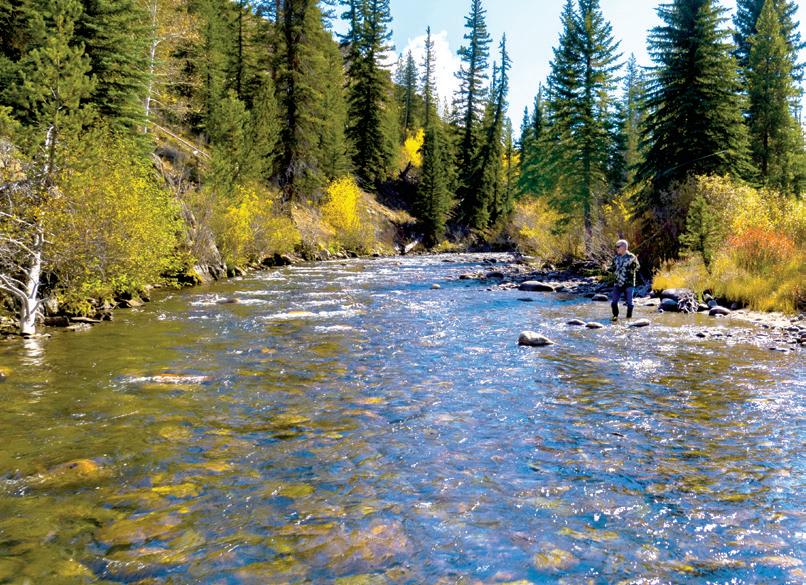
$3,500,000
Property ID: 15882280
20± Deeded Acres in Platte County, Wyoming
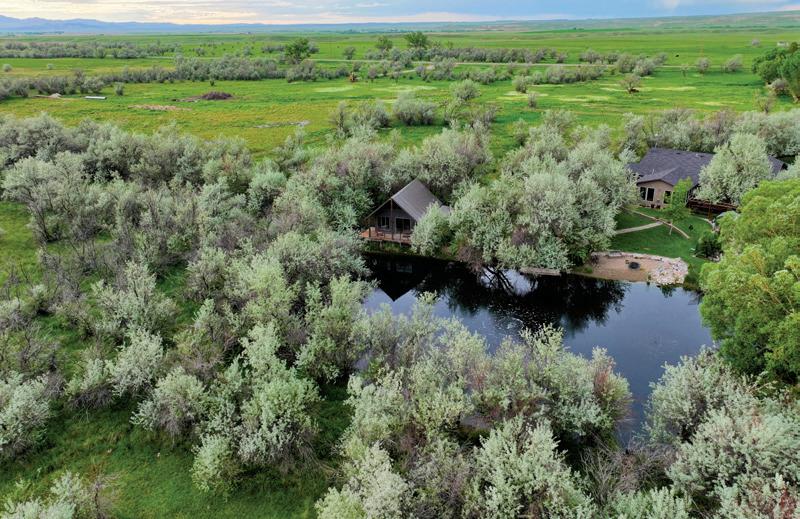
Tucked secretly away in an oasis of lush landscaping and canopying trees just minutes from town is the Alley Oasis. With a lush riparian corridor and water rights, the property offers an immaculate, custom-built two-bedroom, two-bath 2,054 square-foot single-level residence fronting a pond and a 360 square-foot guest cabin overlooks this incredible nature-inspired space. This property is frequented by deer, a wide variety of birds, and waterfowl, with a tremendous amount of privacy and tranquility just minutes from town. Contact Jared Souza.
$1,075,000
Property ID: 17231029
9,305± Deeded Acres in Moffat County, Colorado
An ecological and geological jewel, Lily Park Ranch, lies near Cross Mountain and the entrance to the Dinosaur National Monument. The ranch is a hunter’s paradise at the confluence of the Yampa River and the Snake River and is home to one of the largest migratory elk herds in North America. Cross Mountain towers above the irrigated fields and pastures of the ranch. The ranch consists of 9,305 deeded acres that adjoin and are intermixed with over 35,000 acres of Bureau of Land Management and State land, on which they hold grazing permits for sheep and cattle. Contact Ken Mirr.
$8,750,000
Property ID: 17231344
843± Deeded Acres in Grand County, Utah
Situated in eastern Utah and bordering Colorado, the Picture Gallery Ranch offers a private sanctuary with 365-degree views of Utah’s iconic landscape, including the La Sal Mountain range to the south. The ranch compound sits at the southern end of a spectacular 100-acre meadow ideal for viewing early morning and late evening wildlife. Populations of elk and mule deer visit the ranch, which is surrounded by vast stretches of public land. The ranch is a five hours drive from Salt Lake City and approximately 45 minutes from Grand Junction. Contact Mike McGarry or Chris Corroon.
$2,950,000
Property ID: 17231353
2,700 ± Deeded Acres in Huerfano County, Colorado
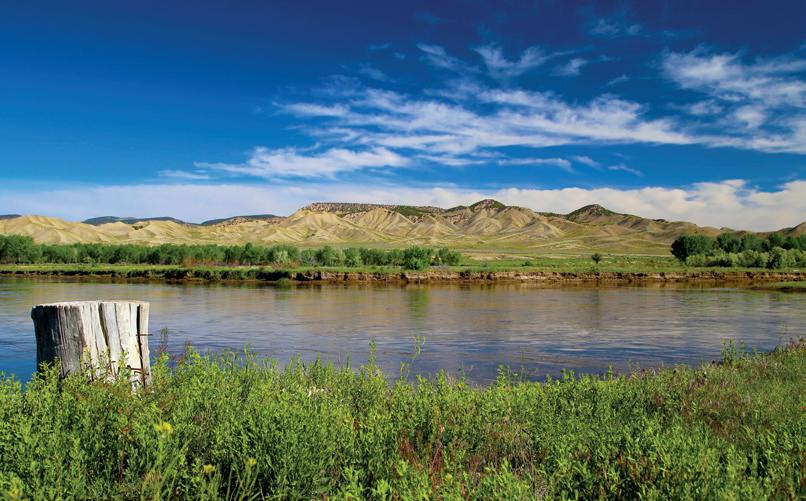
Nestled against the stunning backdrop of southern Colorado’s Spanish Peaks and the Sangre de Cristo Mountains lies Arena Ranch. The 3,340 total acre ranch (2,700 deeded, 640 state lease) is complete with a beautiful custom log home, equine facilities, and room to roam, all within a few minutes of La Veta, Colorado and easy access to front-range cities. Contact Jeff Hubbard or Pat Lancaster.
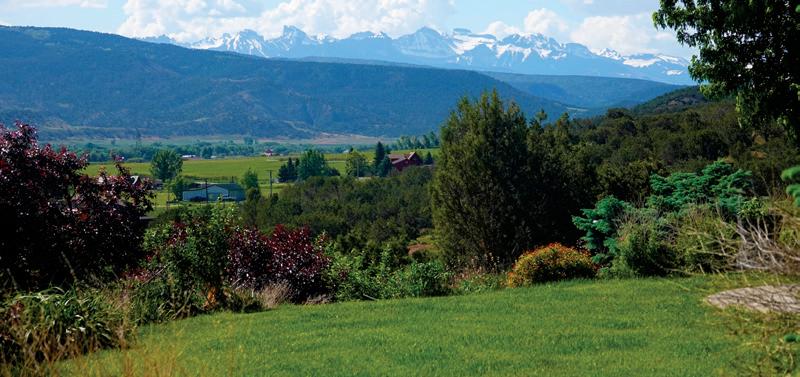
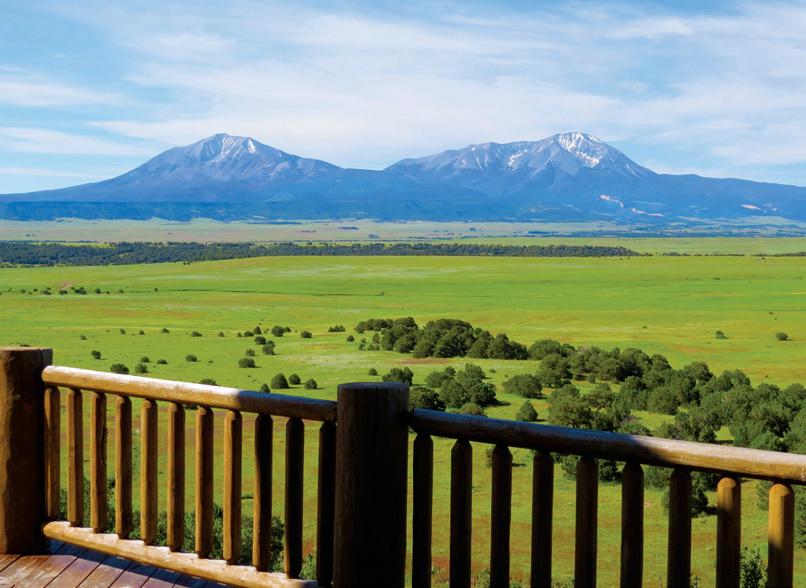
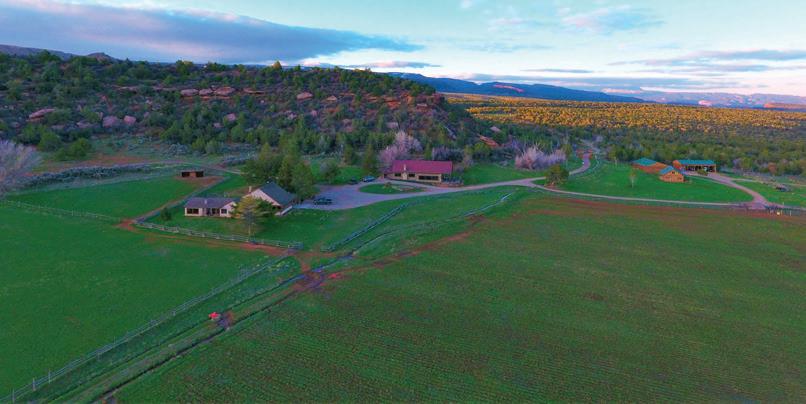
$8,950,000
Property ID: 17231368
116± Deeded Acres in Montrose County, Colorado
Perched upon the edge of the lush Uncompahgre River Valley between Montrose and Telluride Colorado, the Rocking R Ranch is a great opportunity to live out the Western lifestyle while being close to town and a world-class resort community. This 116-acre holding offers end-of-the-road privacy, public lands adjacency, majestic San Juan Mountain views, hunting, grazing, hay production, a gorgeous main home, guest home, tiny home, shop, barns, and a first-class roping facility. The Rocking R Ranch is a rare opportunity to own a turn-key western lifestyle property with great proximity to amenities and the iconic resort community of Telluride. Contact Mike McGarry.
$3,400,000
Property ID: 17231364
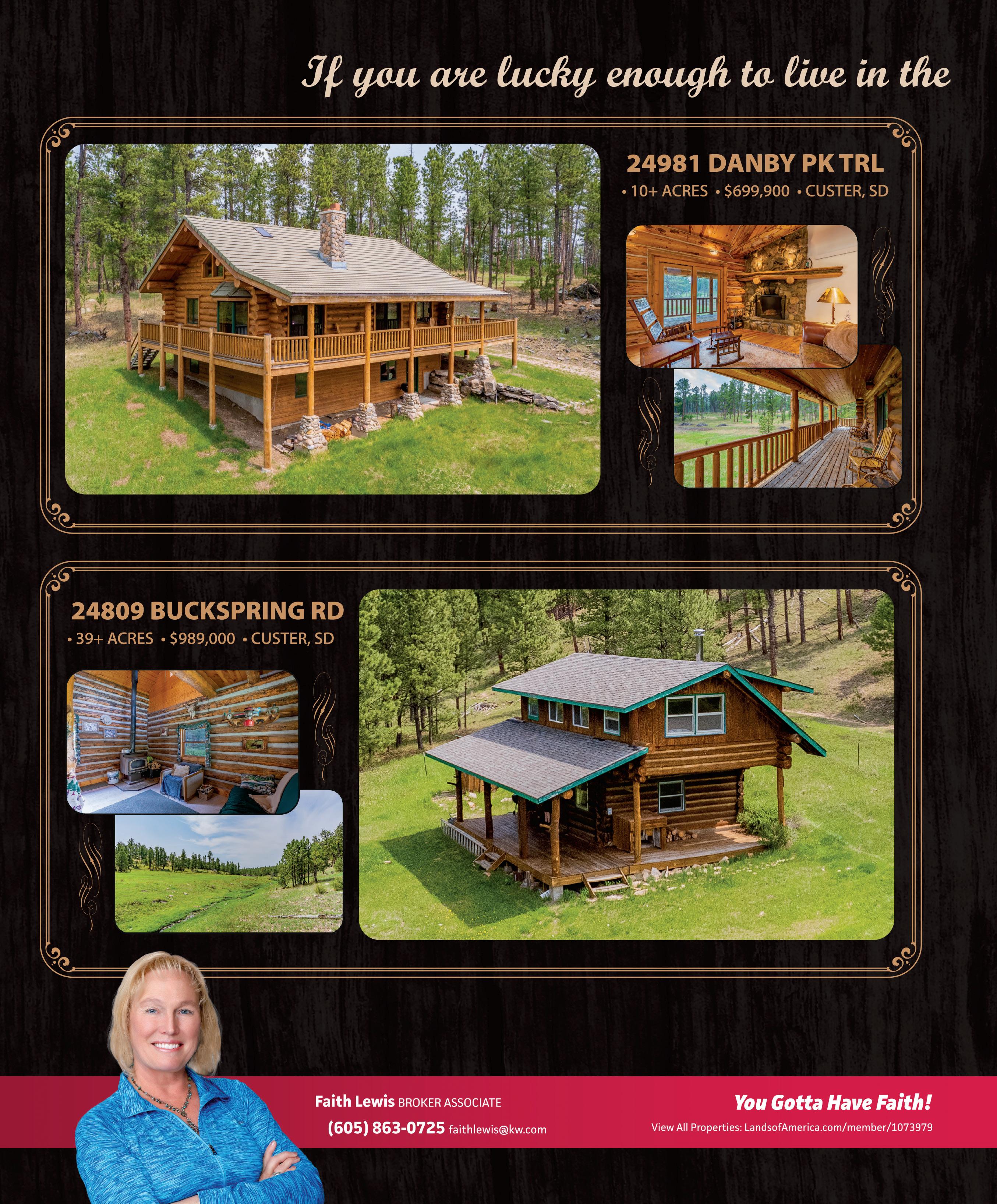
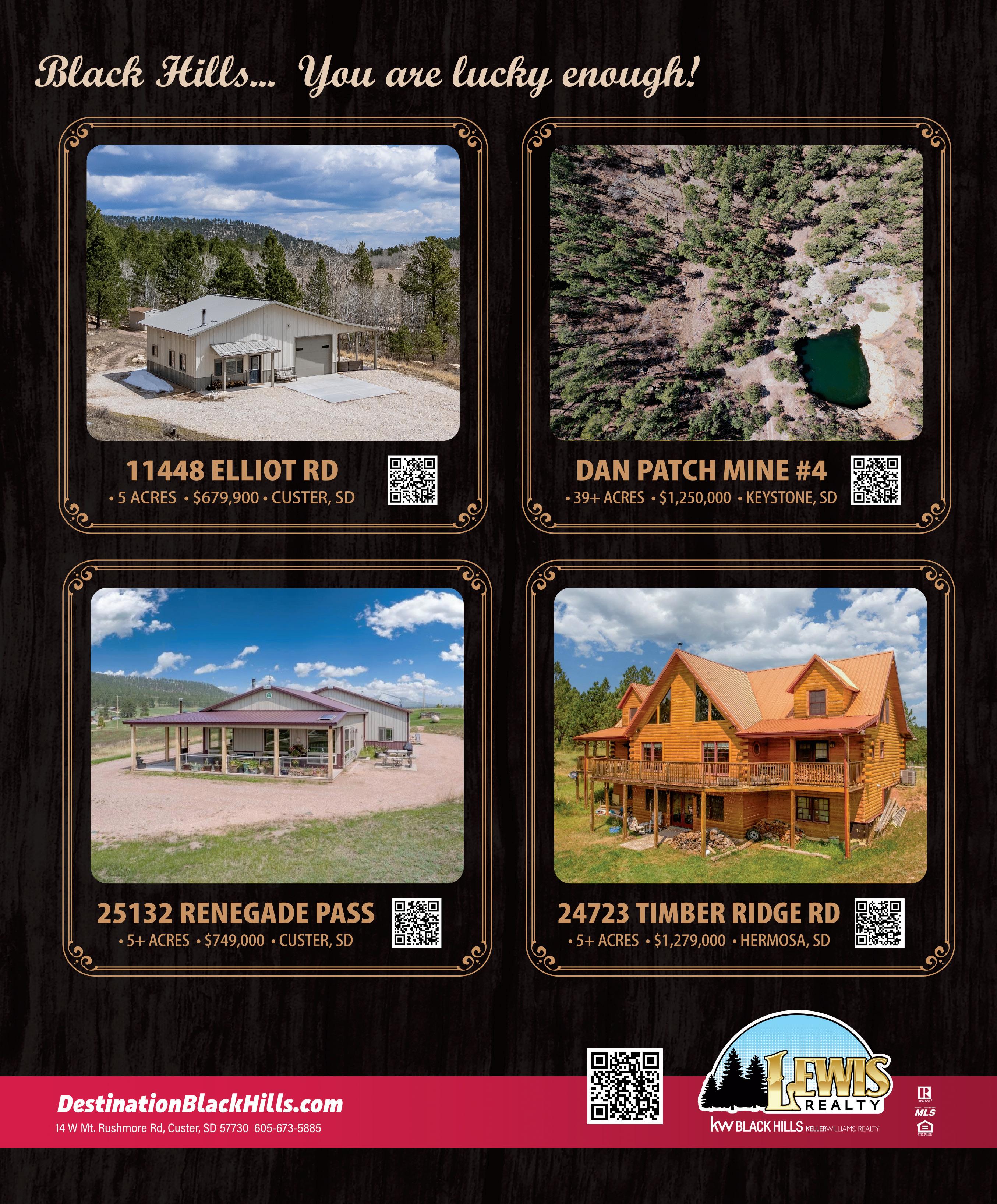
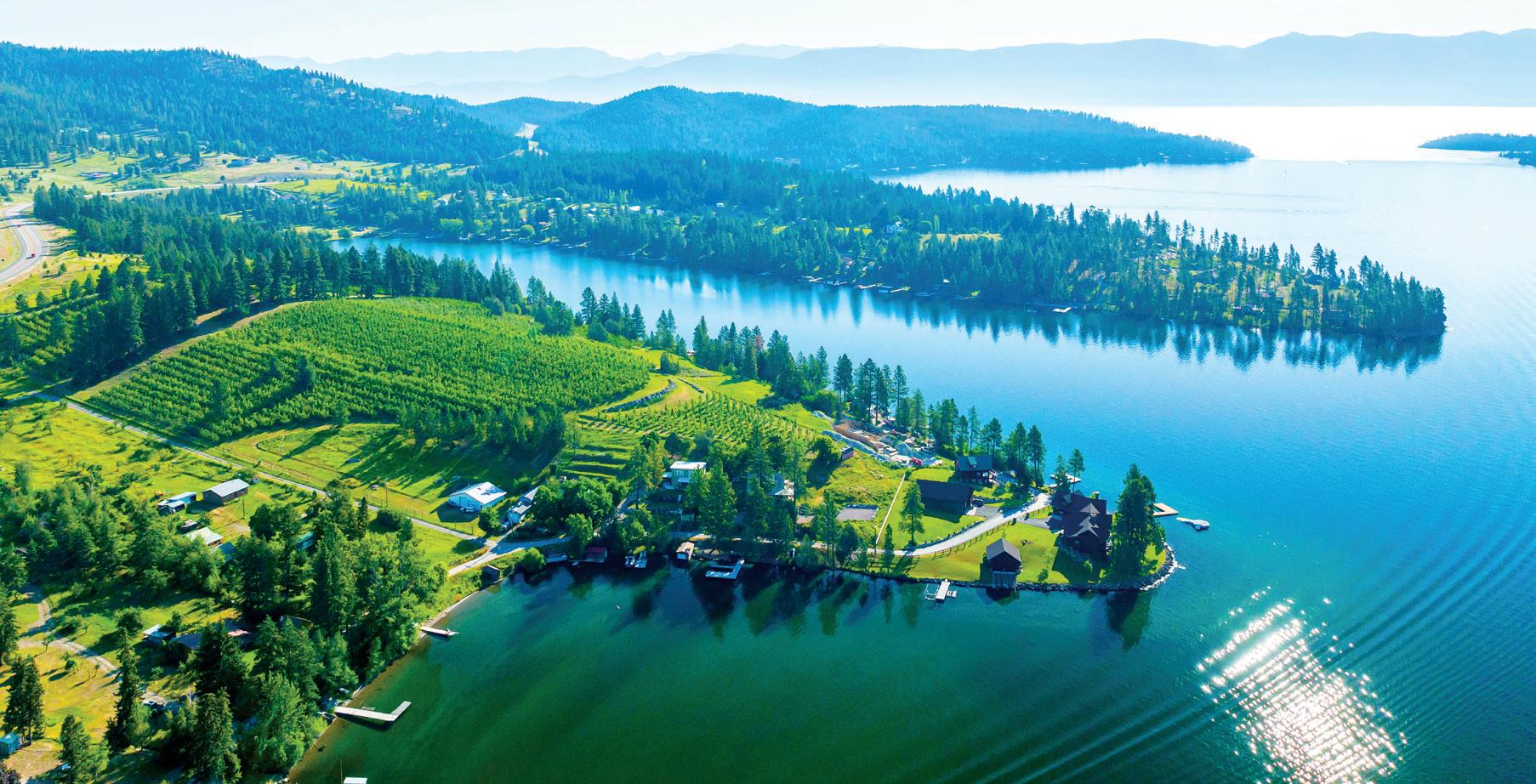
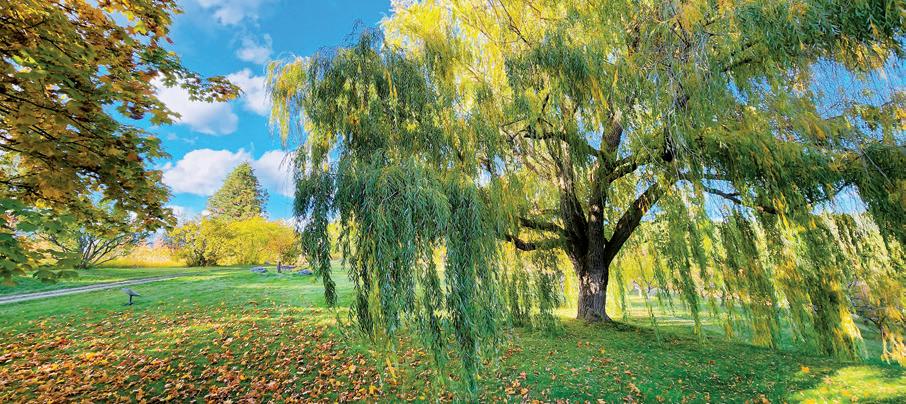
22+ ACRES IN ROLLINS, MONTANA
22246 US HIGHWAY 93
$7,500,000
Exceptionally scenic property (ten parcels) with layered views of bays, islands, the open lake and the high Mission Mountains. 171 feet of calm water Flathead Lake frontage includes a dock protected from large waves and an exquisite beach swimming spot. This profitable orchard enjoys three water rights for irrigation from Flathead Lake. There’s also an existing home and multiple building sites with fantastic views for your own masterpiece from which to enjoy the lake and relax in your private Eden.

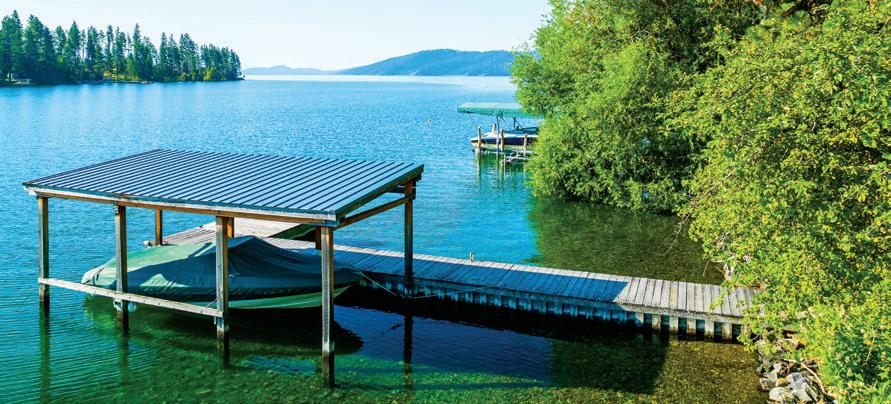
4.89 ACRES IN BIG FORK, MONTANA 23782 MT HIGHWAY 35, BIGFORK
$1,250,000
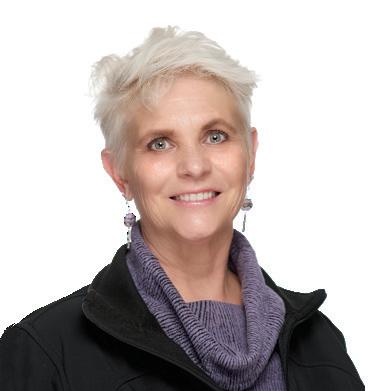
Flathead East Shore cherry orchard is right across from Yellow Bay State Park beaches, a boat ramp and a dock on Flathead Lake. Four-bed/twobath home with 2,569 square feet includes a lower-level guest apartment, fantastic lake views, and about 350 Lapin cherries in addition to some apples, walnuts, plums, and raspberries. MLS #30004684.
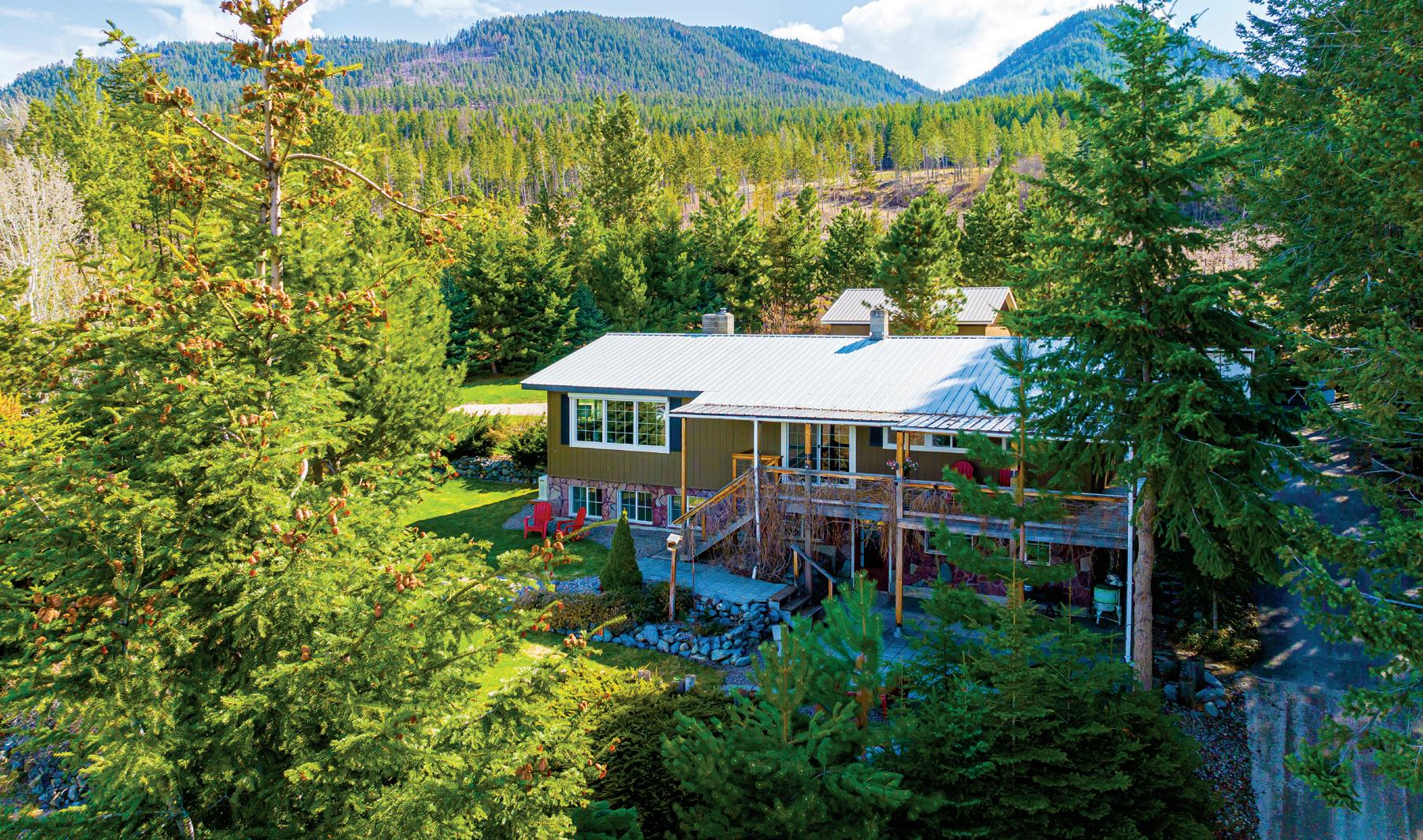
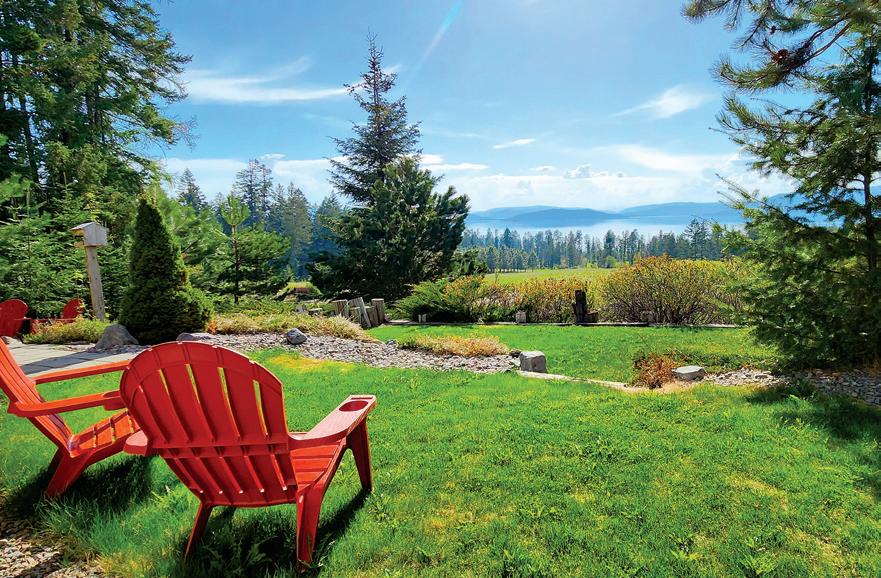
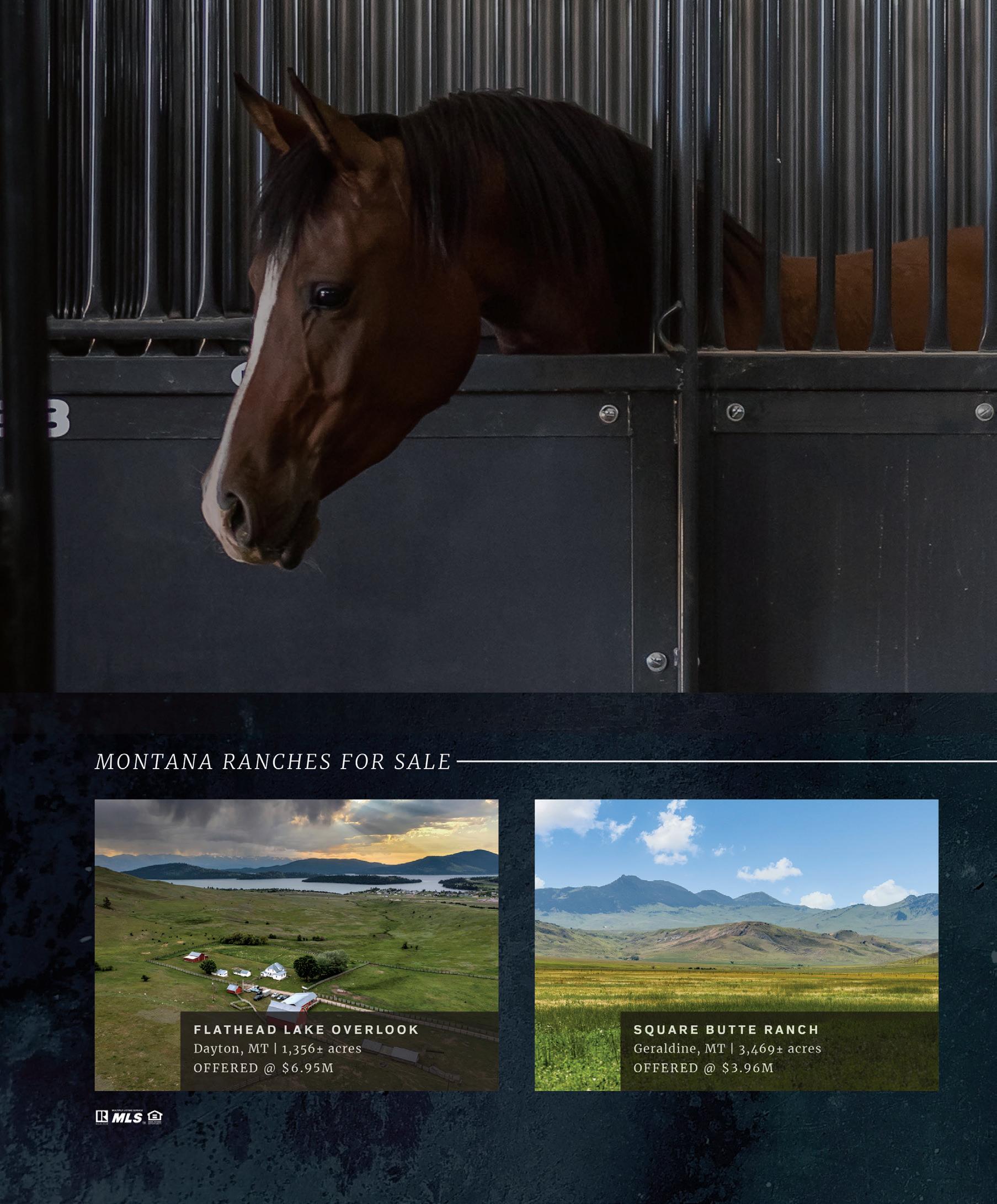
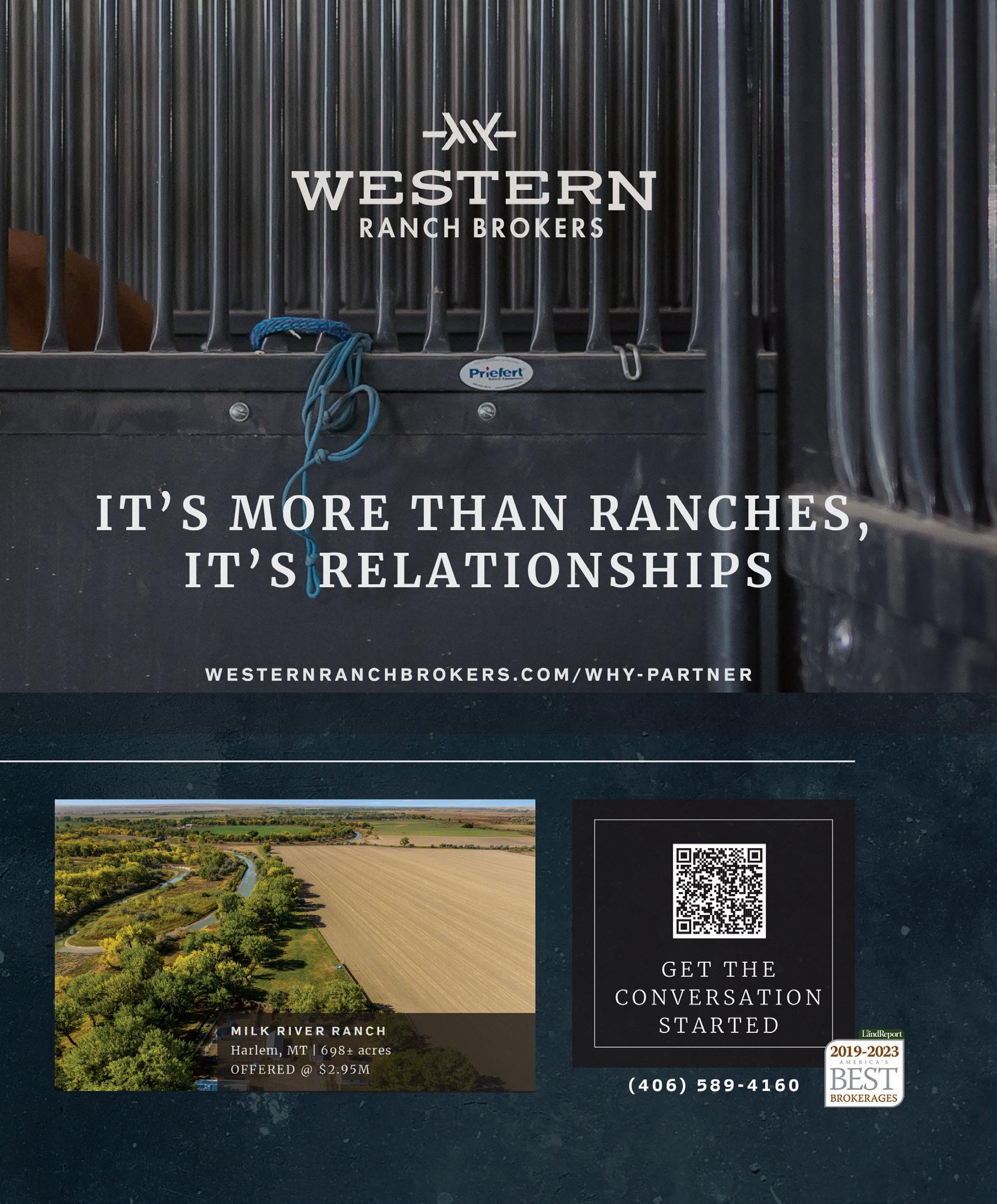
$2,790,000 #220150754
94 ACRES
POWELL BUTTE, OREGON | 79 Acres Central Oregon Irrigation Water Rights | Cascade Mountain views custom country home is a 3,187-square-foot single level, open floorplan, three beds, two-and-a-half baths. 2,880-square-foot shop with a studio, hay/equipment barn, and hay barn with feed bunk—fields planted in grass hay crop with new GPS pivots. 12512Cornett-PowellButteOR.com
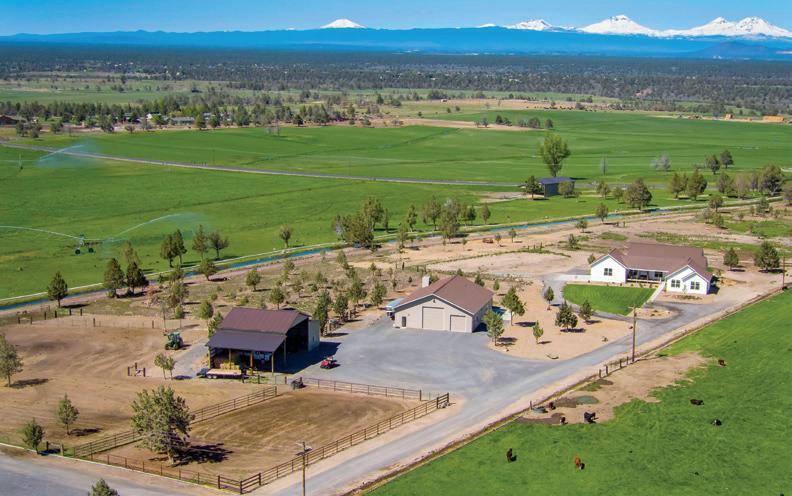
$24,470,750 #220112156
23,455 ACRES
PRINEVILLE, OREGON | The headwaters of the Crooked River. A year-round cattle ranch with exceptional water rights, recreational opportunities and quality livestock production. Headquarters includes homes, barns, shop, corrals and scales. The ranch includes 3,682± acres water rights for hay fields and meadow crops, 103,000± acres BLM grazing allotments, high desert, lakes, creeks, canyons and springs. SouthGIRanch-PrinevilleOregon.com
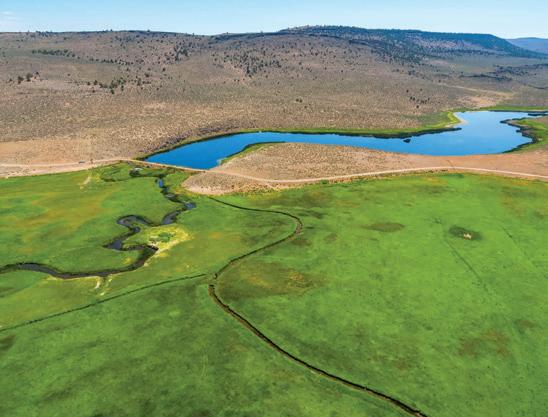
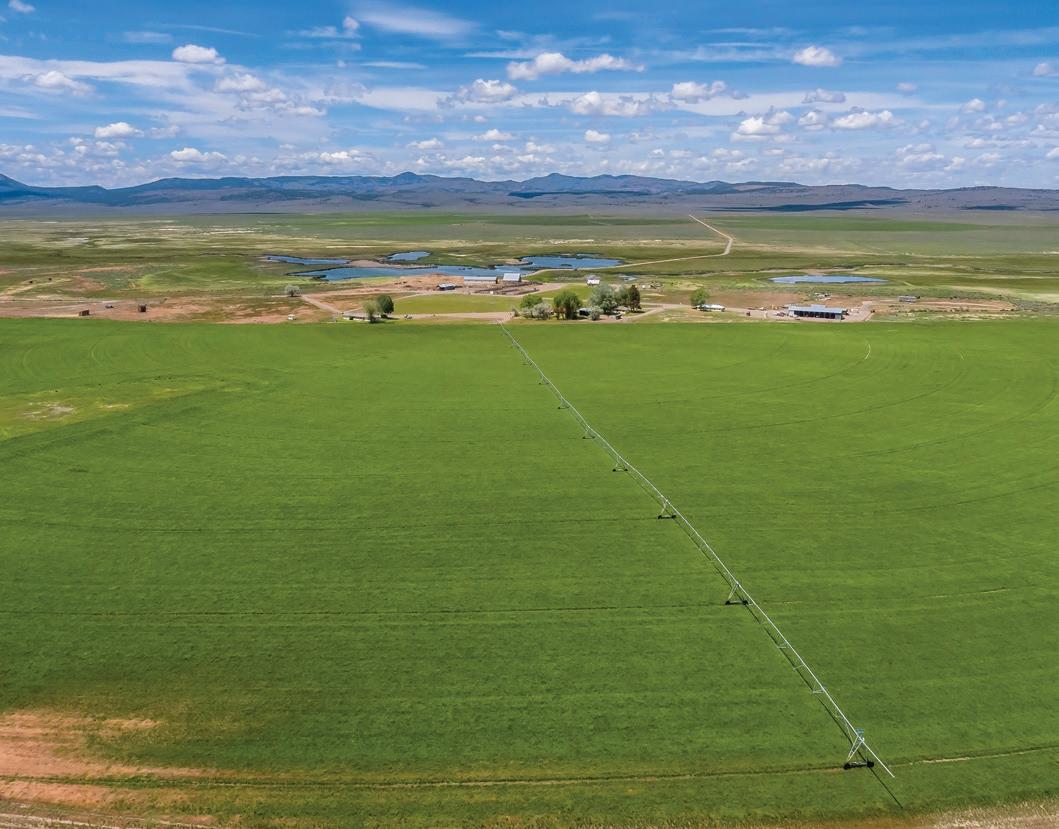
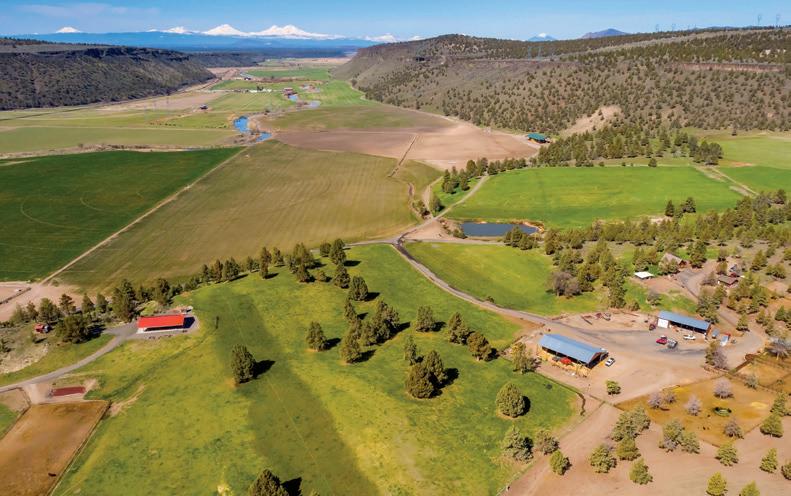
$4,975,000 #220163377
824 DEEDED ACRES
PRINEVILLE, OREGON | 293± Acres OID Irrigation Water Rights | The King Ranch has dramatic views of Crooked River and Cascade Mountain and offers opportunities for any recreational and ranching lifestyle in Central Oregon. It has approximately two and a half miles river frontage for fishing, bird hunting, LOP tags for deer/elk hunting and abundant wildlife. Kingranch-prinevilleoregon.com

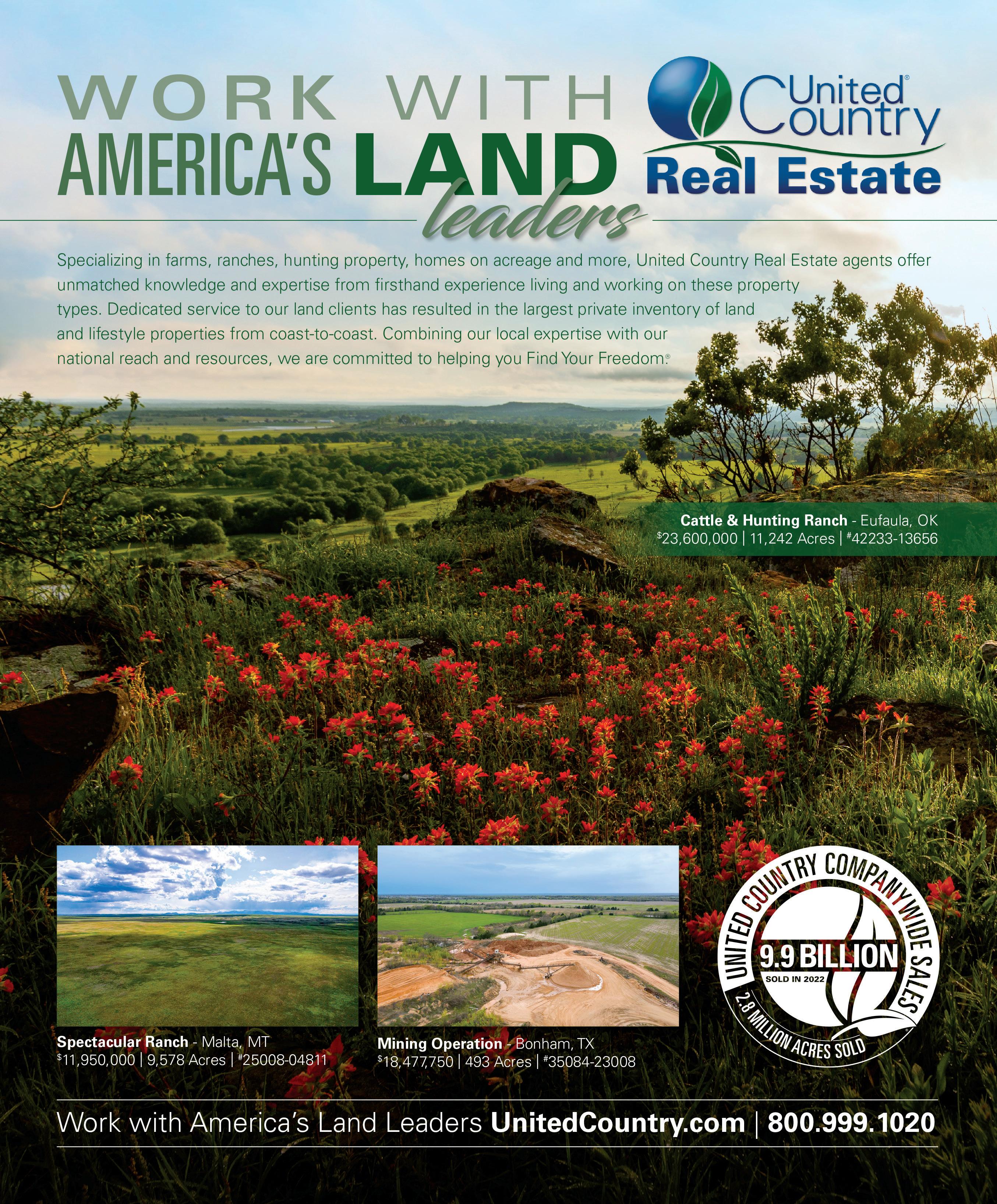
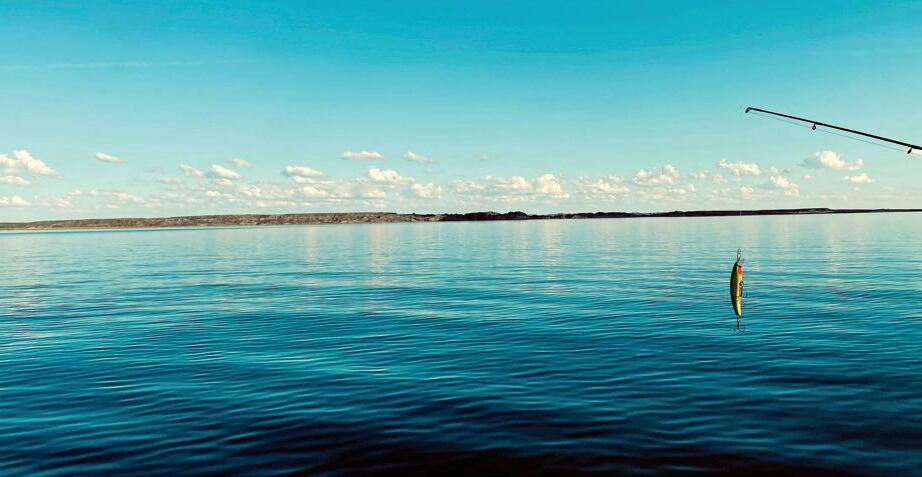
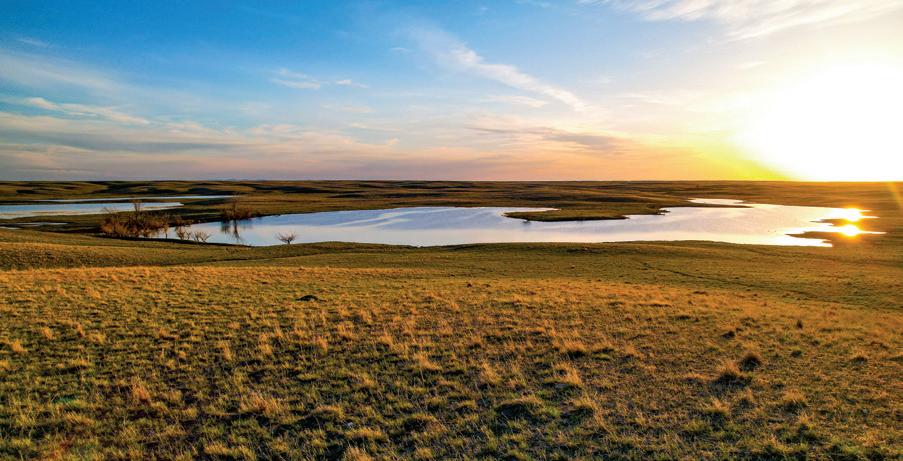


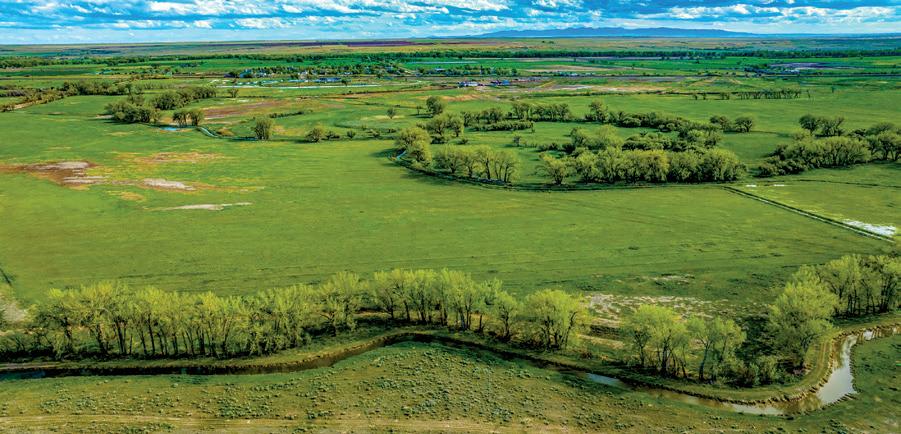
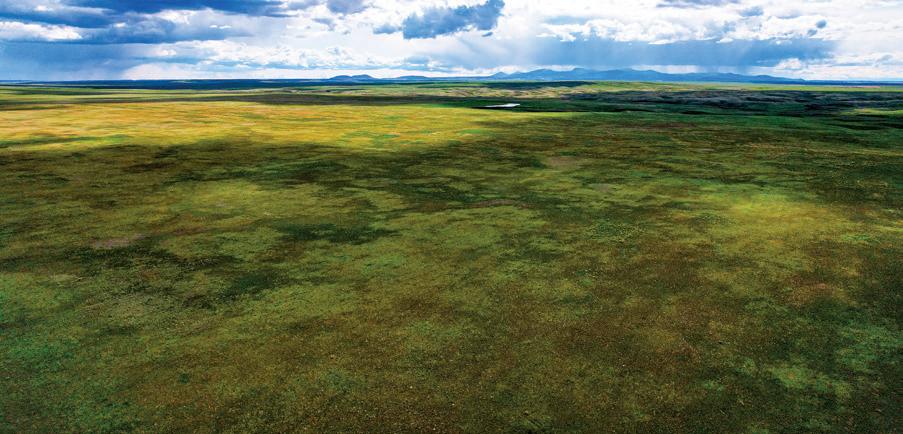
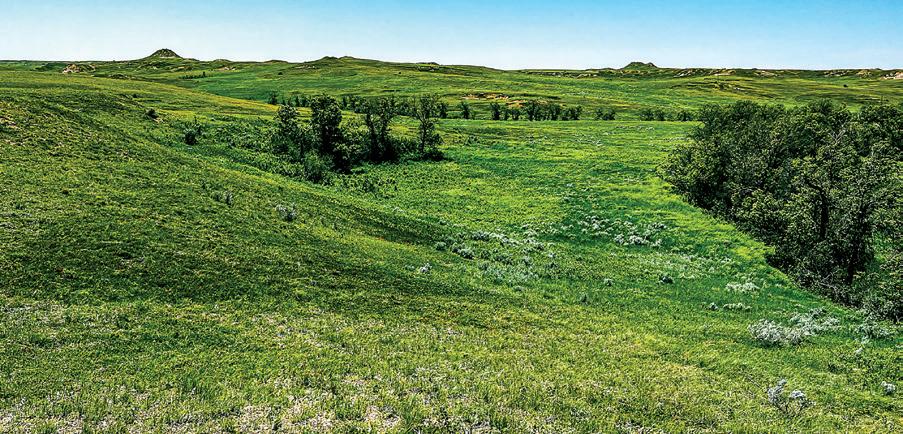
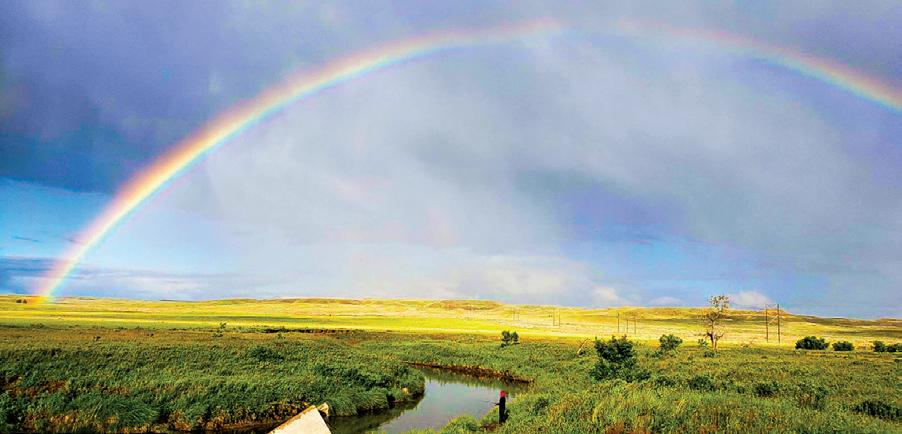

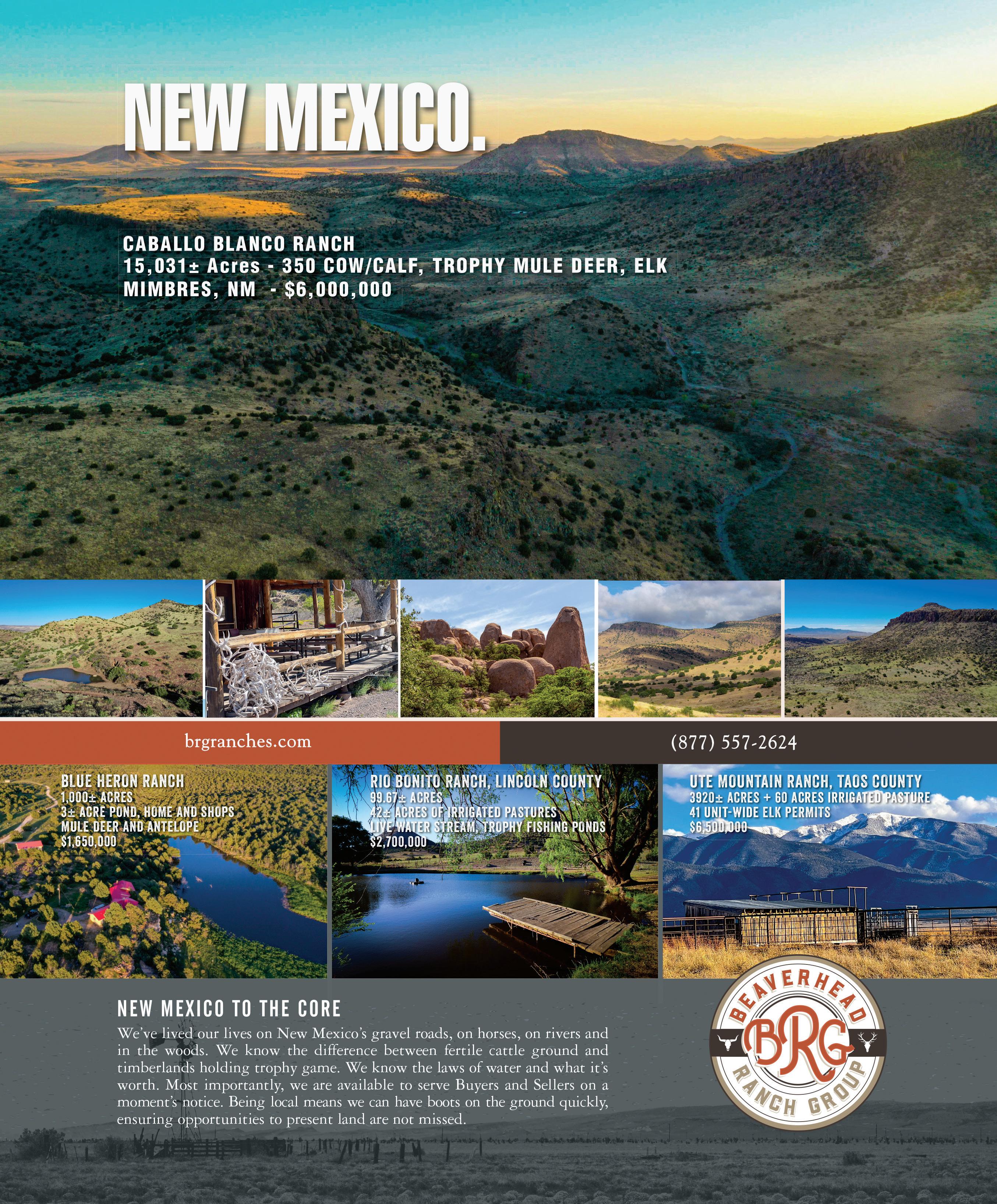
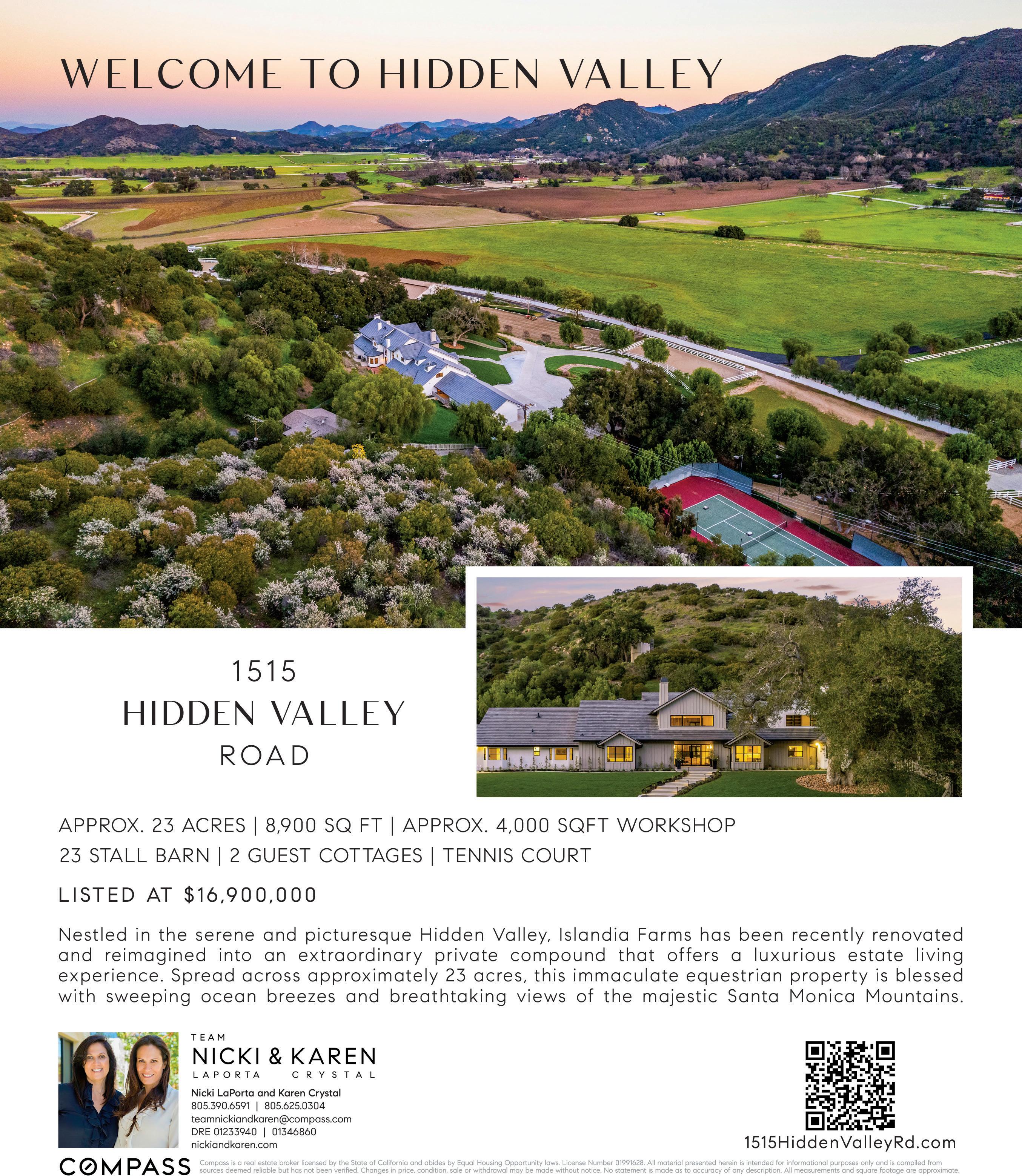

Ideally suited property for development located near the Taylor Samsung plant. Frontage on two paved county roads contributes to about a half mile of options for ingress and egress to this tax-exempt agriculture property. Improvements include a brick home built on concrete piers with steel I-beams having about 3,150 square-foot under roof, and barn with about 10,000 square-foot under roof, two sheds with a total of about 3,200 square-foot under roof and a half-acre pond. Call for more details and price. Land Investex LLC, Jimmy Fuchs, Listing Broker 210-413-3939 cell, 210-901-1000 office.
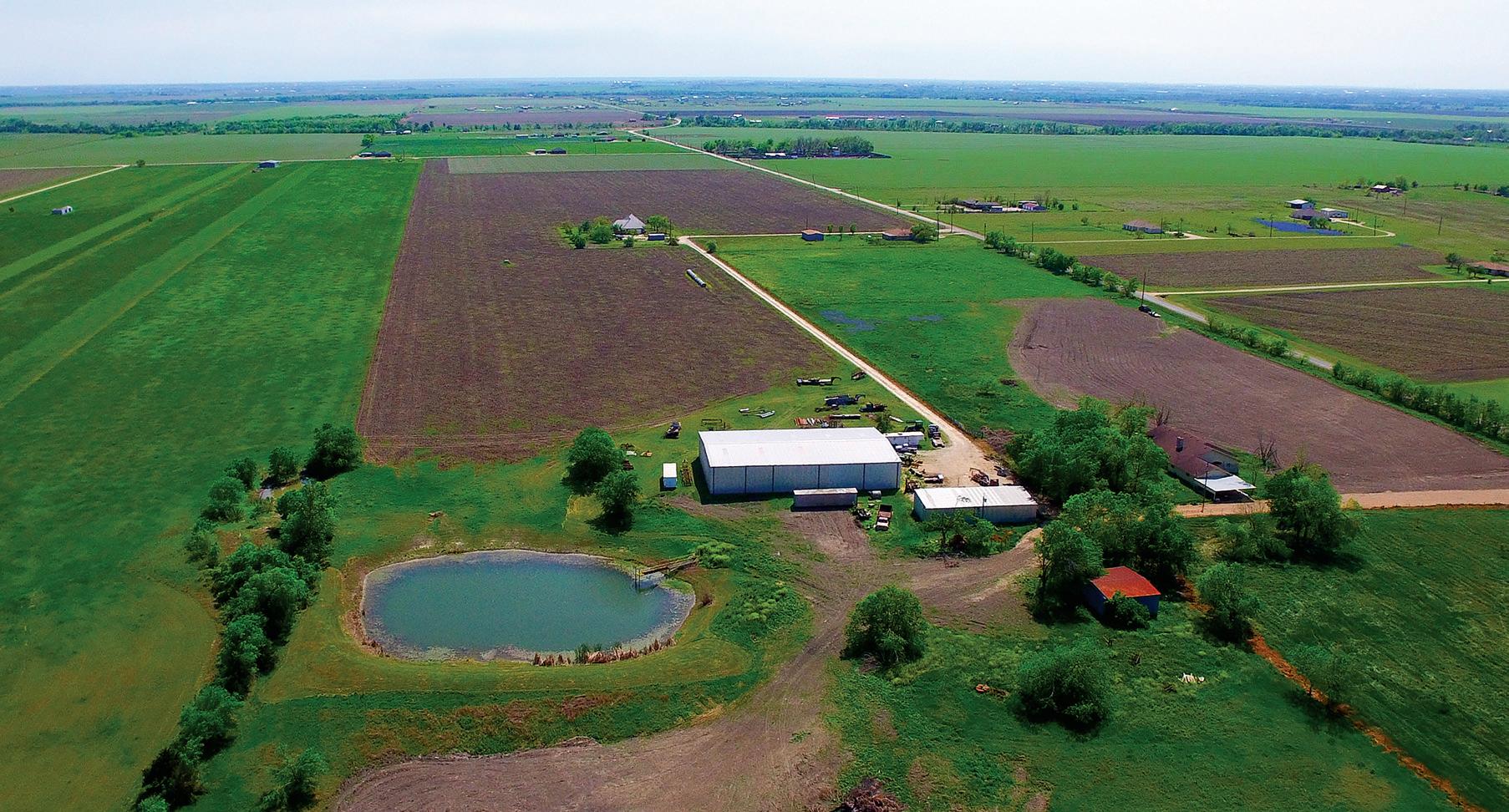
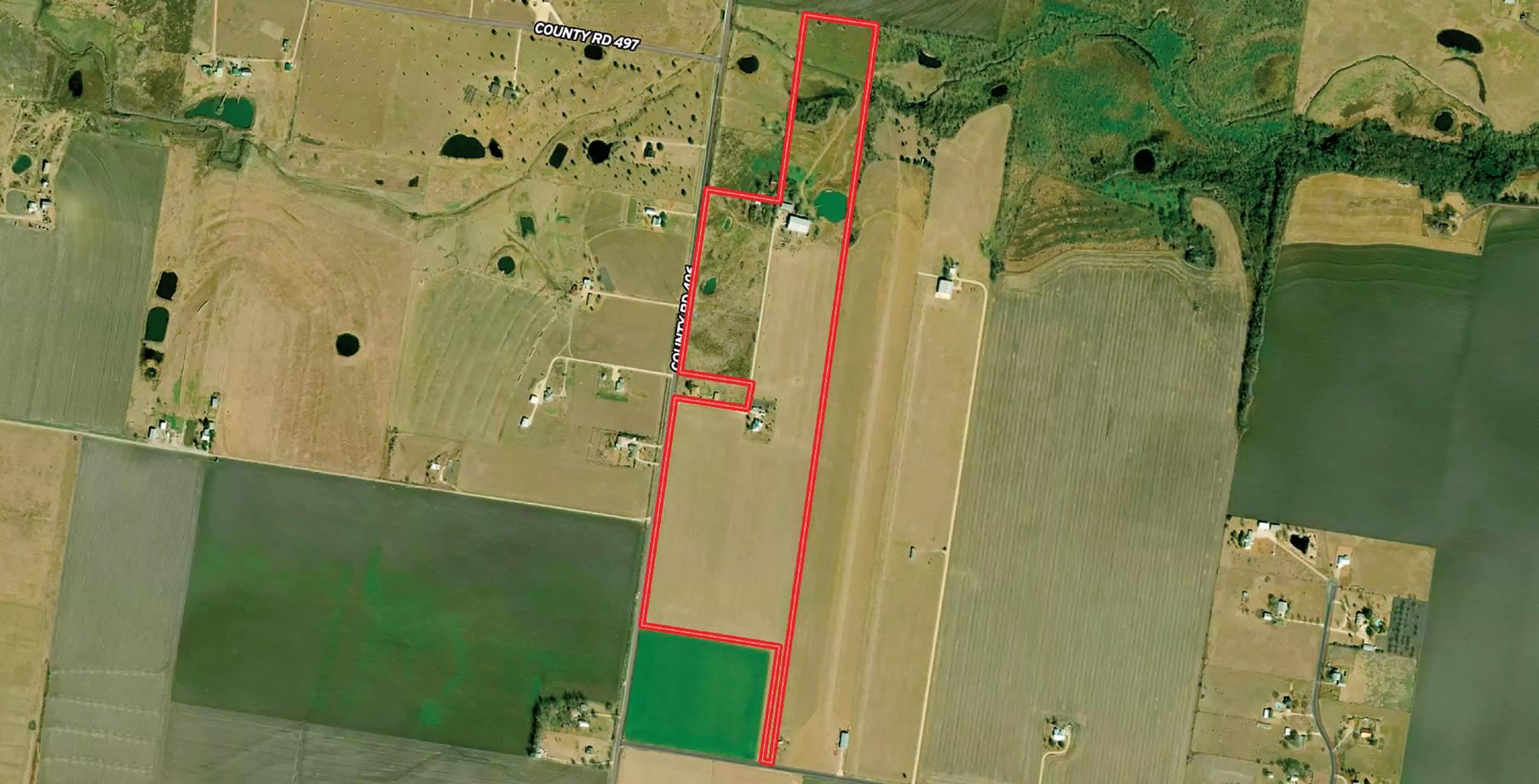
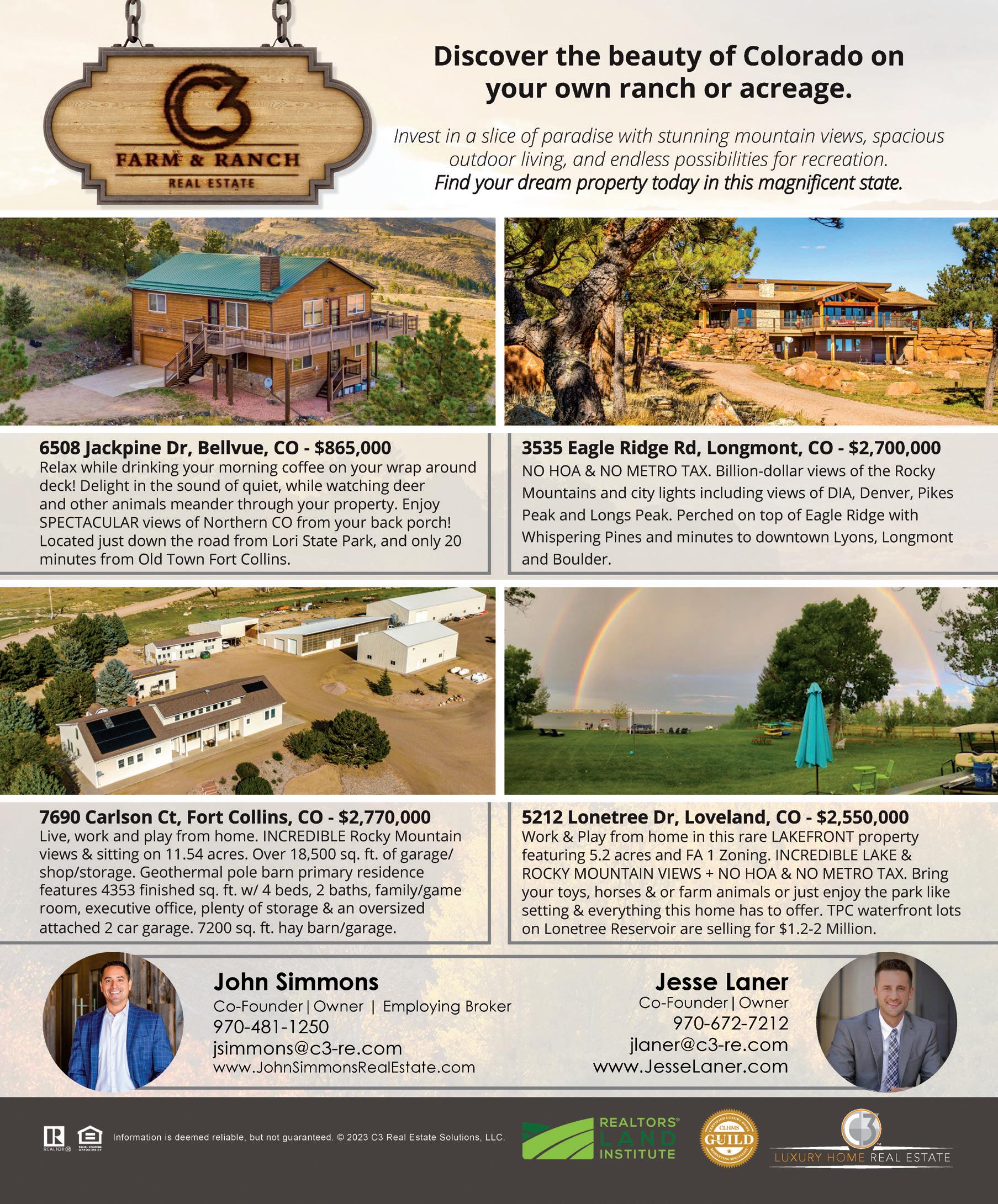
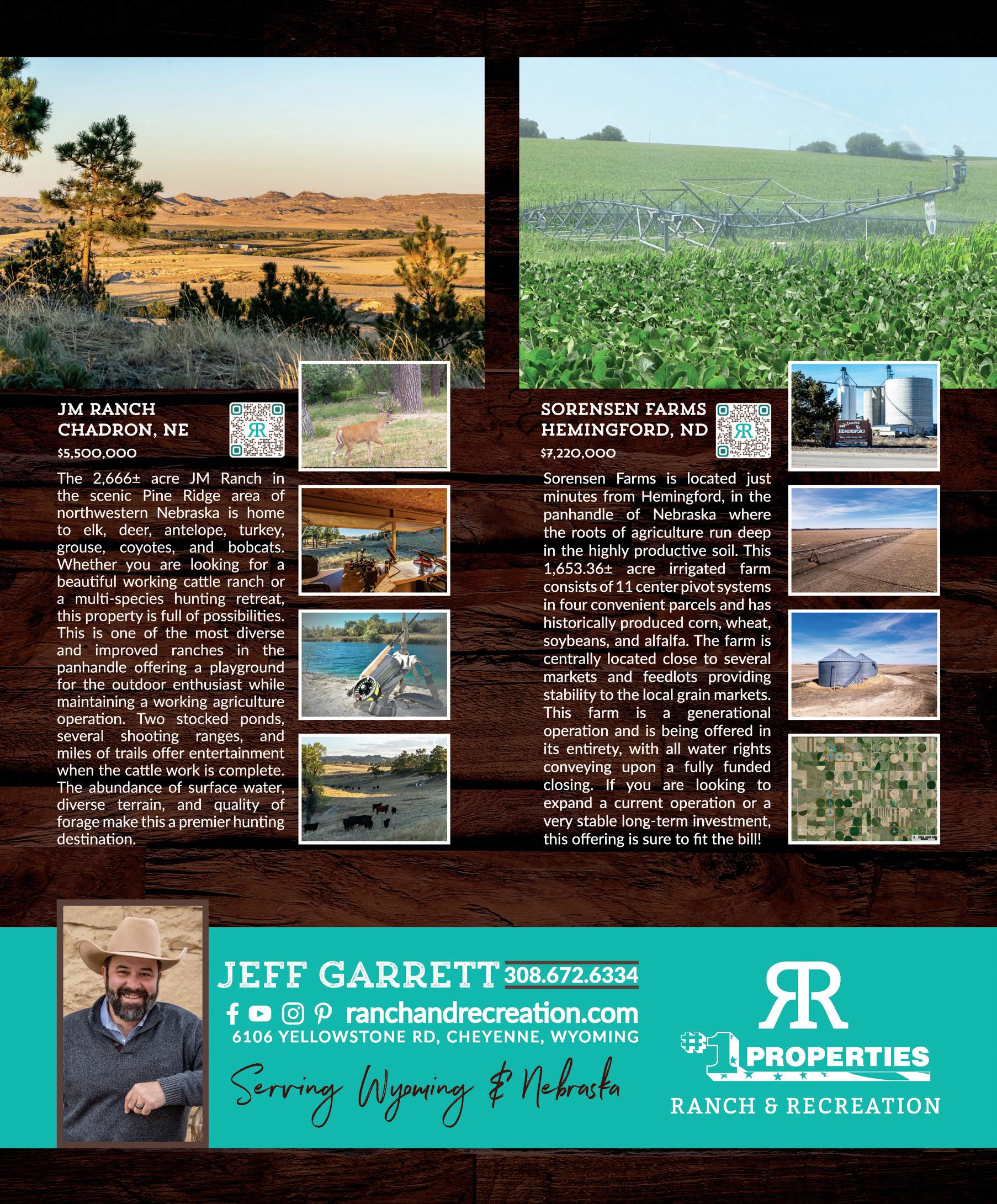
25,347 Acres
Hachita, New Mexico
$2,900,000

Flying W Mountain Ranch is located in the Cedar Mountains of Hachita, New Mexico. 39.60± sections, 25,347± acres total, 1,278± acres of deeded land, 20,917± acres of BLM, 3,152± acres of state land, 345 AYL.
12,343 Acres
Cotton City, New Mexico
$2,300,000
Smith Ranch is located in the Peloncio Mountains & runs into the plains south of Road Forks, New Mexico. 19.28± sections of a cattle ranch & a 335± acre farm. The ranch has 12,343± total acres, 3,721± deeded, 6,222± acres of BLM, 2,400± acres of New Mexico state land, 154 AYL. The seller retains a “Life Estate.”
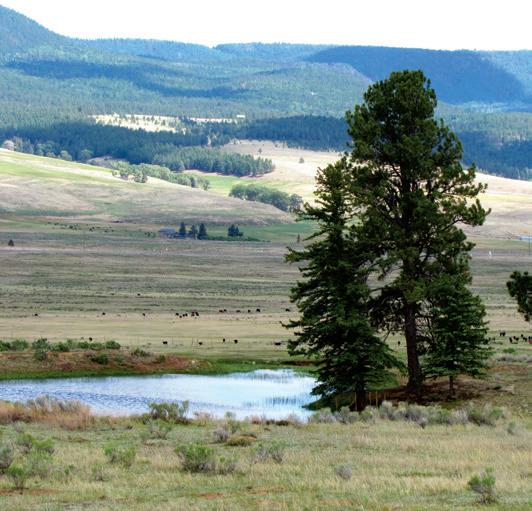
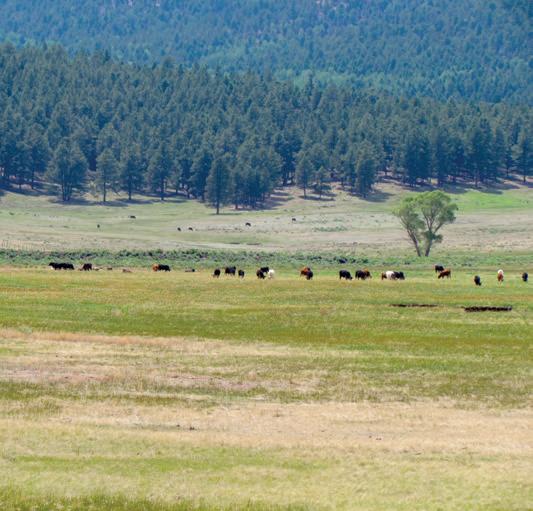
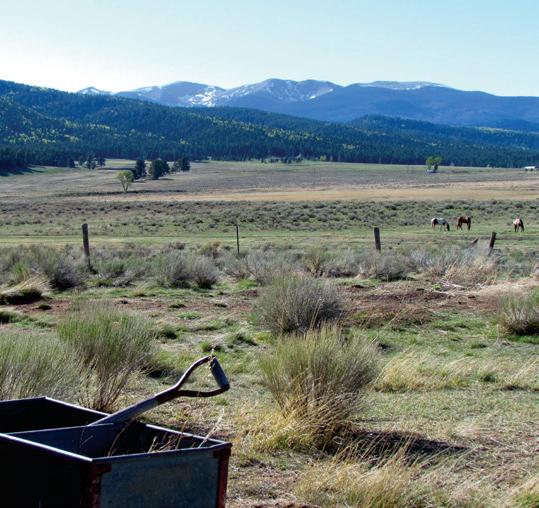
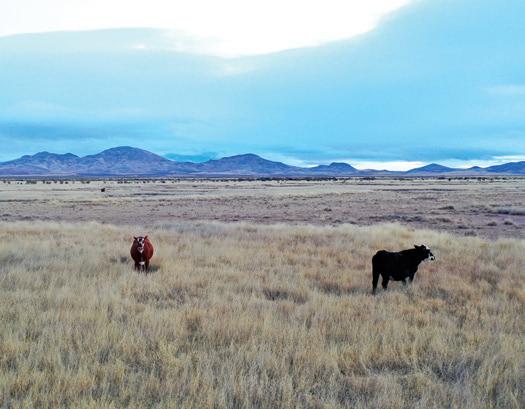

50,807 Acres
Deming, New Mexico
$35,000,000
San Juan Ranches of Deming, New Mexico. Located on the southern end of the Florida Mountains is 56± sections and/or 36,096± acres. 8,600± deeded acres, 24,295± acres of BLM, 3,201± acres of New Mexico State Land, and underground water rights.
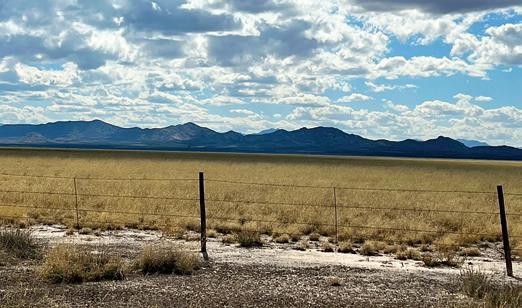
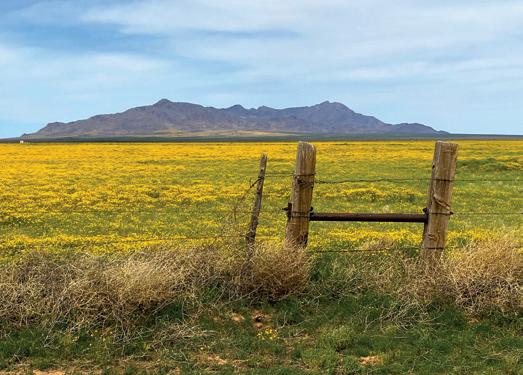
WWW. BROWNFIELDRANCHANDFARMPROPERTIES.COM

594.38± Deeded Acres in Colfax County, New Mexico
$3,800,000 | Property ID 13761189


